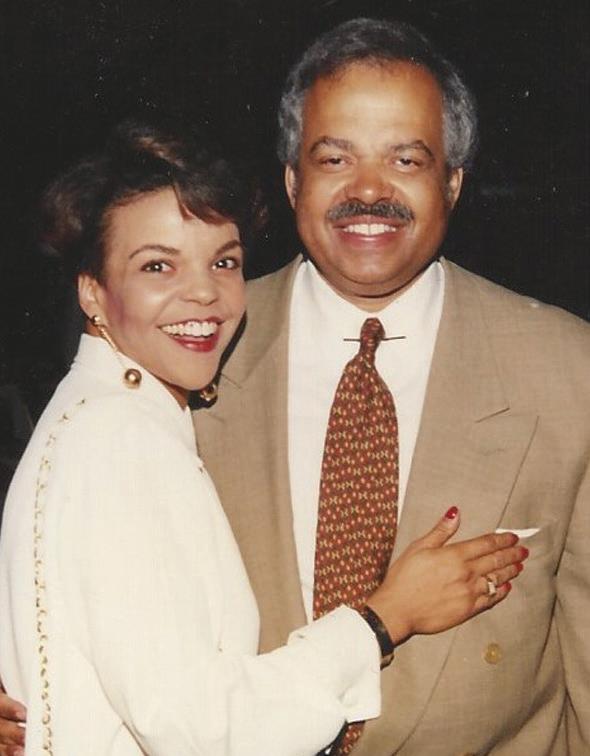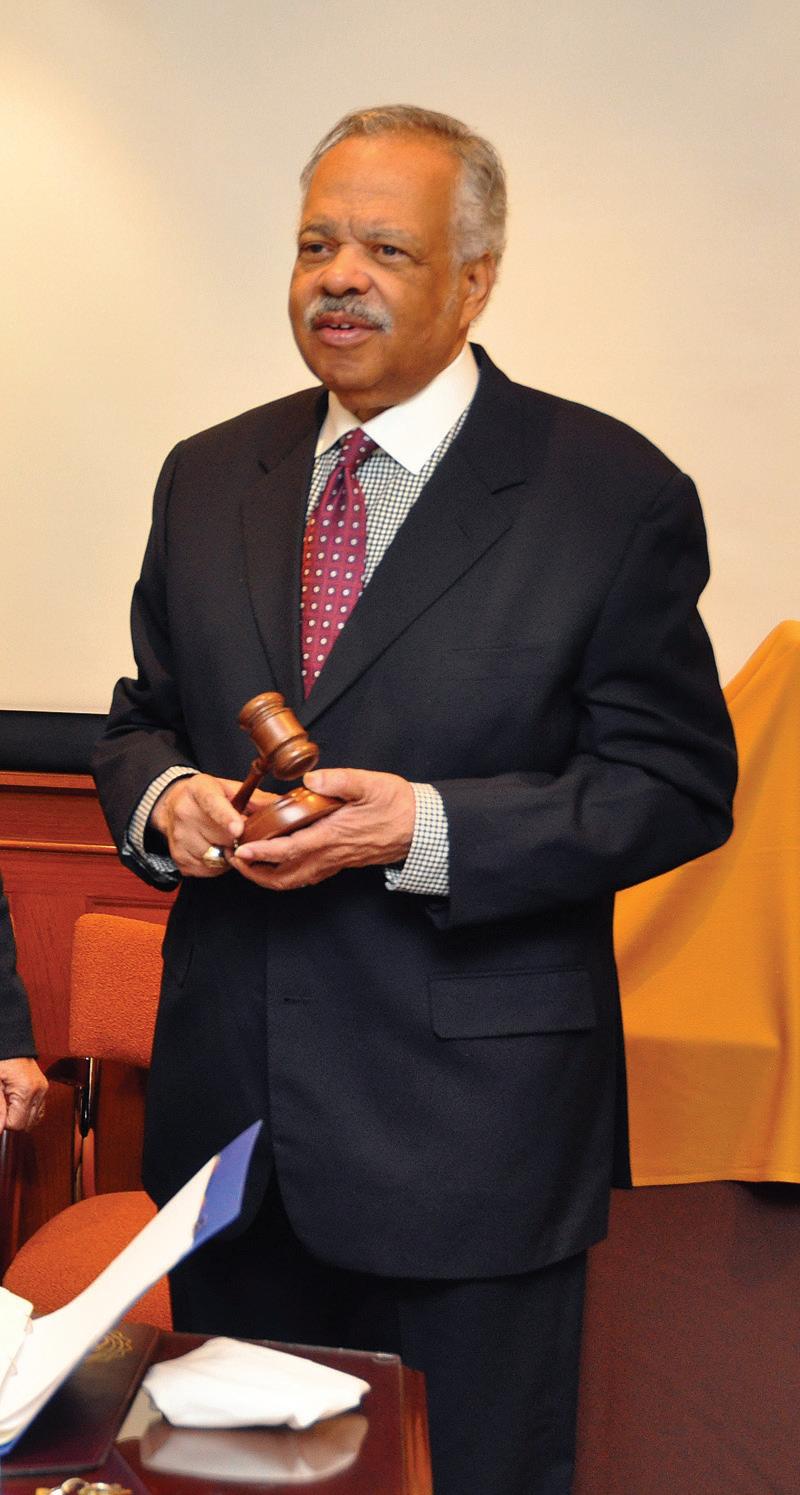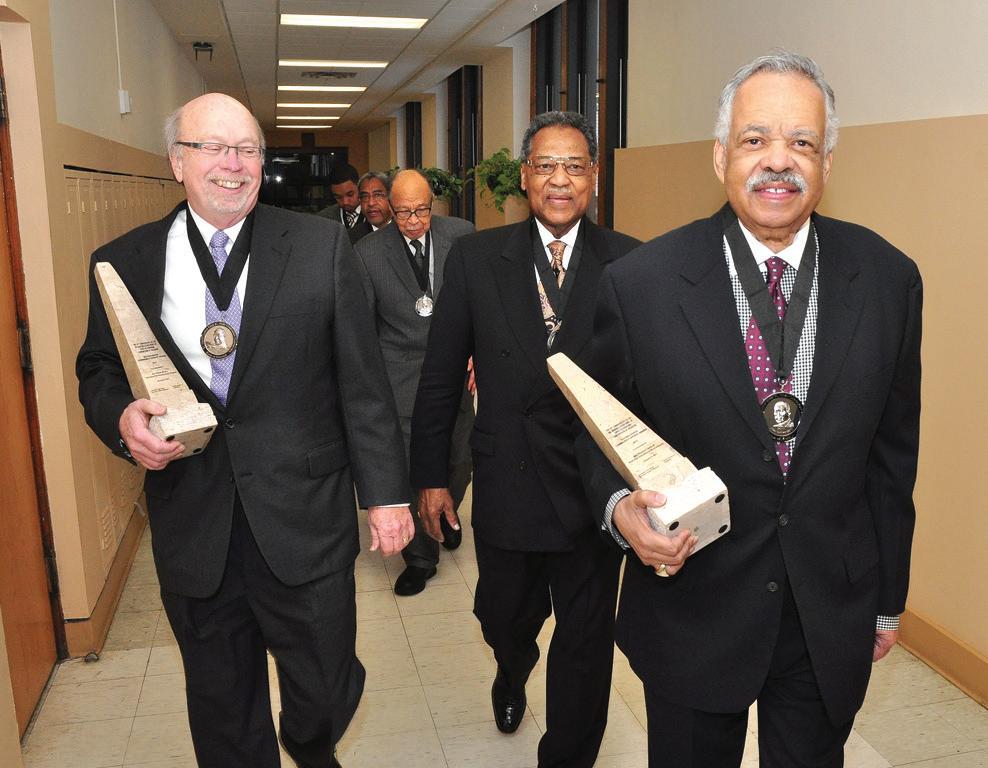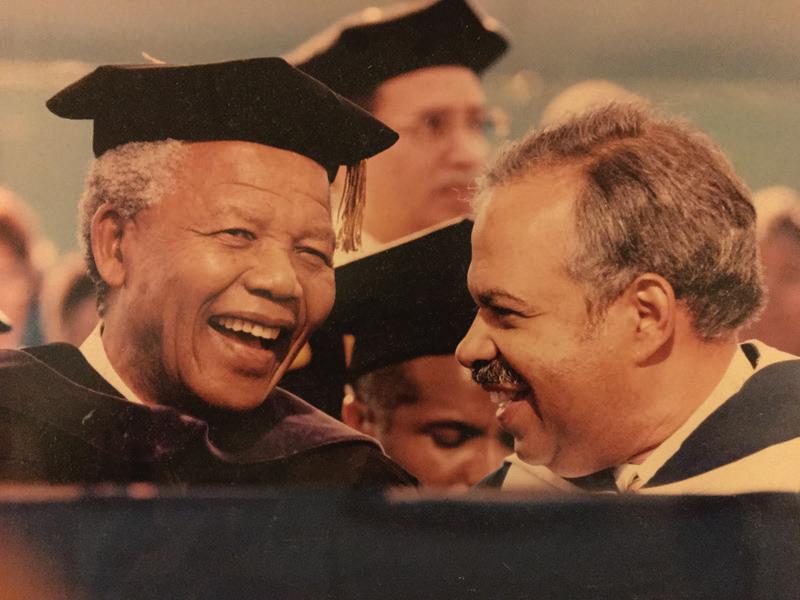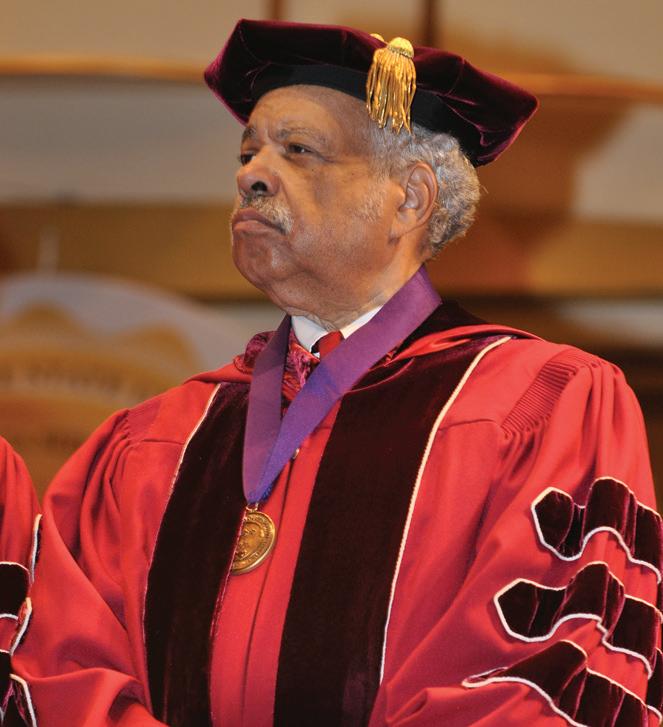




Wayman F. Smith III served as a member of the HarrisStowe State University Board of Regents for 21 years (19892010) and as chairman for 12 of those years.
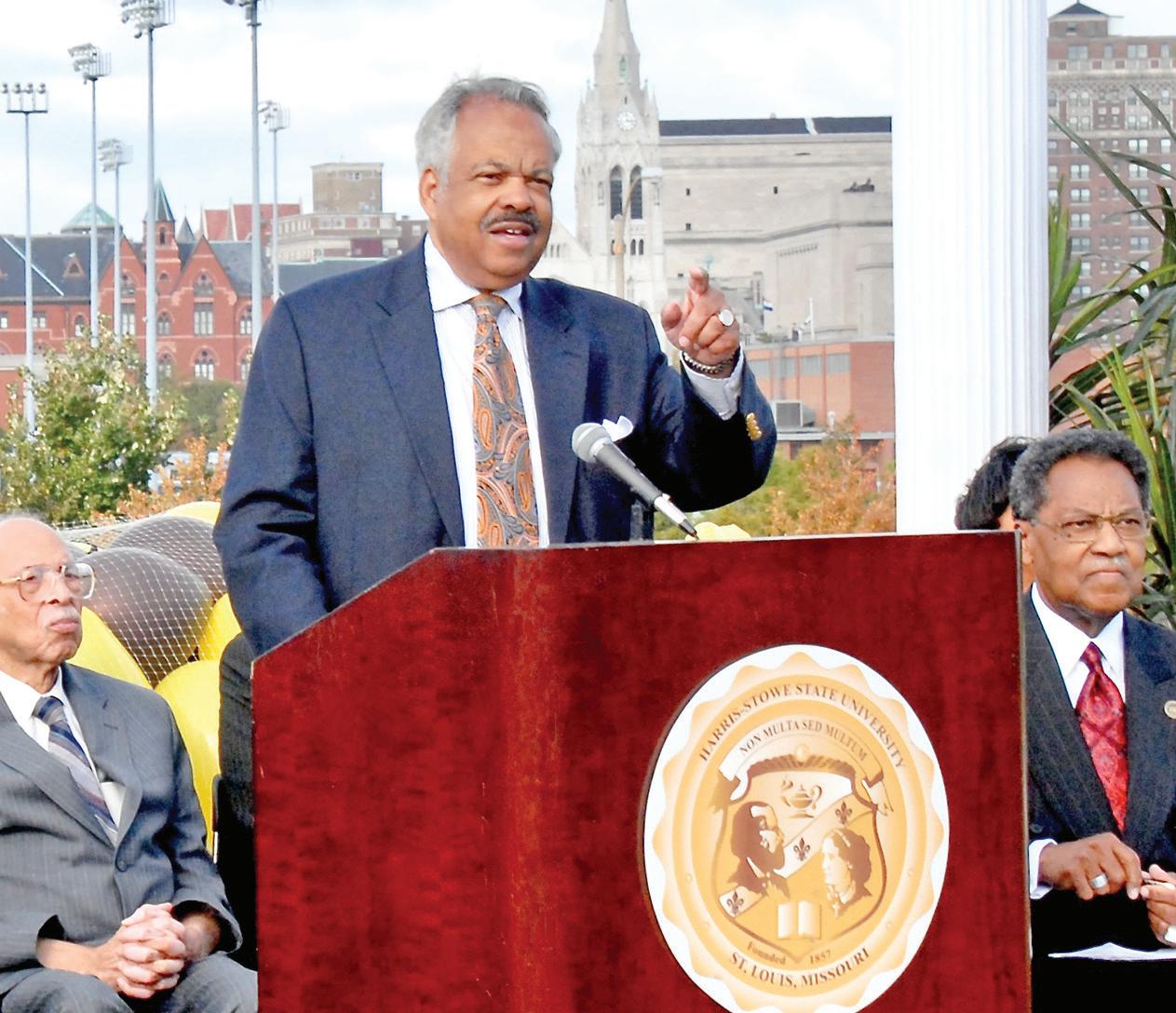
By Chris King and Kenya Vaughn
The
It
tells this
Robin Smith, tells it.
she weeps. One day her parents told her that her brother was leaving the house and she should go tell him that she loved him and tell him
By Rebecca Rivas Of The St. Louis American
University City Schools Superintendent
Sharonica L. Hardin-Bartley is a status-quo disrupter. “The bravery she shows is unparalleled,” said Christina Groves, middle-school teacher and parent in the district. “It is very clear to those of us who care about the education of all children that the way we do school is not sustainable; it is not helping students grow, and it’s actually designed in many ways to keep the status quo.
everything else that she had to tell him.
Her brother was carrying his things to his car, but he came back to his little sister, 15 years younger than the young man. She told him that she loved him and that she hoped he would come back and play with her and her dolls. She was 4 years old.
When her brother drove away, her parents, Wayman F. Smith Jr. and Edythe Meaux Smith, embraced in a burst of emotion. Later,
their daughter would understand why. At that time, the Ku Klux Klan was killing people who drove South to register Black voters, as this young Black man from North St. Louis was doing that day.
“He was willing to risk his life and they were willing to risk their first-born to make sure people registered to vote,” Robin said.
And Hardin-Bartley is not at all afraid to disrupt that.”
After Hardin-Bartley became superintendent in 2016, she led the district in drafting a strategic plan that aims to “humanize, personalize and problematize” the learning experience for their students. When she served on the Ferguson Commission’s Youth at the Center workgroup, Hardin-Bartley helped to write the commission’s recommendations for schools, specifically for addressing trauma. She is also a board

Democratic nominee for secretary of state says most voters are eligible to vote absentee
By Chris King Of The St. Louis American
Absentee voting opens in Missouri on Tuesday, September 22. What should a Missouri secretary of state who wants all eligible voters to vote and all votes to count be telling voters about voting absentee in this election?
The American asked this and similar questions of Yinka Faleti, the Democratic nominee for secretary of state, Missouri’s highest election authority, and a U.S. Army veteran with extensive experience in the non-profit sector.

Yinka Faleti: Missouri law for this year allows voters who meet certain criteria enumerated under the law to vote absentee. Were I Missouri’s secretary of state, I would want as many eligible Missourians to vote as possible. As such, I would be highlighting to voters that many legal experts agree that, because of the COVID-19 pandemic, most Missourians are able to vote absentee under reasons no. 2 and no. 7 enumerated in the law, specifically: incapacity or confinement due to illness or physical disability or caring for someone as such; and a voter who has contracted or is in an at-risk category for contracting COVID, including all voters 65 years of age or older, respectively.
The American: Our local election authority told us that his office has no investigative staff to challenge people’s claims that they need to vote absentee, and we are aware of no one who has been challenged or whose absentee vote has been discounted. Given the unprecedented nature of current Republican attacks on the voting process, is there any reason for someone to fear being investigated after voting absentee and having their vote discounted?
Yinka Faleti: We cannot allow fear to prevent us from exercising our voice and our choice by
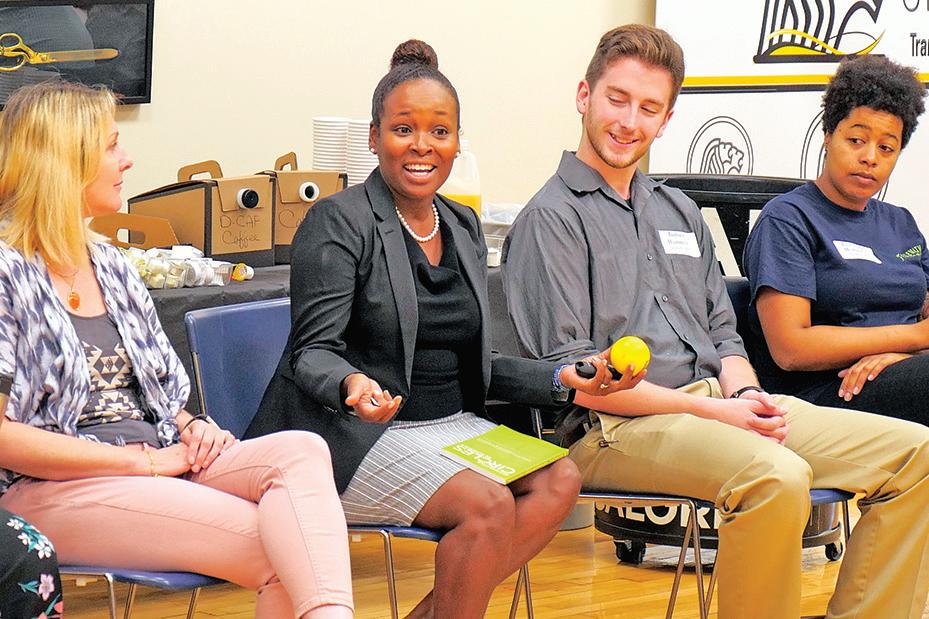
L.
holds restorative circles with students and staff to resolve conflicts, which has decreased out-ofschool suspensions.


Baby news: ‘Insecure’ actress Christina Elmore is expecting
Actress Christina Elmore, who plays the character Condola Hayes, on HBO’s “Insecure,” surprised fans with her baby bump as she attended a cast Emmy Awards party Sept. 20 at SoFi Stadium in Inglewood, California. Fans learned of the pregnancy by viewing a super cute photo posted to Instagram. As Essence reported, she and her husband, Ryan Duke are expecting their second child.
custody. The New York Times reports Harris admitted to authorities “exchanging sexually explicit photos on Snapchat with at least 10 to 15 people he knew were minors, having sex with a 15-year-old at a cheerleading competition in 2019 and paying a 17-year-old to send him naked photos.”
TMZ reported Harris being sued on behalf of minor twin brothers from Ft. Worth, Texas, who allege he groomed them into sending nude photos and demanded sexual favors. A Harris spokesperson denies the allegations.

Netflix ‘Cheer’ star Jerry Harris accused of sexually abusing minors
In a criminal complaint filed in U.S. District Court in Chicago, Netflix “Cheer” docuseries star Jeremiah “Jerry” Harris was arrested last week by federal authorities and charged with producing child pornography. Harris, 21, is accused of “enticing an underage boy to produce sexually explicit videos and photos of himself.” The child was 13. Harris remains in
Fetty Wap settles bitter divorce with Leandra Gonzalez
After just over a year of marriage, Fetty Wap Maxwell) and Leandra Gonzalez agreed to a divorce settlement, signed by a judge on Sept. 4. The pair got married in August 2019 in Toronto. TMZ reports there were no kids and settlement terms are undisclosed. TMZ also reported Gonzalez filed for divorce in March, alleging in legal documents that her husband was a substance abuser and habitual cheater,
and also claimed he was physically abusive. Wap denies those claims.
Halle Berry’s got a new man
Singer Van Hunt is Halle Berry’s new love interest. Berry made the reveal to her Instagram account, wearing a T-shirt with his logo, and referencing a photo posted in July of two pair of feet, playing footsies. “Now ya know,” she wrote.

NeNe Leakes is leaving ‘Real Housewives’
People. “I’m just so happy that I can say that I was a part of a genre that opened up doors for Black ensemble reality shows to step up and be a part of what we all now love so much, reality TV.”
Nicki Minaj wins copyright dispute with Traci Chapman

NeNe Leakes is not returning for the season of “The Real Housewives of Atlanta.” Leakes made the announcement on her YouTube channel. She thanks her fans, her team, the cast and also thanked Bravo network.
“I have been on an extremely, extremely long, exhausting, tiring, emotional negotiation. There has been a lot of emotion flying on both sides,” Leakes said in her video, as reported in

It was a big win for rapper Niki Minaj last week, when a U.S. Judge Virginia A. Phillips ruled it was “fair use” and not copyright infringement when she created a song based on Tracy Chapman’s song, “Baby Can I Hold You,” created in 1988. Chapman filed suit against Minaj in 2018, claiming she lifted lyrics and melody from her song without her permission to sample it for Minaj’s song, “Sorry.” The track was dropped from her album “Queen” after permission was not secured, but she allegedly provided it to two New York City radio stations, that played it on the air.
As Variety reported, the decision protects the industry practice of developing a new song based on existing material, and then seeking a license from the original artist prior to release.
Sources: CNN, Essence, Instagram, New




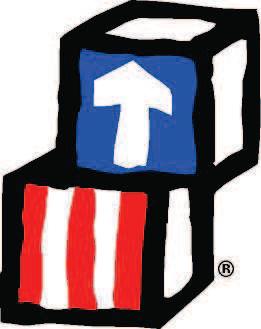


By James Cooper
For The St. Louis American
Missouri police will accommodate the constitutional right to protest for a mostly white group complaining about sports. Protests in protection of Black life, however, yield different results.
Expect Us, a St. Louis activist group fronted by Black politicians, clergy and grassroots organizers, has held several recent protests. Their focus is, as state legislator and activist state Rep. Rasheen Aldridge puts it, “criminal justice reform, not rhetoric.”
In St. Louis, Expect Us led hundreds to Mayor Lyda Krewson’s home after she doxxed activists online. As the group marched, a pair of wealthy white Republicans accosted them with guns. Weeks later, nine of those hundreds were issued a summons for trespassing. Among the nine was Ohun Ashe, a Black woman and Expect Us organizer.
In Jefferson City, Expect Us marched to the Governor’s Mansion over Republicanled legislation that would’ve allowed 12-year-olds to be tried as adults. Police issued dispersal orders within minutes. As protesters laid down in the street, police moved on them. Arrests were made, Ashe among them.
On September 13, Expect Us returned to St. Charles, a predominately white St. Louis
exurb. They had marched for Black lives there before. Ashe had been arrested in protest there before.
The young Elijah Foggy recited a poem he’d written to begin the event. Veteran activist Reverend Darryl Gray asked the crowd to clap rhythmically, and everyone danced in place.
Ashe spoke of the death threats she and others have received. She warned the group of the dangers involved in fighting for justice in America, before thanking them for their participation.
“I love y’all so much,” Ashe said.
Organizers ultimately led roughly 50–75 protesters to the St. Charles Police Department and Municipal Court. They marched. They briefly blocked traffic. They chanted about justice.
They were met by a police force that included a helicopter, three motorcycles, a dozen SUVs, two armored SWAT vehicles, approximately 100 officers clad in riot gear, and what appeared to be a large drone.
As the police presence increased, the group of protesters began to thin – as did the weight of the 1st amendment in St. Charles, Missouri. A few protesters used red paint to leave hand prints on the pavement. Some hand prints were painted onto the building’s sign. That appeared to be the tipping point for police. Moments later, SWAT

the officer.
“She’s gotta come out,” he said to another officer. Ashe was removed from the vehicle she was attempting to leave in and arrested for failure to disperse.
“You know we can’t leave now, right?” Rev. Gray said. “She’s with us.”
The officer told the car’s occupants that Ashe will be “booked and released in just a few minutes.”
“The officer doesn’t even finish his sentence nor give me a chance to respond before arresting me,” Ashe tweeted after being released three hours later. “This is police terror.”
A few miles away, at roughly the same time, there was unrest near the home of St. Louis County Executive Dr. Sam Page. Hundreds gathered there to express their outrage.
police response to Dr. Page’s residence,” a Media Relations officer said in an email.
Municipal police from Creve Coeur, the 74% white suburb in which Page lives, responded instead. They did not wear riot helmets. They did not hold batons or shields. No dispersal orders were given. Use of force and chemical agents were not threatened. No arrests were made.
“We will continue to follow the advice of our medical experts and public health experts,” Page said in a video statement on September 14.
Page’s subtle rebuke of the protests outside his home may ruffle a few upper-middle-class feathers, but it’s unlikely to create a need for the PTSD treatment that often comes with violent arrests.
rolled in.
“Why are you in riot gear? I don’t see no riot here!” protesters chanted.
Police burst out of the building, shoving a man back several feet. Ashe emerged, grabbed his shirt, and pulled him away from police who were ordering him to back up.
In stepping forward, Ashe put herself at risk to de-escalate.
Police declared the assembly “unlawful.” Rows of militarized officers cosplaying as Navy SEALs lined up. Rev. Gray led the chant: “de-escalate.”
A SWAT loudspeaker threatened the nonviolent group with warning of a “use of force which may result in serious
injury.” Rev. Gray cautioned protesters, “As you leave out, don’t leave out alone.”
As SWAT threatened to deploy “chemical agents” and officers trailed protesters who were rushing to their cars, Rev. Gray pleaded, “Why are you chasing us?”
Several protesters were arrested before the event was over, Ohun Ashe among them. Video recorded by Ashe shows her arrest. “Get in the car or you go to jail, you understand?” an officer said. Less than a second later he tells her, “OK, you’re under arrest.”
Ashe sat down in the back seat. “We’re trying to make sure our people are safe, because y’all won’t,” she told
In an effort to contain COVID-19, which had killed 780 of his constituents as of September 18, Page issued a prohibition on some high-contact teen sports.
Parents and some high school athletes took to the streets. Fox 2 reported the presence of signs indicating Page lives on a “private street,” which police blocked off ahead of the protest.
The mostly white group, driven by their passion for amateur football, were not deterred.
“Sam Page has got to go!” they chanted.
Some protesters carried signs reading, “Let them play.”
Others carried campaign signs for the Republican running against Page on November 3.
St. Louis County Police said they did not show up.
“We were not involved in any
The failure of the teen sports advocacy group may have bruised some conservative egos. But that doesn’t hurt in the way Ashe’s bruised wrists hurt from police zip ties.
The Kirkwood and Webster Groves football teams, who carry a historic rivalry, may not get to play this year. But the police will continue to kill, intimidate, and harass Black Americans.
And so, the people will protest. Some will fight to protect Black lives. Some will fight for the commencement of junior varsity basketball during a pandemic. With photos published by TIME, The Guardian, NBC News, and many more, James Cooper’s award-winning photos of
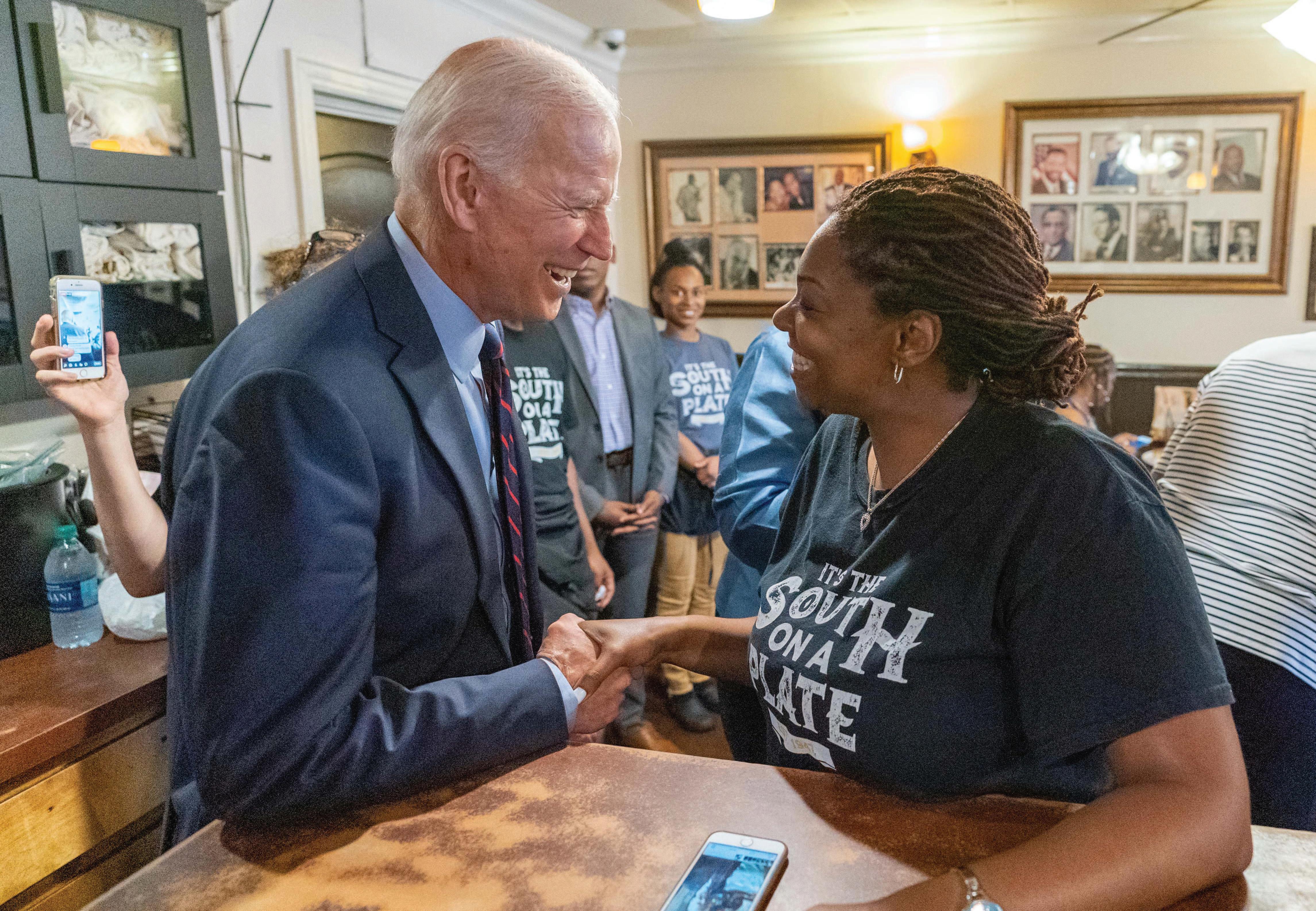
When it comes to the contest for Missouri attorney general, there is no question about our sympathies or judgment. Democratic nominee Rich Finneran is one of the most highly qualified candidates ever to seek the office. As an assistant U.S. attorney in St. Louis, Finneran prosecuted the two largest criminal fraud cases in the history of our state, including a $435 million insurance fraud scam that sent several corporate executives to lengthy sentences in federal prison. During his storied career at the U.S. Attorney’s Office, Finneran recovered millions of dollars for crime victims and repeatedly received accolades for his high-profile trial victories while passing on the craft to the next generation of advocates at Washington University School of Law. His Republican opponent, the unelected incumbent Attorney General Eric Schmitt, had never even tried a criminal case before being appointed to his office by our unelected Governor Mike Parson. Schmitt ascended to his position, not because of his qualifications as a lawyer, but because of his fealty to the Missouri GOP. And, since assuming office, Schmitt has been at the conservative establishment’s beck and call, demeaning both himself and the dignity of his office as he embraced the party of Trump in its ignorance and belligerence.
Schmitt has spent countless of our tax dollars on a lawsuit to overturn the Affordable Care Act, President Obama’s signature policy achievement that ensures guaranteed coverage for pre-existing conditions and gives access to healthcare to so many underserved communities throughout our state. He did his predecessor Josh Hawley’s bidding by bringing a hopeless lawsuit against China over the COVID-19 pandemic, which attempted to provide political cover for Trump’s bungling of the pandemic – an unethical use of the courts as political distraction.
Even more offensive to us, he has intervened to halt St. Louis Circuit Attorney Kimberly Gardner’s efforts to obtain justice for Lamar Johnson, a wrongfully convicted Black man who has now unjustly sat in prison for 26 years. And he has connived with Parson and the Republicandominated Legislature to demonize St. Louis and try to undermine Gardner’s authority – an unelected attorney general who does not live in St. Louis trying to usurp authority from a circuit attorney elected twice by St. Louis voters. While filing a show suit against a foreign nation and meddling with an elected prosecutor in a city where Schmitt neither lives nor votes, he also has failed to do the people’s business –
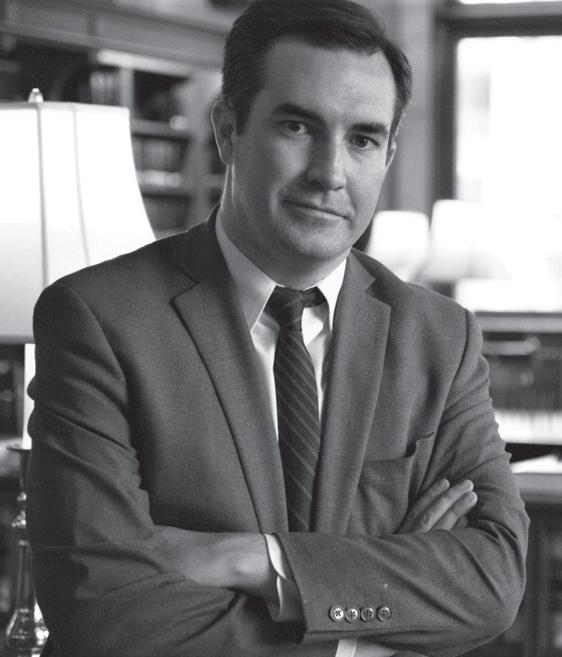
for example, by settling massive lawsuits with major campaign contributors for mere pennies on the dollar. Finneran has rightly called out these maneuvers for the partisan, self-serving stunts that they are.
In an interview with The American Finneran eloquently describes a vision of the Attorney General’s Office that serves all Missourians, not the interests of political parties or wealthy donors. He has pledged to increase enforcement of civil rights and environmental laws, ensure pay equity and promote diversity within the Attorney General’s Office, and expand conflict-of-interest policies to restore integrity to our state government. With Finneran rather than Schmitt doing the people’s legal business, Kimberly Gardner would face no conflict in seeking a new trial for Lamar Johnson and other victims of wrongful prosecution, and she would not be forced to defend her constitutional authority to consider and prosecute cases within her jurisdiction without politically motivated meddling from Jefferson City. At this critical and unprecedented time for our city, state and country, there is no person better qualified to bring the changes we need to our justice system and rid the Attorney General’s Office of the disruptive and distracting partisanship that has slowed our progress for far too long. We strongly endorse Democrat RICH FINNERAN FOR MISSOURI ATTORNEY GENERAL.
By Nimrod Chapel Jr.
For The St. Louis American
In 2017, Tory Sanders was extra-judicially murdered in a Mississippi County jail by law enforcement officers who have not been prosecuted or even arrested. We demand justice in his murder.
Discussions about racial justice have swept the nation in the aftermath of the murders of George Floyd, Ahmaud Arbery, and Breonna Taylor. Missourians must acknowledge the role the death penalty continues to play as an agent of racial discrimination and as a beacon in identifying law enforcement and judicial practices in need of abolition or reform. The death penalty has been a symbol of racial oppression since slavery, through the Jim Crow era and endures today. Missouri has a long history of demonstrating racism in the prosecution of African Americans. Prosecutors such as Bob McCulloch and Mark Richardson are examples of how racism has infected Missouri’s prosecutor offices. The racially biased culture and practices that underlie the death penalty’s application across the United States symbolize and embody the worst in the American legal system.
For these reasons, the death penalty is an essential element of any meaningful discussion on police reform, prosecutorial accountability, and the criminal legal system as a whole, because it is inextricably linked to police violence, mass incarceration, lynchings, and slavery.
The Death Penalty Information Center has released a new report, Enduring Injustice: The Persistence of Racial Discrimination in the
U.S. Death Penalty. This report demonstrates that the victim’s race is most likely to affect whether defendants are charged with a capital crime and sentenced to death, especially when the defendant is African American, and the victim is white.
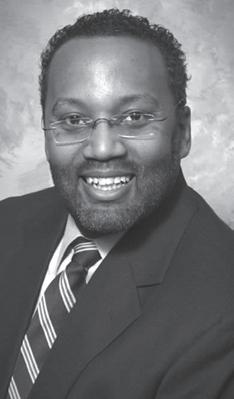
Missouri’s current death row population reflects the patterns of racial disparity found in research. Homicides involving white victims are seven times more likely to result in execution than those involving Black victims. Homicides involving white, female victims are 14 times more likely to result in execution than those involving African American male victims. The vast majority of defendants on Missouri’s current death row had white victims, although white victims are less than 40% of all murder victims in the state. This shows how Missouri’s death penalty values some lives as more worthy of justice than others.
Even now, Attorney General Eric Schmitt wants to prosecute murders in St. Louis that are presumed to be committed by people of color. Still, he refuses to argue for justice in the murder of Tory Sanders, who is dead at the hands of ill hearted white police officers. He has failed to enforce the law when it comes to Black people murdered by whites. We must end this racist framework of law enforcement on the streets and in the courts.
Missouri’s pattern of racial disparities is highlighted in
By Wesley Bell and Kimberly Gardner and 12 other elected prosecutors For The St. Louis American
Donald Trump says he stands for law and order. He stands for neither. His entire life has been lawless. He has been accused of sexual assault by a long list of women. He destroyed contractors who built his properties. He abused his pardon power to free Roger Stone and other convicted criminal friends. That’s what criminals do, not people who stand for law.
Order of a crushing, undemocratic kind is one of Trump’s passions. He’s just not very good at it. His mishandling of the pandemic is a study in disorder. His dog-whistle politics have invited chaos and disorder from white supremacists who are now our greatest domestic terror threat. We witnessed this yet again when a young Trump supporter white supremacist killed two protesters and shot a third in Wisconsin.
If Trump believed in law or order, he would have immediately condemned that shooter and the police officer who fired seven bullets into Jacob Blake’s back. But those shooters are white and Jacob Blake is Black, and Trump made no mention of these lawless incidents of gun violence. Instead, he tweeted that he would send federal forces into Wisconsin presumably to go after unarmed protesters.
When Trump and his lackeys talk about “law and order,” they are using code words for white supremacy. Trumpians are not the first politicians to use that phrase to justify unleashing violence and terror on largely Black communities. Lee Atwater and another lawless president, Richard Nixon, famously admitted they employed the phrase “law and order” to racially divide the country, to justify repressive policing, and to push people into prison. The legacy: America became the most incarcerated country in the world, where we disproportionately put Black and brown people in jail who don’t belong there. Before that, leaders used the phrase to justify slave patrols and lynchings.
the Marcellus Williams case. Williams was sentenced to death in 2001 for stabbing a white woman more than twenty times. Williams was prosecuted by Bob McCulloch, whose office had a history of excluding African Americans from juries, and struck six of the seven Black prospective jurors. In the end, Williams was tried by 11 white jurors and one African-American juror. Williams was represented by an attorney who admitted he was unprepared for trial. No physical evidence or eyewitness linked Williams to the crime, and the prosecution’s case relied on the testimony of two unreliable witnesses.
Fifteen years after his conviction, new DNA testing showed that Williams’ DNA was not on the murder weapon. Despite this evidence, the state went ahead with plans to execute Williams. His execution was only halted by Missouri’s governor’s last-minute intervention, who convened a Board of Inquiry to review the case. Three years later, Williams remains on death row.
Missouri’s death penalty is broken for many reasons, including but not limited to racial injustice, disparities in representation and sentencing, and prosecutorial misconduct. Understood in this context, attention to the death penalty’s racial operation becomes even more important as the embodiment of whose lives matter more and whose lives are devalued. Missouri’s history of devaluing Black lives through the use of police and the criminal courts is alive and well today and persists legally and systemically through the use of the death penalty.
Nimrod Chapel Jr. is president of the Missouri State Conference of the NAACP.
testing to protect them as in Wisconsin. It was Trump supporters, the Proud Boys, who showed up with weapons in Portland shortly after he sent in federal law enforcement officials who kidnapped protestors off the street. It was a Trump supporter, Cesar Sayoc, who sent pipe bombs to prominent Democrats. Trump supporters attacked a homeless man in Boston, and committed a massacre in a Pittsburgh synagogue. ABC News found at least 54 cases where assailants invoked Trump while committing violent acts or threatening violence, and that was just up until last May.


Of course, Trump is not the only Republican to feign a commitment to law and order but ensure we don’t have safety. This is the party that refuses to have sensible gun regulation, passed a law to stop the Center for Disease Control from studying gun violence in 1996, and pushed a culture of community disinvestment that has resulted in budget shortfalls met with cuts in social spending and violence prevention initiatives that work. But Trump is now the party’s leader, and he eschews safety measures in favor of disorder more than any politician in America right now.
else. Expect him to attack the movement we lift up for good reason. We represent an existential threat to the lawlessness and disorder that define him and his failed political party. From now until November 3, Trump and his supporters will run ads designed to frighten the public. They will make speeches claiming that crime is rampant and everyone is at risk, even as crime is falling across America. Even this year, as a global pandemic rages through our communities, creating more unemployment and greater instability, total crime is down, and America is much safer than it ever has been before – despite its current national spike in gun violence compared to recent years. Despite actual facts, the party’s strategy is clear: terrify voters, largely those who live in the suburbs and in rural parts of America, by creating a false image of cities as dangerous cesspools where people with guns are allowed to run amok. Don’t be fooled by Trump’s election cycle scare tactics and dog whistles. Vote him out. Vote his lackeys out. Vote like the laws that guarantee your freedom and safety depend on it. Vote for the order that only justice and equality can restore. Vote like your life depends on it. It does.
Trump foments lawlessness and disorder in this country, and the victims are largely Black people and others pro-
For those of us who are progressive prosecutors and support a movement for criminal justice reform deeply rooted in equality, the phrase “law and order” uttered by a president hellbent on destroying our legal institutions while he steers us toward chaos is especially galling. We took our oaths to seek justice and to uphold the Constitution he reviles. We and the movement that elected us have already pushed back, reminding him the law applies to him and to the government just as it applies to everyone
Herd immunity and its discontents
What is happening to our country? People are understandably tired of COVID-19 restrictions, but these restrictions are our only defense against COVID-19. An article on KMOV’s website had an article about around 100 people gathering in Clayton to protest St. Louis County COVID-19 restrictions.
“I’m not a doctor. I’m speaking as an informed citizen. I think we’ve seen nations that haven’t locked down, they’ve created herd immunity and they’re back to normal,” said protester Al Vitale. “They haven’t destroyed their economies. The death toll from this lockdown will be many times the death toll from this supposed virus.”
In fact, the United Kingdom, Sweden and Brazil have each allowed herd immunity to inform their approaches to COVID-19 in one way or another – with severe consequences. In mid-March, Patrick Vallance, the British government’s chief scientific adviser, announced they were taking an approach to COVID-19 that would “build up some kind of herd immunity,” but quickly reversed course due to fatal risks
Similarly, Sweden attempted to attain herd immunity through
an approach that ultimately yielded among the highest per capita death rates from COVID-19 in the world, with no measurable associated economic gain, according to the European Commission. Only
Aramis Ayala, State Attorney, Ninth Judicial Circuit, Florida; Wesley Bell, Prosecuting Attorney, St. Louis County; Chesa Boudin, District Attorney, San Francisco, California; John Creuzot, District Attorney, Dallas County, Texas; Kim Foxx, Cook County State’s Attorney, Illinois; Kimberly Gardner, Circuit Attorney, City of St. Louis; Joe Gonzales, District Attorney, Bexar County, Texas; Mark Gonzalez; District Attorney, Nueces County, Texas; John Hummel, District Attorney, Deschutes County, Oregon; Lawrence Krasner; District Attorney, Philadelphia, Pennsylvania; Stephanie Morales, Commonwealth’s Attorney, City of Portsmouth, Virginia; Marilyn J. Mosby, State’s Attorney, Baltimore City, Maryland; Rachael Rollins, District Attorney, Suffolk County, Massachusetts; Mike Schmidt, District Attorney, Multnomah County, Oregon.
and
6.1% of Sweden’s population developed coronavirus antibodies by late May – a number much lower than predicted.
Ross Caravelli, Florissant




African-American congregations in the county, and the City of St. Louis Health Department gave 18,000 masks for the 27th Ward.
NAACP St. Louis County is partnering with St. Vincent Home for Children to distribute food to Normandy residents and the general public beginning at 10 a.m. on Wednesdays. St. Vincent Home for Children is located at 7401 Florissant Rd., St. Louis, MO 63121. Food will be distributed in the parking lot.
As of October 1, St. Louis County Municipal Courts will offer individuals with pending cases, outstanding warrants, or outstanding fines and costs to make virtual or in-person appointments at the Central, North, or South Municipal Courts locations to discuss their case. This option will be in effect through December 31. All in-person court appearances had been suspended since mid-March due to COVID19 precautions.
Cases involving domestic violence, assault, driving on a suspended or revoked license, or intoxication-related offenses are not eligible for this Court Relief Program. However, individuals with cases that include these alleged violations may still make an appointment to speak with a judge to request a warrant recall. For more information, visit www.stlouisco.com/Law-and-Public-Safety/ Municipal-Court. For specific questions regarding a warrant or details of the program, call 314-615-8760.


must vote
By St. Louis Treasurer Tishaura O. Jones
For The St. Louis American
“My mother told me to be a lady,” wrote Justice Ruth Bader Ginsburg. “And for her, that meant be your own person, be independent.”
My late mother Laura raised me the same way.
Justice Ruth Bader Ginsburg was an American icon of historic stature and integrity. For years, she has been at the forefront of protecting many of the rights we hold most dear. Her death makes it more evident and more important than ever that we must organize our communities at unprecedented levels to defeat Donald Trump and ensure that he does not get to appoint another justice to the United States Supreme Court.

Planned Parenthood has, at times throughout my life, been my only option for quality and affordable health care. I fear for myself and women like me.
My son is a Black man in America. His rights shouldn’t be up for grabs every few years at the U.S. Supreme Court, yet it seems that they are. I fear for him and children like him.
My mother died of cancer. At the time, people could be turned away or denied healthcare coverage for having pre-existing conditions. I fear for people like her.
A campaign staffer of mine and some of my closest friends are LGBT+. I fear for them and people who love without regard for judgement and live their lives freely and openly.
n Her death makes it more evident and more important than ever that we must organize our communities at unprecedented levels to defeat Donald Trump.
We live in a nation where the death of one woman can dramatically shape the way that people go about their day-today lives. That shouldn’t be the case. We should provide a quality of life to our citizens that operates without regard to who sits on the Bench.
With the dramatic balance of the court now hinging on U.S. Senate elections throughout the country and the election of Joe Biden and Kamala Harris, I am asking you to get involved. We have to fight for our future. It’s time to channel our frustration, angst and fear into action. Help us get folks registered and learn about the best way to vote, sign-up for our Operation Voter Turnout efforts. There is so much more at stake in this election than even just yesterday. We must fight with our entire beings between now and November 3 to make sure that we are victorious and can begin to turn the page on this disastrous presidency.
My thoughts and prayers are with Justice Ginsburg’s family tonight. I am also thinking about all those in fear. Know that I get up every day and fight for you, and I will continue to do so. The fight continues, and I am in it with you.
Sign up for Operation Voter Turnout at https://tinyurl.com/ op-turnout.

member for Alive and Well Communities, a nonprofit that educates the region about trauma-informed practices.
Hardin-Bartley brought all that expertise to the table when collectively and collaboratively writing the district’s new plan.
So now when you have a conversation with district educators, it’s a whirlwind of acronyms and out-of-the-boxsounding programs. There’s T.L.I. — Transformational Leadership Institute — which trains teachers on how to build an environment where a “growth mindset” reigns.
There’s C.L.R. — Culturally and Linguistically Responsive Teaching and Learning, designed by Sharroky Hollie.
“For any district, it’s so important for the person at the helm to say: Remember that these are human beings, who are also going through lots of different things. And as a district we can’t necessarily address education unless we address them as whole beings,” said Lauren Wright-Jones, a district parent and U. City alumna.
“Since she’s been the superintendent, that has just transformed the way students get to feel in their learning environment and the way their needs are met and addressed each day.”
U. City students are also practicing mindfulness training and are holding restorative circles to resolve conflicts, which have decreased out-of-school suspensions.
“Making restorative prac-
Continued from A1 our vote. What we should be fearful of is what could happen if we do not vote. Legal experts agree that, because of the COVID-19 pandemic, most Missourians are able to vote absentee under reasons no. 2 and no. 7 enumerated in the new law.
The American: What are the new vote-by-mail provisions in Missouri and when does that voting process open? What should a Missouri secretary of state who wants all eligible voters to vote and all votes to count be telling voters about

tice and restorative justice an integral part of our educational system is something that’s very transformational,” said Kristine Hendrix, U. City Schools board member. “It gets the attention of people even outside of our community.”
Hardin-Bartley grew up in North St. Louis and graduated from Lafayette High School. She earned her undergraduate
voting by mail in this election?
Yinka Faleti: Mail-in ballot applications should be submitted to local election authorities either in person or by mail, but the actual mail-in ballot must be returned by mail, not in person, by 7 p.m. on election day. October 21 is the deadline to request a mail-in ballot for the November 3 election. Mailin ballots must be notarized, unless one is seriously ill or at-risk for COVID. Unfortunately, this is all very confusing – by design. When tasked with making it easier for Missourians to vote during the 2020 election, Secretary of State Jay Ashcroft and the Republican-controlled legislature have made it all the more confusing. Because
degree in elementary education and special education from Harris-Stowe State University.
She went on to earn her master’s degree in education administration from Saint Louis University and a Ph.D. in educational leadership and policy studies at the University of Missouri-St. Louis.
“I aim to be unflinching in my pursuit of excellence for all
of Ashcroft’s push to make it more difficult to vote by mail and the White House’s weakening of the U.S. Postal Service, I recommend absentee voting as the preferred method. For those who do not meet the criteria for absentee voting, voting safely in person is the next best bet.
The American: An elderly Black voter with asthma in St. Louis County tells you she is afraid to vote in person yet worried if she mails in her vote it won’t be counted. She asks you how she should cast her vote. What do you tell her?
Yinka Faleti: She should vote using an absentee ballot. Under the new law, she would qualify to vote under excuse no. 2 or no. 7. She can vote
children,” Hardin-Bartley said.
“We have to be brutally honest about our realities and understand where we are in order to determine where we’re going to go. The systems of oppression of inequality have plagued public schools systems for many, many years, and it’s going to take bold and ambitious action to disrupt those systems.”
She was previously the
absentee by requesting her ballot by email, by mail, by fax or in-person.
The American: What should the Missouri secretary of state be saying or doing now that Ashcroft is not saying or doing to make sure that all eligible voters vote and that all votes count?
Yinka Faleti: Again, it is important to realize that most Missouri voters will qualify to vote absentee under the new law, per my prior response. Missouri voters who choose to vote by mail should mail their ballots in 7-10 days early to ensure it is received by the local election authority by 7 p.m. on November 3. An even earlier mailing is preferable.
assistant superintendent for human resources and leadership development for the Ritenour School District. Prior to that, Hardin-Bartley had a 15-year career in St. Louis Public Schools. She is a regional and national speaker on integrating health and well-being, student equity, restorative practices and student voice in the school community. She
The American: Any other advice for anxious or confused Missouri voters?
Yinka Faleti: Every vote matters, now more than ever. Voting in Missouri is cumbersome, confusing and complicated because Jay Ashcroft wants it that way. He saw COVID-19 as an opportunity to suppress votes, and he took advantage of it. We need every eligible Missourian to vote in this election, so we can replace Jay Ashcroft and his voter suppression tactics with a Missouri where voting is easy, safe and secure and all voices can be heard.
was a principal writer on state guidelines for trauma-informed schools through the Missouri Department of Elementary and Secondary Education. In March 2019, HardinBartley received the New Superintendent of the Year Award for the St. Louis District by the Missouri Association of School Administrators.
And on Saturday, October 17, Hardin-Bartley will receive the 2020 Stellar Performer in Education Award at the St. Louis American Foundation’s Salute to Excellence in Education virtual gala.
The foundation will foster over $1.95 million in scholarships and grants this year for area youth and educators — a true tribute to the brave work of Hardin-Bartley and the other awardees.
Hendrix said HardinBartley is especially deserving of the award because of her “human-centered approach” to responding to the COVID-19 pandemic.
“That is one of the greatest things that we can be doing right now,” Hendrix said. “Our board has so much trust and faith in the work that she’s doing, and we allowed her the space to create the climate that works best for children.”
The 33rd Annual Salute to Excellence in Education Scholarship & Awards Virtual Gala Weekend will be celebrated online as free virtual events on Friday and Saturday, October 16 and 17 on stlamerican.com, the St. Louis American’s Facebook page and YouTube channel. For additional details on how to participate, please visit givebutter.com/SaluteEdu.
Voters may vote absentee in person at their local election authority. In the City of St. Louis, vote absentee at 300 N. Tucker Blvd. from 8 a.m. until 5 p.m. Monday through Friday, as well as on Saturday, October 24, and Saturday, October 31, from 9 a.m. until 1 p.m. In St. Louis County, vote absentee at 725 Northwest Plaza Dr. in St. Ann from 8 a.m. to 4:30 p.m. Monday through Friday. Request an absentee ballot by mail in the City of St. Louis at https://tinyurl.com/CSTLabsentee. Request an absentee ballot by mail in St. Louis County
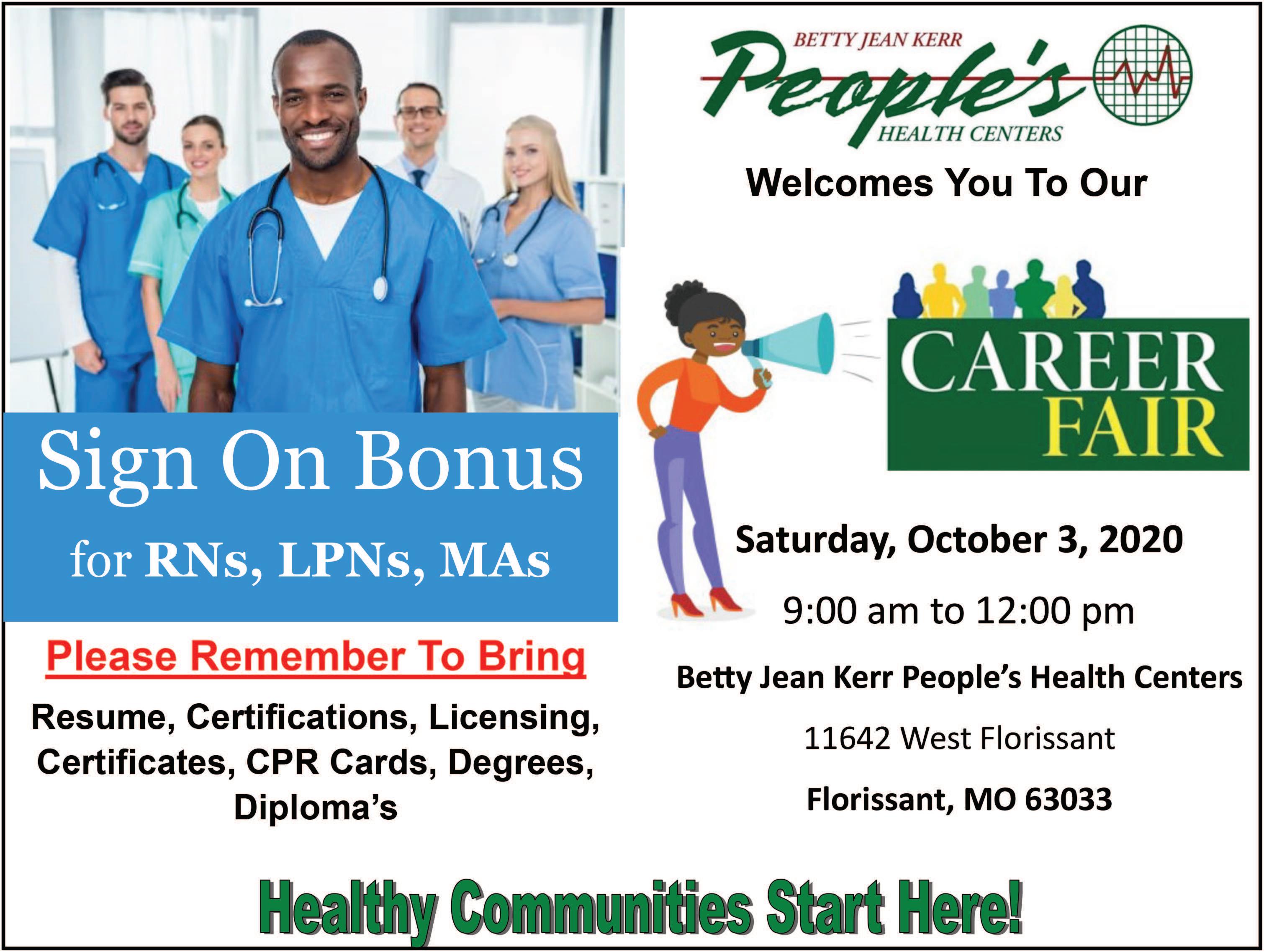
Continued from A1
“That shows what commitment to civil rights they had. You can’t be willing to stand up unless you’re willing to die for it.”
Wayman F. Smith III would live to risk his life and career for his people many more times after that fateful morning. He passed September 15, 2020, at the age of 80.
“He was a very brilliant man, a great warrior, a great leader and politician,” said Byron Glore, who grew up with Wayman as boys and later worked with him at AnheuserBusch. “He taught a lot of the young Black politicians in St. Louis how to gain control of their destiny, and he showed them how to implement policies that affected their constituencies.”
Wayman and Glore helped the beermaker, then headquartered in St. Louis, to raise $165 million for the United Negro College Fund. As vice president of A-B’s Corporate Affairs Department, Wayman founded a Minority Purchasing Program Initiative valued at $200 million. He directed support of minority-owned media including minority-owned magazines, newspapers, television stations, radio stations and events across the nation including the Essence Jazz Festival, the Budweiser Superfest, The Gateway Classic and the Lou Rawls Parade of Stars.
Wayman also initiated the first major corporate sponsorship of the Dr. Martin Luther King, Jr. State Celebration Commission of Missouri. Serving on the executive board of the Congressional Black Caucus, he was instrumental in raising the funds that helped to make the caucus a political powerhouse.
“He helped raise the millions of dollars that supported the foundation’s important projects that helped Black members of Congress establish, broaden, and elevate the influence of African Americans in national and local political, legislative and public policy arenas,” said retired Congressman Bill Clay.
Wayman helped to found the most successful AfricanAmerican giving initiative at any United Way agency in the country. Victor Julien, who worked alongside Wayman in A-B’s philanthropic efforts, was there at its inception along with Donald M. Suggs, publisher of The St. Louis American, and Charmaine Chapman, who would become the namesake of the initiative.
“He was the first chairman of the Charmaine Chapman Society for the United Way of Greater St. Louis,” Julien said. “That spread to other United Ways around the country. That was the forerunner for an African-American giving initiative that has since gone national, and Wayman should be given a lot of credit for that.” Wayman’s leverage of philanthropy to benefit the Black community was exemplary, both nationally and locally.
“Wayman Smith not only leveraged his broad corporate, political and civic influence to benefit the Black community,” Suggs said, “but he also encouraged fellow AfricanAmerican leaders to engage in philanthropic efforts and activities.” Wayman became synonymous with corporate support for Black communities.
“You could argue that Wayman was to Corporate Affairs what Louis Armstrong was to jazz,” said Mike Jones, who served with Wayman on the St. Louis Board of Aldermen and was one of many Black politicians influenced by him. “He may not have invented it, but you can’t talk about it without calling his name.” At no Black institution was his influence more transformative than at Harris-Stowe State University, where he served on the Board of Regents for 21 years (1989-2010) and chaired it for 12 of those years. Wayman’s service to Harris-Stowe was quite personal; when he was a boy, Harris was a teachers’ college for white students and Stowe was a teachers’ college for Black students. All four of Wayman’s maternal aunts and his beloved cousin Marion Meaux
“Snookie” Robinson all earned their college degrees from

Stowe Teachers College. During Wayman’s tenure as chairman of Harris-Stowe, according to Dr. Henry Givens Jr., the university’s president emeritus, “the college expanded from one building and one degree to a status of university with six buildings, a new business school campus in South St. Louis, 14 degree programs, with doubled full-time faculty and tripled student enrollment.” He helped to raise $345 million for the university and was one of the founding members of Harris-Stowe’s African American Business Leadership Council, chaired by David Steward.
Wayman also served as a member of the Board of Directors of his alma mater Howard University from 1989 until the end of his life, chairing the board from 1991-1995. His dear friend Earl Graves Sr. partnered with Wayman’s daughter Kymberly Smith Jackson and his sister Robin and raised $250,000 to create The Wayman F. Smith III Scholarship Foundation. The foundation, which continues to be managed by his daughter, works closely with Howard University and the St. Louis Chapter of the Howard Alumni Association to provide scholarships for students of Howard and Harris-Stowe universities.
Between his efforts to fund the UNCF, his foundation, Harris-Stowe and Howard, Wayman was a one-man endowment for Black institutions of higher learning.
“If you went to an HBCU or UNCF college in the 1980s and 1990s, chances are Wayman Smith had something to do with your education,” said Johnny Furr Jr., who succeeded Wayman in corporate leadership at A-B. “He’s helped so many people that they don’t even know that they’ve been helped by him.”
His support for Black education was somewhat ironic, given his pioneer status as a student desegregating schools. Wayman became one of the first students included in the St. Louis Public School system’s effort to desegregate (even before Brown v. Board of Education). As part of that plan, Wayman transferred to and graduated from then allwhite Soldan High School. He finished his undergraduate work at Monmouth College in West Long Branch, New Jersey, where he again faced the challenges of integrating a predominately white school.
However, when Wayman joined the Howard Law School Class of 1965 – a graduating class of 10 – his future and the fate of thousands of Black college students not yet born was set in motion.
Wayman’s commitment to civil rights deepened during his time in Washington, D.C. He attended the 1963 March on Washington, D.C. and volunteered with the St. Louis Chapter of the NAACP under the leadership of Pearlie Evans, which led him to take that trip down South that his sister still remembers with tears.
Wayman returned to Missouri to work on housing legislation for the Missouri Commission on Human Rights in Jefferson City in 1966. This legislation was successful in designating the real estate office as a place of public accommodation. In 1968, following the death of his father, Wayman moved back to St. Louis to support his mother and to make sure that his younger siblings pursued post-secondary education and later to support their professional goals. He would be Robin’s first agent in the broadcast media business. Wayman was invited to partner with iconic civil rights attorney Margaret Bush Wilson; they remained law partners until he joined the executive staff of A-B in 1980. During their partnership, he served as a municipal judge in St. Louis from 1970-1975. He was still Wilson’s law partner in 1975 when he was first elected 26th Ward alderman and he would serve on the St. Louis Board of Aldermen until 1987.
cal legends in their own right were schooled by Wayman while serving alongside him on the Board of Aldermen.
Virvus Jones – who had been Wayman’s client as a Vietnam War protestor and would become St. Louis’ most transformative comptroller – said Wayman’s influence was definitive. “He was a mentor to most of the young Black aldermen,” Jones said. “He helped us develop, for the first time on the board, a strategy to get things done.”
n “I remember Wayman Smith as a guardian and protector of the rights of the poor and the oppressed.”
– Bill Clay
Jones was amazed that, even as Wayman continued to serve on the board while working for a local corporate giant, he maintained his independence.
“August Busch never told him how to vote,” Jones said.
“He recognized that Wayman would lose his value in both of his roles if he was just seen as doing whatever August Busch told him to do.”
A number of people who would become St. Louis politi-
After he left the board, Wayman was appointed to the St. Louis Board of Police Commissioners by Governor Mel Carnahan, serving for four years, including a term

as board president.
Wayman’s impact on Black communities spanned from street outreach registering voters to transformative C-suite philanthropy as one of the first homegrown Black corporate executives in St. Louis – and just about every point in between.
“I think about all the careers he had,” said Furr. “He was a lawyer, he was an alderman, he was a judge, he was a corporate executive.”
And, he was a father – a single father, when that was a rarity – and the single father of a girl, at that.
“Not everyone was kind to either of us because of that,” said his only child, Kymberly Smith Jackson, now an attorney and college professor. “It’s not like there weren’t whisperings; this was not usual. For a young lady to be alone with her dad, that was definitely not what he signed up for. He definitely expected there to be a traditional mom who raised the kids. I’m sure he was terrified, but he was always there for me.” Jackson remembered how her father shrugged off adversity and ill will. “He had this quote that he got from his dad,” she said: “‘Ain’t nothing but a step for a stepper.’”
The calm that hid the fear
and provided a safe space for a young girl growing up alone with her father defined the man in his public life as well.
“Wayman was easily the most even-tempered person I’ve ever met, especially in politics,” Mike Jones said. “No matter what the situation, he was always – and I mean always – under control emotionally. His patience was like watching a great apex predator, one of the big cats. He never moved or struck till he was ready and had the optimum position possible.” He fought, not to hurt others, but to defend and advance his own people and the downtrodden.
“I remember Wayman Smith as a guardian and protector of the rights of the poor and the oppressed,” Bill Clay said. “He especially devoted time to promoting the just causes of minorities, women, and lowly paid workers.”
“He was a giant and a renaissance man beyond compare – especially to the people of St. Louis,” Victor Julien said. “They never saw anything like that before.”
“Wayman’s legacy is like a giant iceberg,” Mike Jones said. “No matter how much you’re looking at, most of the iceberg is below the surface.”

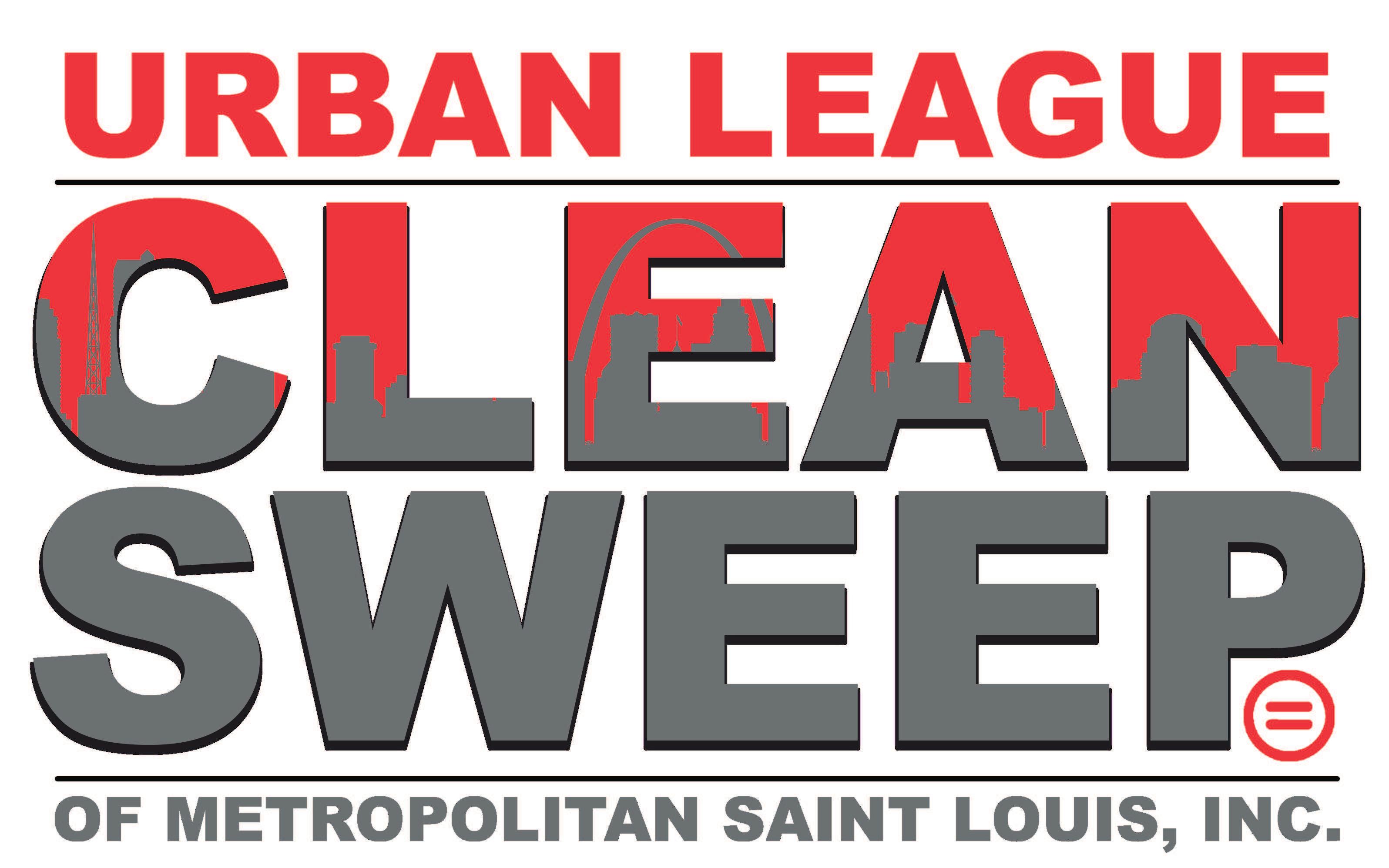

“The Urban League Grand Avenue Clean Sweep”, a massive neighborhood clean-up and demolition effort, took place September 12, 2020 along a 2.5-mile stretch of Grand Boulevard starting at the Grand Water Tower and ending at St. Alphonsus “Rock” Liguori Catholic Church. The event, spearheaded by James Clark, Vice President of Public Safety and Community Response, was sponsored by The Regional Business Council and supported by local construction companies, Mayor Lyda Krewson, various City departments, and more than 300 volunteers. Fred Weber, Inc. led the effort to re-paint the water tower which had not been painted in more than a decade. Volunteer construction crews demolished six abandoned properties and landscaping companies helped trim trees and clear brush from Peace Park just across from the water tower. Barnes Healthcare also hosted “Screen Sweep” a public health screening initiative at St. Alphonsus church during the event.
“We are grateful for the leadership of Kathy Osborn and the Regional Business Council for their support of this effort,” said Michael McMillan, President and CEO of the Urban League of Metropolitan St. Louis, Inc. “As you can imagine, to clean 2.5 miles along Grand Avenue and then restore the water tower is a huge undertaking but this is how we demonstrate to the community that we are all accountable and we are all in this together.” The next Clean Sweep will be held October 17, 2020 in the area bordering our new headquarters at 1408 North Kingshighway. To volunteer, call 314-615-3600.











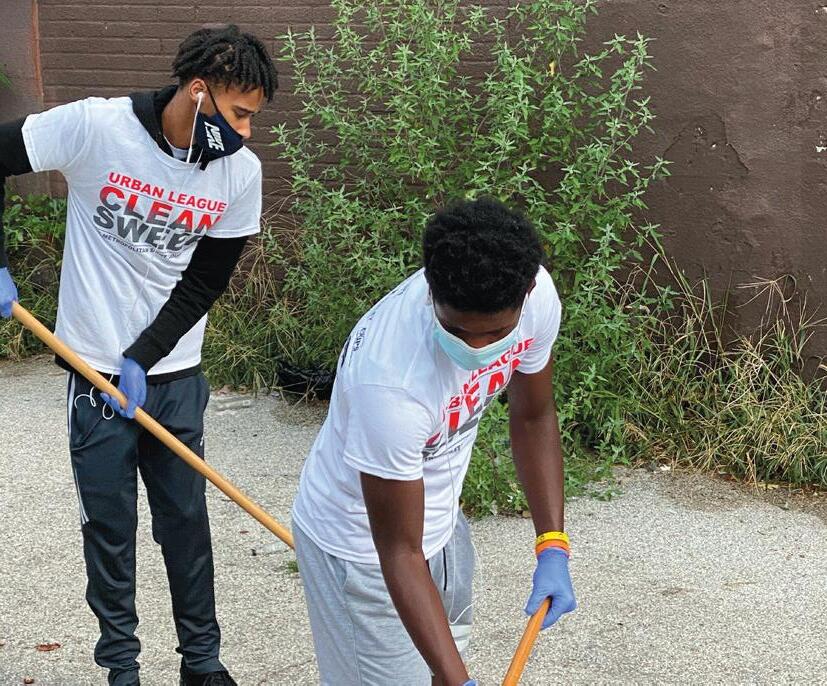





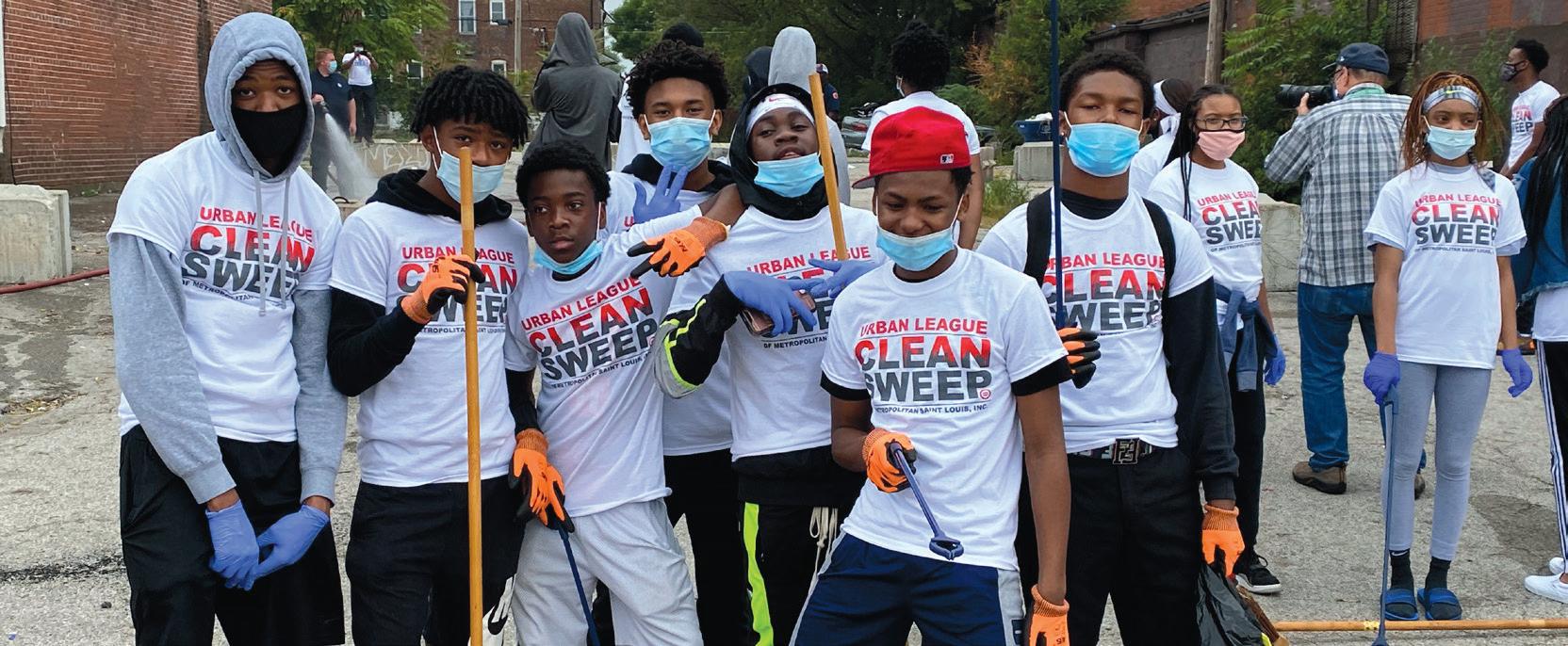
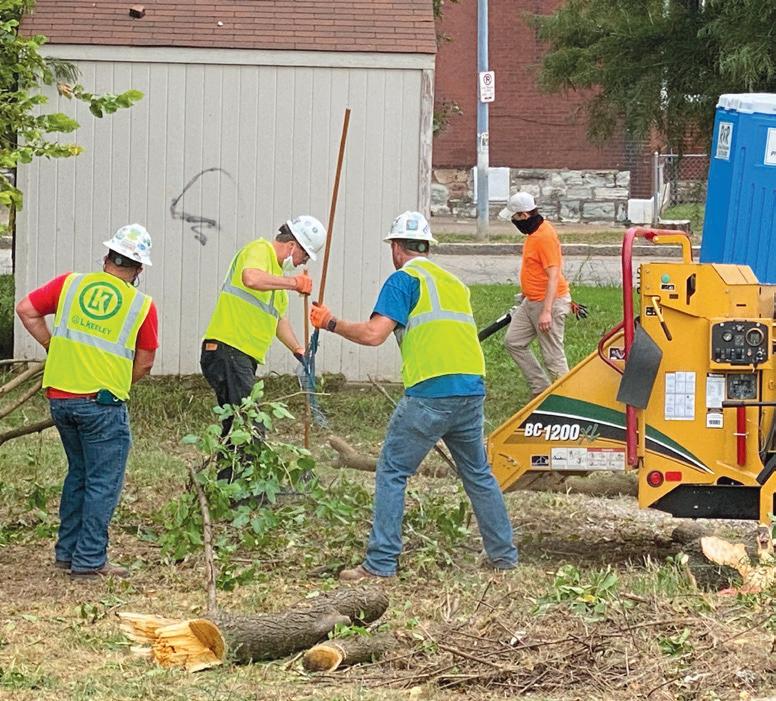



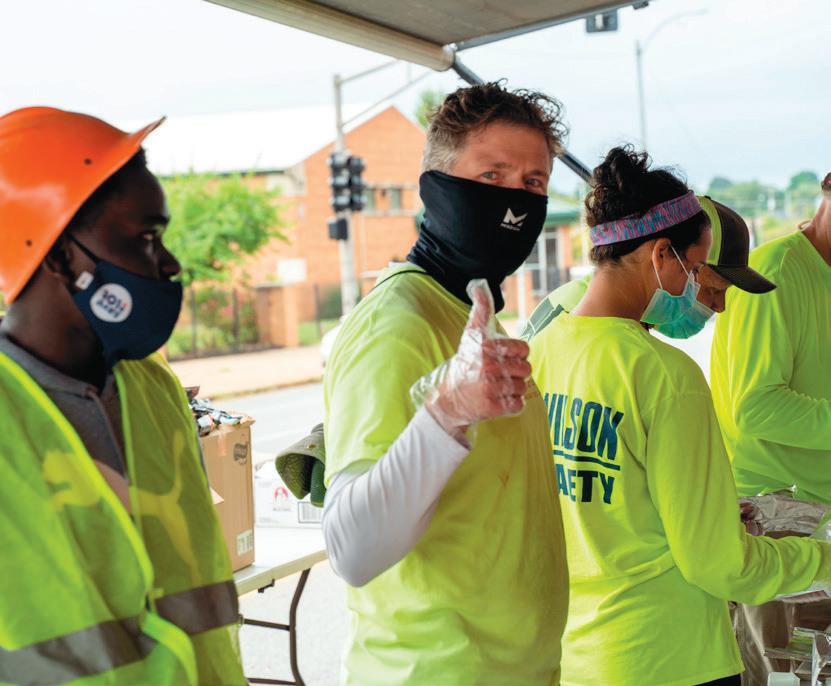

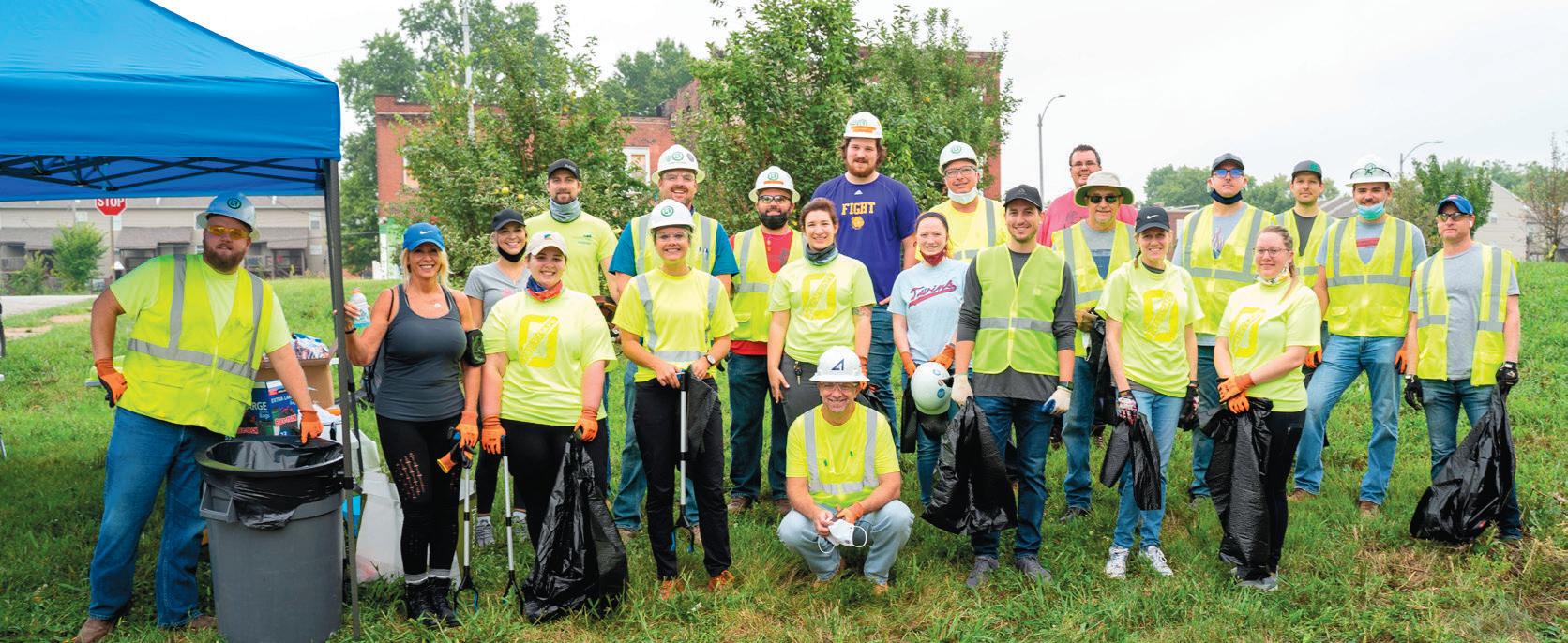





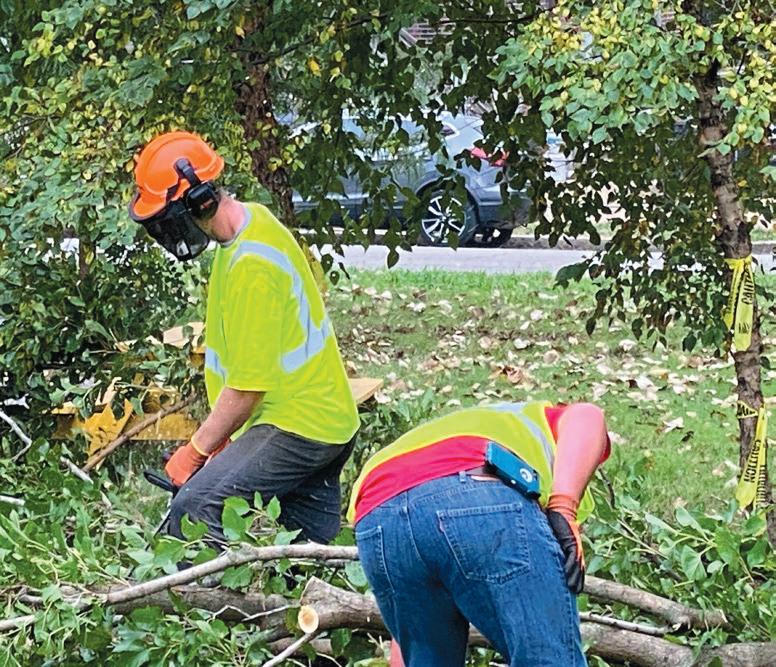





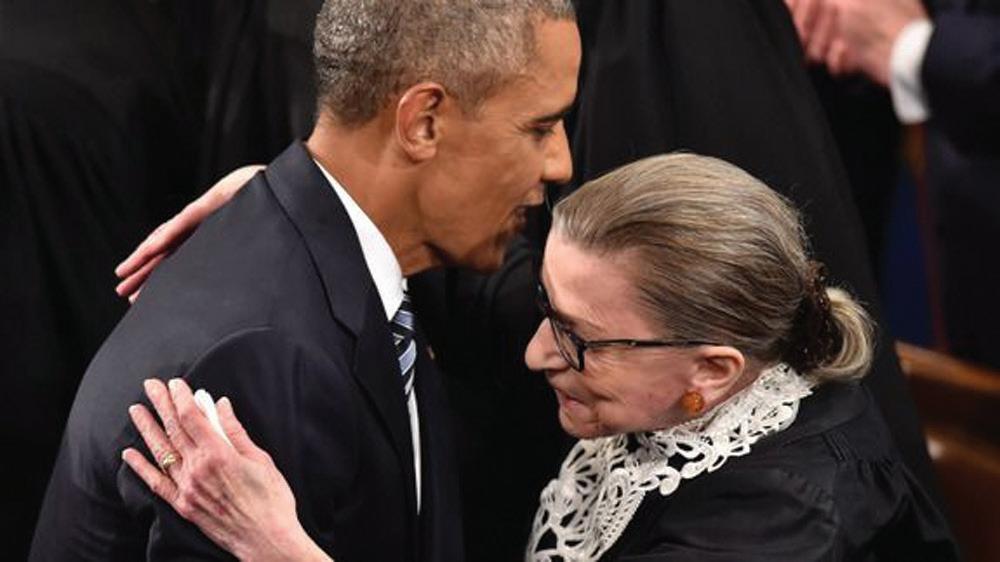
until a new president is sworn
By Barack Obama For The St. Louis American
Sixty years ago, Ruth Bader Ginsburg applied to be a Supreme Court clerk. She’d
studied at two of our finest law schools and had ringing recommendations. But because she was a woman, she was rejected. Ten years later, she sent her first brief to the Supreme Court
– which led it to strike down a state law based on gender discrimination for the first time. And then, for nearly three decades, as the second woman ever to sit on the highest court
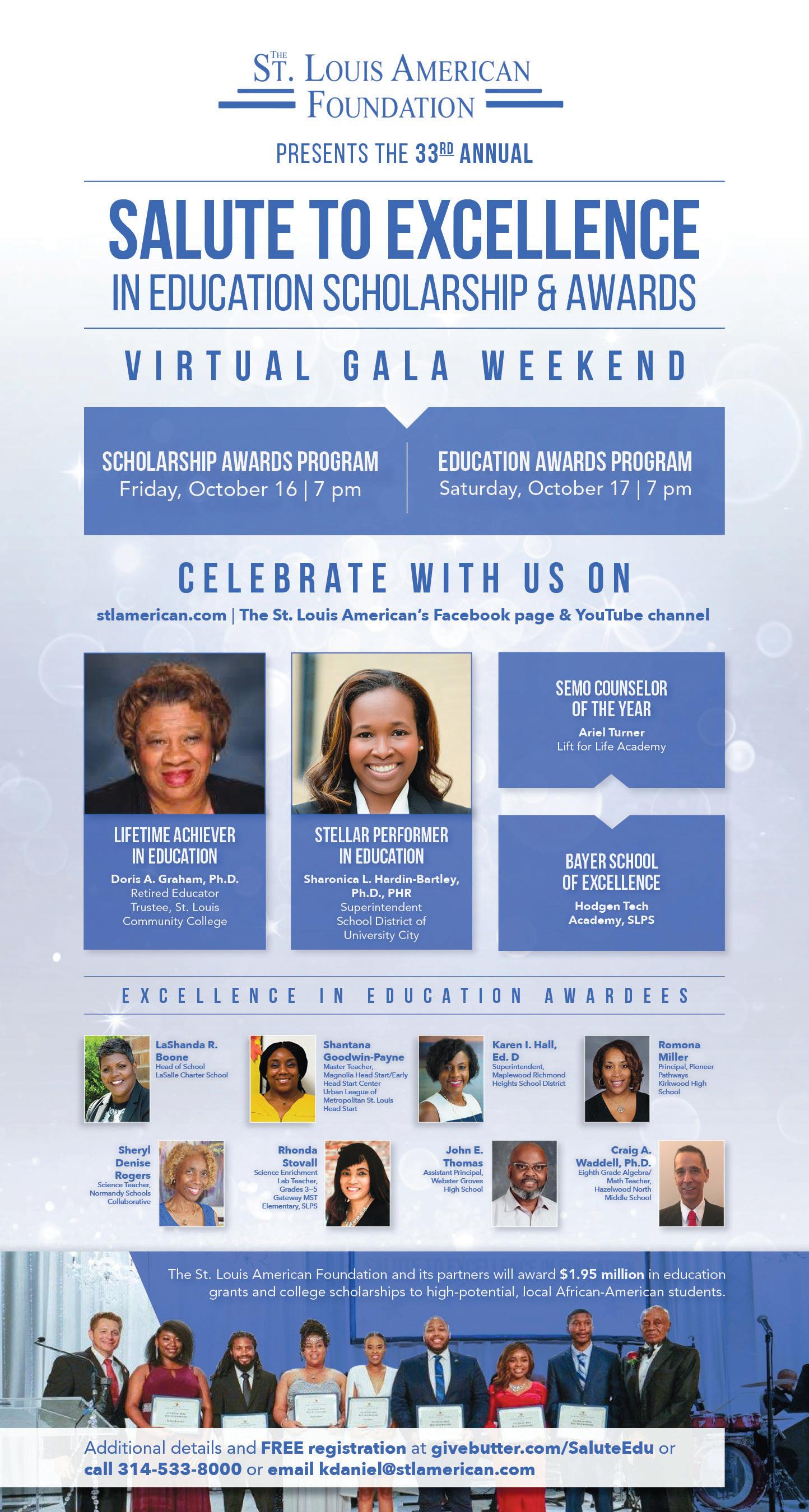
in the land, she was a warrior for gender equality – someone who believed that equal justice under law only had meaning if it applied to every single American.
Over a long career on both sides of the bench – as a relentless litigator and an incisive jurist – Justice Ginsburg helped us see that discrimination on the basis of sex isn’t about an abstract ideal of equality; that it doesn’t only harm women; that it has real consequences for all of us. It’s about who we are –and who we can be.
Justice Ginsburg inspired the generations who followed her, from the tiniest trick-or-treaters to law students burning the midnight oil to the most powerful leaders in the land. Michelle and I admired her greatly, we’re profoundly thankful for the legacy she left this country, and we offer our gratitude and our condolences to her children and grandchildren tonight. Ruth Bader Ginsburg fought to the end, through her cancer, with unwavering faith in our democracy and its ideals. That’s how we remember her. But she also left instructions for how she wanted her legacy to be honored.
n Ruth Bader Ginsburg left instructions for how she wanted her legacy to be honored.
Four and a half years ago, when Republicans refused to hold a hearing or an up-ordown vote on Merrick Garland, they invented the principle that the Senate shouldn’t fill an open seat on the Supreme Court before a new president was sworn in. A basic principle of the law – and of everyday fairness –is that we apply rules with consistency, and not based on what’s convenient or advantageous in the moment. The rule of law, the legitimacy of our courts, the fundamental workings of our democracy all depend on that basic principle. As votes are already being cast in this election, Republican Senators are now called to apply that standard.
The questions before the Court now and in the coming years – with decisions that will determine whether or not our economy is fair, our society is just, women are treated equally, our planet survives, and our democracy endures – are too consequential to future generations for courts to be filled through anything less than an unimpeachable process.


or
qualify for the
By Lisa Lake Of the FTC
People who are homeless or transient may not know they qualify for the $1,200 Economic Impact Payments (EIP) — also called “stimulus checks” — that went out last Spring. They might also get an additional $500 for each qualifying child — and they don’t need an income to claim the payment. That’s why the FTC is working with the IRS to get the word out about how people can still collect their money — and we need your help.
n If you know anyone who doesn’t have a permanent address (or someone who just isn’t aware that they might qualify for a payment), here’s what they need to know.
If you know anyone who doesn’t have a permanent address (or someone who just isn’t aware that they might qualify for a payment), here’s what they need to know.
The deadline to enter a claim for payment is October 15. To sign up, people need:
• Their name plus a mailing address and an email address. (People can ask a friend, family member, or shelter to use their address.)
• Date of birth and valid Social Security number (SSN)
• Bank account information, if any
• Identity Protection PIN, if they’ve gotten one from the IRS
• License or state ID, if any
• Name, SSN, and relationship for each qualifying child
People who don’t normally file income taxes may still be eligible for a payment. Those with an income below $12,200 ($24,400 for married couples) can get instructions on how to use the IRS’s non-filers tool, then file a claim at IRS.gov/nonfilereip.
See HOMELESS, A12
‘The power of partnership’
The Boys & Girls Clubs of Greater St. Louis has entered into an agreement to purchase the former Carter Carburetor Superfund Site and develop a youth golf training facility at the site along with Gateway PGA Reach. These plans were announced at the site on September 16 as part of a celebration of the completed cleanup of the toxic site with EPA Administrator Andrew Wheeler.
“I am grateful to the U.S. EPA, U.S. Department of Justice, Missouri Department of Natural Resources, the City of St. Louis, Thompson Coburn LLP and the American Car and Foundry Company for coming together to promote the growth and development of children in the St. Louis region,” said Boys & Girls Clubs of Greater St. Louis President Flint Fowler.
“BGCSTL relies on the generosity and support from a variety of public and private benefactors to help young people realize their potential as productive, responsible and caring citizens. Today we are witnessing the power of See PARTNERSHIP, A12 Boys & Girls Club partners with Gateway PGA Reach to repurpose Carter Carburetor site
Missouri chief justice makes impassioned plea for inclusion at annual meeting
By Chief Justice George W. Draper III Supreme Court of Missouri
When this pandemic wanes – and it will, eventually – a sense of normalcy will return, and I hope this profession will return to a focus on safety and inclusion.
The evaluation of court security for the public, litigants, and court personnel has been put on hold, but the issue of inclusion has remained at the fore. Let me take a moment to remind you of a piece of our history.
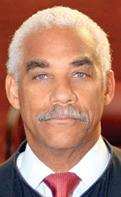
In 1770, a group of citizens gathered, demanding discipline for soldiers, who then fired into a crowd. A lawyer by the name of Adams stepped forward to represent those soldiers. And yet, a cousin of that lawyer fomented sentiment for the crowd and dubbed the incident “The Boston Massacre.” We moved from a colony to a nation. Among the first killed in that demonstration was a black man, Crispus Attucks, a man born to an African father and a Native American mother and who escaped slavery to become a seaman.
Nearly 200 years later, a preacher born in Georgia, working in Alabama, and speaking in Memphis the day before his death, said, “Somewhere I read that the greatness of America is the right to protest for right.”
We in Missouri must remain mindful of our justice system’s failings, from its treatment of Dred Scott and Lloyd Gaines in centuries past to more recent abuses. A new era of urgency for change in our justice system has been ushered in by the untimely death of those for whom the opportunity for justice ended on the streets.
n We have been forced to acknowledge there still is not equal treatment of African Americans and people of color in our justice system.

A recent poll of more than 600 judges nationwide asked whether they believe systemic racism exists in the criminal justice system. A staggering 65 percent responded yes. For those who accuse judges of being out of touch with their communities, surely this is evidence that they are not. They too have witnessed demonstrations, destruction and death in cities large and small across America as part of a national movement some have compared with a call for a third reconstruction.
We have been forced to acknowledge there still is not equal treatment of African Americans and people of color in our justice system. Like it or not, the issue of race and racial disparity in our profession is undeniable, although its full impact is yet to be seen. We need to be open and honest in our conversations to make our profession and our society more inclusive.
Last year, I spoke to you of inequalities in the judicial evaluation process. This year, let me direct your attention to a Missouri Lawyers Weekly piece in late July hailing “The Power 30” among certain civil attorneys – a prestigious group, but including only four women and zero minorities of any ethnic or racial group. The need for diversity, inclusion and a real understanding of racial bias that divides and threatens our communities, our industries and our democracy is imperative. Our state
City Hope St. Louis celebrates first year as nonprofit with grand opening
By Dana Rieck For The St. Louis American
City Hope St. Louis, soon to be the region’s largest housing and employment assistance organization, celebrated its first year as an incorporated 501(c)(3) non-profit organization with a grand opening of its new headquarters, located at 2010 S. Eighth St., on September 11.
City Hope St. Louis CEO Bishop Michael Robinson said the staff has been working out of the new building for approximately two months, but said having the grand opening near the organization’s one-year anniversary (September 16) felt right. He also noted it’s been an exciting time for everyone involved.
The building itself is neighbor to other homeless service organizations, including Peter & Paul Community Services.
“We are in the business of treating our unhoused commu-
Continued from A11
constitution promises that our courts are open and accessible to all. Recent events force us to see our courts through the lens of the oppressed and to ask ourselves what kind of culture we are establishing in our courts and legal community. So, I am asking that we look within, take a holistic view of our entire profession, truly listen to and see one another, and find ways we can do better.
That preacher I spoke of earlier also said, “The ultimate measure of a man is not where he stands in moments of
nity members with love, dignity and respect,” Robinson said. “We want to make sure that is the focal point of how we do shelter care — with love, dignity and respect to ensure that those who come through our doors feel that when they leave. It’s one of the most important things to us as an agency.”
St. Louis Mayor Lyda Krewson was in attendance and addressed the masked group gathered for the grand opening.
“You have just responded to the needs of our unhoused population in such a fabulous way,” she said to Robinson and his staff. “And we so, so, so appreciate that. But when COVID-19 hit … many of our homeless service providers had to lower their populations so that they could socially distance, so they could keep everybody safe. And so that put us in a situation of very quickly having to find additional services so that we would not have people on the street, and
comfort, but where he stands at times of challenge and controversy.” Our society is on a precipice, with so many Americans crying out to be heard, demanding reforms be made so they all can be treated equally, with the respect and dignity to which they are entitled under the law, but which they have not always been given. Life is about choices, and I choose to stand before you an optimist, believing that the rallying cry of the people will be heard, that we can right wrongs of the past, and that we can build a more tolerant world for those who will follow. In Missouri, our bench and bar are taking steps to build a
you were so, so important in that.”
Jennifer Turner, City Hope CFO and HR director, said in addition to providing housing and employment services for people, they hope to become one of the leading employers in the region.
“One of our goals is to become one of the best employers in St. Louis,” she said, noting that they have positions open and posted on Indeed.com.
of our seams since winter,” he said. “We have been growing nonstop. Typically, our winter season starts November 1, sometimes in October, and then we go until maybe March, then we stop. But because of COVID, we have been going nonstop since November 1.”
n “We are in the business of treating our unhoused community members with love, dignity and respect.”
– Bishop Michael Robinson, City Hope St. Louis CEO
According to Robinson, the new headquarters is going to serve as the central hub for City Hope Staff, as the organization continues to grow at a rapid pace.
“We needed more space, because we have grown out
more inclusive legal system. That work began in earnest when our fellow attorney, former Kansas City Mayor Sylvester “Sly” James Jr., encouraged law firms to sign a pledge to increase minority practitioners in their organizations. His work sparked a statewide effort, and now your Missouri Bar has established a special committee on lawyers of color in the profession.
As the Bar noted, diversity in the legal profession means equality of opportunity to practice law in a position of influence throughout society. Equality for all requires everyone to have a seat at the table and a voice in developing and administering the rules that

He said social distancing restrictions have affected how many people they can serve among their seven shelters, which will soon increase to eight in October when City Hope becomes the managing agency of St. Louis’ Biddle House homeless shelter, in turn making the Black-owned organization the largest such agency in the region.
“City Hope has been a
govern our society. It is my hope for people of color to be as overrepresented in our professions as they are in our prisons.
This new committee is about action – its charge is to recommend specific actions the Bar can take in the next 12 to 24 months to increase the retention, promotion, and advancement of minority lawyers in Missouri.
You see, for change to be accomplished, a true shift in paradigm must occur, and action must be taken. I hope each and every attorney keeps an open mind in approaching the continuing legal education requirements of Rule 15.05 mandating training about
Continued from A11
People who get veterans or railroad retirement, Social Security Income (SSI) or Social Security benefits still qualify for this payment.
It’s important to know that only the IRS sends out these
Partnership
Continued from A11
partnership.”
The Carter Carburetor site is a large former manufacturing facility, where operations over decades resulted in contamination from polychlorinated biphenyls (PCBs) and trichloroethylene (TCE). The Boys & Girls Clubs of Greater St. Louis is located next door to the site and prior to EPA’s cleanup, the Carter Carburetor site was the subject of significant community concern regarding the site’s condition and the potential exposures to area children and residents.
In 2013, EPA entered into a $35 million settlement agreement with ACF Industries, Inc. to pave the way for the site’s cleanup, building demolition, and ultimately productive
great partner of ours for a while,” Krewson told The St. Louis American. “So, when we went out for bids on the Biddle House, we felt fortunate that they were willing to step and really take care of operating that facility for the benefit of the men who stay there.”
City Hope offers people various services, including emergency shelter, transitional housing and a housing program titled Hope Estate. Turner said they plan to implement a workforce development program, which would include a car wash and restaurant in the near future.
Last winter, City Hope operated one location and saw between 60 and 70 people each night. Now with multiple locations, they see around 150 to 175 people each night.
“We would see a lot more, but we have had to space everyone out because of the physical distancing guide-
eliminating implicit bias. We have to flatten the curve of prejudice, so the department of justice someday is not just a namesake of a division of the federal government but a reality in which everyone in our society can believe. A culture of respect and fairness, and a justice system in which all persons are truly equal under the law, is a far better dream for 2021 and beyond than the nightmare 2020 has thrust upon us.
Waking from a nightmare makes us thankful for what we do have. I am thankful the institution in which I serve is celebrating its 200th birthday this year. From this Court’s pronouncement “once a slave,
lines we have to adhere to,” Robinson said, noting that once they begin managing Biddle House that number will jump to around 250 people each night. Biddle House, pre-COVID-19, housed about 100 to 150 men.
City Hope is staffed with around 85 full-time employees and approximately 75 volunteers. However, Robinson said they are in need of more volunteers now due to COVID-19 restrictions.
The organization’s staff noted that they come from humble beginnings — not so long ago— and have expanded quite rapidly.
“We make sure to take time to get to know our guests,” Turner said. “They are not numbers to us. They’re not just names. We know a lot of their backstories, and they are part of our extended family. And that’s why we are growing so fast.”
always a slave” to the six colleagues I am proud to call friends today, our entire judicial branch has made much progress over the past 200 years. And so, to all, stay healthy and well, and may you prosper in our great profession of service.
Excerpted from the address given by George W. Draper III, chief justice of the Supreme Court of Missouri, on September 16 during the first joint annual meeting of The Missouri Bar and the Judicial Conference of Missouri to be held virtually, due to concerns over the COVID-19 pandemic.
payments, but they won’t call, text, or email people about their payments. And they won’t charge a fee. So: anybody who calls, texts, or emails offering to expedite an Economic Impact Payment is a scammer. People should never give anyone money to get a payment: anybody who tells you to pay is a scammer. Visit IRS.gov/coronavirus for more information on economic stimulus payments. The site includes a toolkit for partners to get these messages out to your network. Also visit ftc. gov/coronavirus for information on avoiding Coronavirus payment and product scam and how to report them to the FTC Lisa Lake is a Consumer Education specialist for the FTC.
reuse. Cleanup of the site began that year with the removal of asbestos and hazardous debris from buildings on the property. Demolition and removal of the buildings began in 2015.
n “Few imagined a polluted, former carburetor plant could be transformed into a golf training center for the youth of St. Louis.”
– EPA Administrator Andrew Wheeler
Additional waste removal work, on-site waste treatment, and other cleanup work continued into 2017.
“I couldn’t be prouder to sign this Prospective Purchaser Agreement because it opens

up a tremendous future for the Boys & Girls Clubs of Greater St. Louis,” said EPA Administrator Andrew Wheeler. “Few imagined a polluted, former carburetor plant could be transformed into a golf training center for the youth of St. Louis. But with vision and teamwork it happened.”
EPA and ACF Industries, Inc. completed site work in May 2020. As a part of site cleanup, ACF conducted removal actions to address dilapidated buildings onsite that were heavily contaminated with PCBs and asbestos. The site will be acquired and redeveloped by the Boys & Girls Clubs of Greater St. Louis, which has long stood in the shadow of this site. In partnership with the Gateway PGA Reach organization, they will build a golf training facility for inner city youth on most of the site property. The St. Louis Land Reutilization Authority owns part of the Site (including an area where PCBs are buried and capped, which it acquired through tax default), which it hopes to develop into a pollinator park, urban prairie feature, or community garden to support the surrounding reuse.
“Cleaning up the Carter Carburetor site was no small task given the multiple contaminants, including PCBs, TCE, asbestos, and others,” said EPA Region 7 Administrator Jim Gulliford. “The Boys & Girls Clubs of Greater St. Louis, the community leaders and partners worked tirelessly with EPA to see this through. And, now that the site has been cleaned up, the community can move forward in redeveloping the property into a tremendous community asset.”

‘Our attorney general’s duty is to serve the people, not a political party’
A conversation with Democratic nominee Rich Finneran
Missouri Attorney General Eric Schmitt should be well known to readers of The St. Louis American for his persistent – and, to date, failed – attempts to undermine the authority of St. Louis Circuit Attorney Kimberly Gardner, the first Black person elected to that office. He is less well known for joining a law suit filed by other state attorneys general that would undo the Affordable Care Act, AKA Obamacare. Schmitt’s attempt to gut health care protections has been the prime target of the campaign run by his Democratic opponent, Rich Finneran, a former federal prosecutor and partner at Bryan Cave Leighton Paisner who also teaches at the Washington University School of Law. The St. Louis American talked to Finneran about his campaign.
The St. Louis American: The St. Louis American endorsed you in the primary, though there was another strong candidate, Elad Gross, who did well and has many supporters, particularly in St. Louis, whom you will need to vote for you in the general election. What have you done to reach those Democrats, and what evidence do you have that they will be with you on November 3?
Rich Finneran: Elad and I have been friends for many years. We both pledged to each other before we became competitors that we would work together to build the energy of the party during our primary and beyond, and that is exactly what we have done. Elad has wholeheartedly endorsed our campaign and even hosted me on his podcast, the EladPod, to spread the word to his followers. We both feel we have successfully brought our party together and will continue to work together to defeat Eric Schmitt and restore integrity to the Attorney General’s Office this November.
The St. Louis American: How do you assess the energy of the party in Missouri? It seems difficult to assess under pandemic conditions. What indications do you see that people will come out on November 3 and vote Democrat lower on the ticket than the top?
Rich Finneran: Campaigning during a global pandemic has certainly been a challenge, but it has also provided us as Democrats with new opportunities to reach out to people all across the state. I recently co-hosted a virtual town hall with our nominee for Lt. Governor Alissia Canady, and we had more than 1,000 viewers for the event. Even in normal times, it would have been far more costly and challenging to host a town hall with even a tenth of the attendance. In the dozens of virtual events that we have conducted over the course of the campaign, we have seen a truly inspiring groundswell of enthusiasm that we believe will propel us to victory in November.
The St. Louis American: I was looking at the primary numbers. Schmitt got more than 100,000 more votes than Elad and you combined, and the two of you had a competition to drive up the turnout. Where do you get more than 100,000 votes from Democrats who didn’t vote in the primary
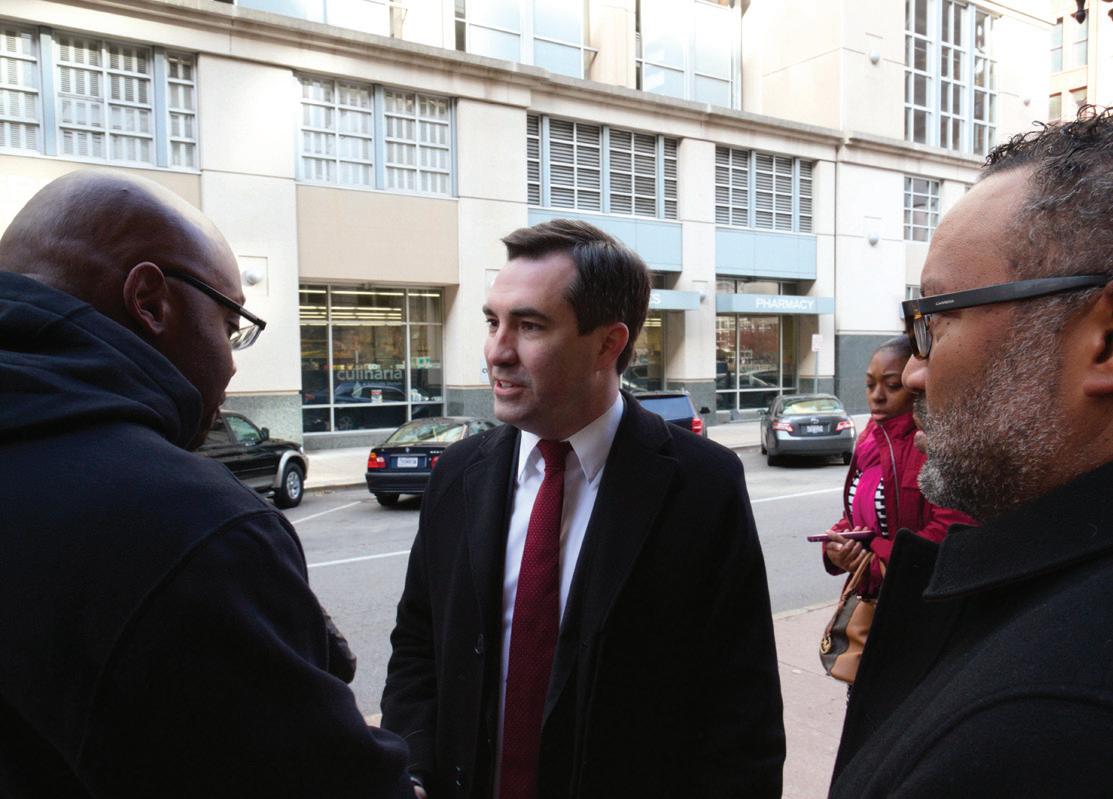
Democrats you are wooing about your experience or platform that might win them over?
Rich Finneran: I am not running only to be an attorney general for Democrats; I am running to be an attorney general for all Missourians. I believe that our attorney general’s duty and obligation is serve the people, not a political party. As a former federal prosecutor, I dedicated my life to promoting fairness, justice, and the rule of law, and that is exactly how I intend to conduct myself as attorney general. Once I am elected, the readers of your paper and the people of this state should have confidence that they will once again have an attorney general who will put people ahead of politics.
The St. Louis American:
The U.S. Department of Justice today has identified three jurisdictions as anarchic havens that have permitted violence and destruction of property to persist and have refused to undertake reasonable measures to counteract criminal activities: New York City; Portland, Oregon; and Seattle, Washington. What do you think of that?
– when you also had Medicaid expansion driving the vote for Democrats in the primary?
Rich Finneran: We won’t win this election with Democrats alone. For us to win in Missouri, we have to unite voters across the state who are fed up with the failures of our leadership and who want to see integrity restored to their government. We expect a historically high turnout in November, and I am convinced that we have the right message to appeal to voters across the political spectrum. That is how we win this election.
The St. Louis American: One issue where you might be able to pick off some Republican voters – as hard as that is to believe in this polarized environment – is Schmitt joining the lawsuit to undo health coverage protections for people with preexisting conditions. Did you ever get him to walk that back? Do you have any evidence Schmitt lost voters over it?
Rich Finneran: Despite our calling him out on this issue for the past 10 months, Eric Schmitt has persisted in his efforts to overturn Obamacare in the Supreme Court. If he succeeds, it would not only mean the end to guaranteed coverage for pre-existing conditions, but it would also mean rolling back the expansion of Medicaid that we just approved in the August election. In the thousands of conversations I’ve had with voters over the past year, there is no issue that weighs more on voters’ minds than this issue. If we can make sure voters know that their taxpayer dollars are being used to put their healthcare at risk, I know they will reject Eric Schmitt’s partisan politics and vote for us instead.
The St. Louis American: We know Schmitt is doing many things the attorney general of Missouri should not be doing – undoing Obamacare, suing China, trying to undermine the City of St. Louis’ elected prosecutor to prosecute cases in a jurisdiction where he does not live or vote and was not elected. What should the attorney general of Missouri be doing with the powers of that office?
Rich Finneran: The attorney general’s job is to enforce the law, not to play politics with the power of his office. Plain and simple. Once I am elected, I will end Eric Schmitt’s partisan lawsuits and focus the office’s attention where it belongs: protecting the people of Missouri and enforcing fairness, equality, and justice under the law.
The St. Louis American: What are some specific mandates and responsibilities of the office Schmitt has been neglecting for his political show that you would work on, and how would that benefit the state and its citizens?
Rich Finneran: One of the principal areas that Eric Schmitt has neglected is civil rights enforcement. Each year, the attorney general is required by law to release a report detailing racial bias in policing. Each year, the report shows that Black Missourians are more likely to be pulled over and less likely to be in possession of contraband. And each year, Eric Schmitt has failed to take any concrete steps to
address this example of systemic inequality. As attorney general, I will dedicate resources within the office to enforcing our civil rights law, to ensure that all Missourians are treated equally.
The St. Louis American: Okay, say you’re elected attorney general. Now it’s your move what to do with all of that vehicle stops data other than just collect it. What do you do?
Rich Finneran: We need to begin putting that data to good use. When we see a problem,
we should take concrete steps to fix it. That means identifying particular policies and practices that result in racially disproportionate enforcement and dismantling the systems that produce such unfair outcomes. As attorney general, I will enforce our civil rights laws to ensure that law enforcement resources are not being applied in a racially discriminatory manner. And where local prosecutors identify practices that are resulting in unequal treatment, I will partner with
them to enforce the principle of equal protection guaranteed by our Constitution.
The St. Louis American: Most regular readers of The American who vote are likely to support you as an alternative to Schmitt because of his attempts to undermine Obamacare and Kimberly Gardner. But given the accessibility of digital and social media, people who are not Black and not a trueblue Democrat will read this. Without running off your base, what can you tell these non-
Rich Finneran: The federal government should be working with local law enforcement, not against it. Local authorities are the ones best positioned to decide how to address unrest and violence in their commu-




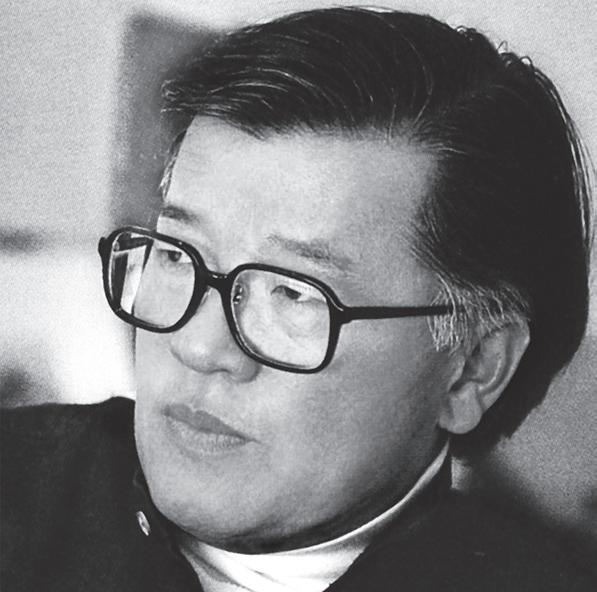


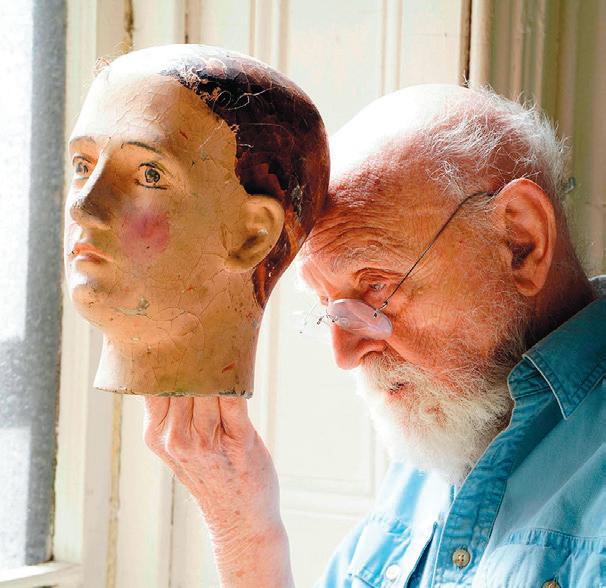

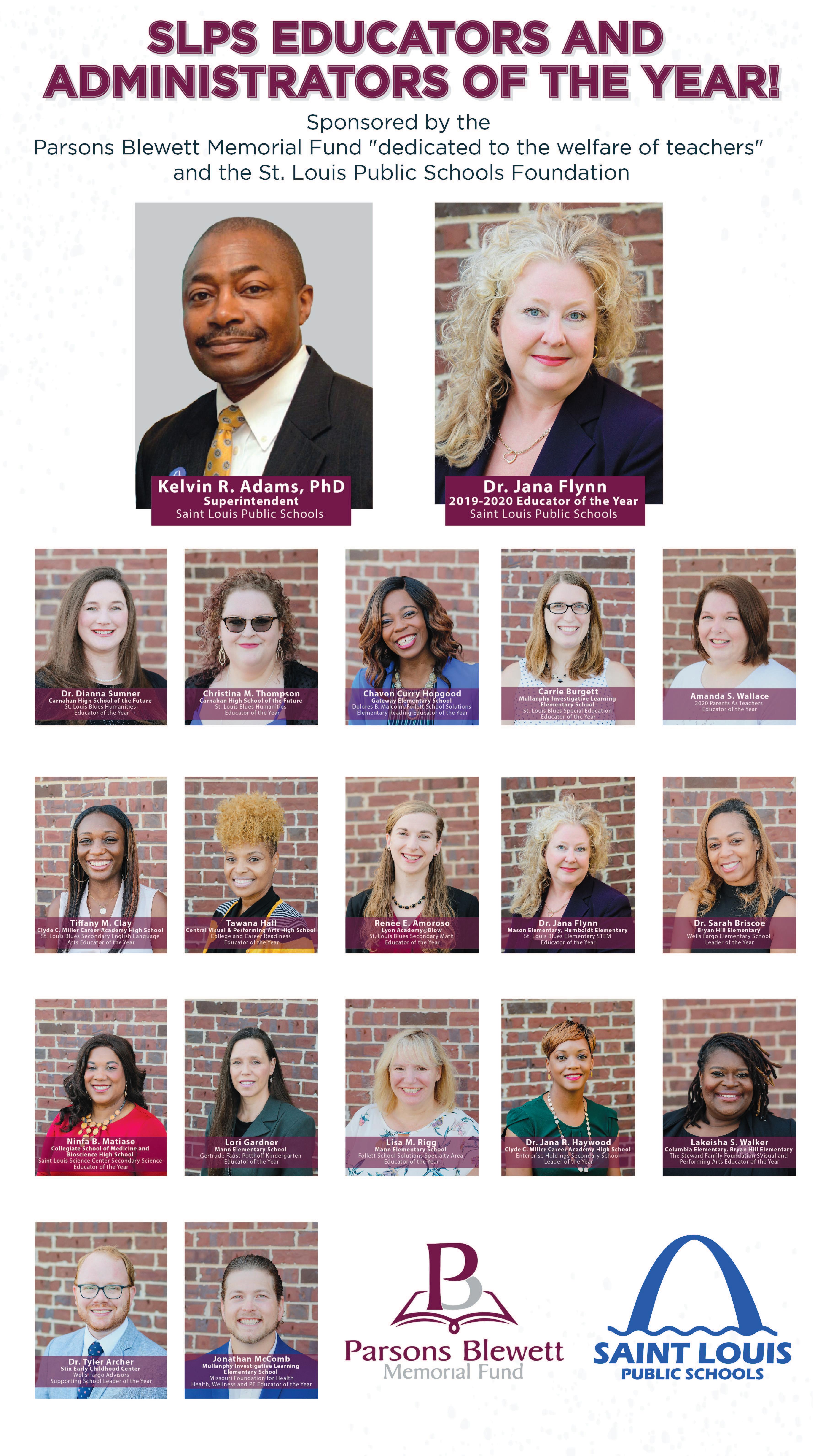
By Orvin Kimbrough, Chairman and CEO, Midwest BankCentre
I grew up in the Missouri foster care system. I entered the system when I was a young boy of just eight, and aged out at 21 years old, while in college. A home, a true home of my own-free from neglect and abuse, was something that I could only dream of as a young child. Today, I know how important a home is – owning one’s home, having a safe place to call home, is special and significant for a full host of reasons that reach far beyond the ability to choose what color to paint the walls.
Home is truly that place of refuge, where your heart rests.
It’s where your friends and family gather for celebrations, where your kids grow up, and where you kick off your shoes at the end of a long workday. For many, owning one’s own home is more than a major investment. It’s a fundamental piece of the American Dream. Especially in Black and Brown communities, homeownership is about wealth building and community building. Compared to renting, the financial returns of homeownership are generally far greater, and likely to remain so as long as current patterns continue. With mortgage rates at historical lows, home ownership has become increasingly more accessible. Combining low rates with the ability to build equity and potential home value appreciation means that home ownership is an effective way to build your family’s wealth. Closing the economic gap helps to close all of the other gaps. I believe that economic mobility impacts everything – from justice to education to health access and disease. By building wealth via homeownership, we are closing the gap. Homeownership is also foundational to community building. When you own your home, you not only take pride in it, but that pride extends to your street and your neighborhood. While the research backs it up, we don’t need studies to tell us what we already know – home ownership reduces crime, strengthens communities, and even increases volunteerism and improves health.2 Today, Americans are more likely than ever to own a home. Even with the COVID-19 pandemic, the national home ownership rate was 67.9 percent in the second quarter of 2020.1 But too many people of color

still face significant barriers to homeownership. The rate of homeownership for minority families continues to lag behind the national average, with 47 percent of Blacks and 51.4 percent of Hispanics owning homes in the second quarter of 2020.1 St. Louis in particular had an overall homeownership rate of 74.4 percent in 2017, while the rate among households in the bottom 25 percent of income was 55.5 percent.3 What causes this ownership gap? A 2005 U.S. Department of Housing and Urban Development research report examined the root causes, but you already know the answer if you, or someone you know, has ever been in the low to moderate income category, like me. A significant amount of savings is needed to fund down payments, closing costs, and to pay down other outstanding debt, which is hard to do when living paycheck to paycheck. Lack of information also makes it difficult to know how to successfully navigate the housing and mortgage markets. Plus, minorities face an additional hurdle: for decades, racial discrimination in the form of redlining prevented minorities from acquiring loans to purchase or improve their homes. The effects of this practice are still seen and felt today, as many Black and Latinx families have missed out on the opportunity to build wealth for generations. The good news is that today, local, community banks like Midwest BankCentre make the dream of homeownership a reality for more people. At Midwest BankCentre, we Bank Our Values by investing in people, not just credit scores. For those without savings, we are proud to offer a 100% mortgage financing option that gives buyers the ability to purchase a home with zero down payment.* We also believe in equal access to the American Dream for all people, so we offer ITIN mortgages for those who don’t have social security numbers.
By Charlene Crowell For The St. Louis American
As of mid-September, at least 197,000 people died from COVID-19 according to Johns Hopkins University. Beyond these fatalities, the number of COVID-related cases diagnoses reached 6.5 million people and continues to rise.
Beyond the health effects, according to the U.S. Census Bureau, as of August 31, over 80% of adults with post-high school education plans either cancelled or significantly changed those plans this fall. Further, a significant number of consumers are housing challenged, with one-third of adults anticipating either eviction or foreclosure in the next two months, and over 36% of adults continuing to telework due to the pandemic.
Since late July, consumers and small businesses have hoped for a renewed federal commitment for COVID-19 aid. But no successful compromise on two vastly different aid proposals has yet to emerge. A failed September 10 vote in the U.S. Senate’s majoritysponsored proposal leaves the House-passed aid package as the only legislative option to have been approved by a chamber.

through December 31, 2020. It provided for increased funds for the Paycheck Protection Program but contained few consumer protection provisions and no rental assistance or relief for student borrowers.
homeowner assistance; $11.5 billion in homeless grants; and $1 billion to expand Section 8 housing vouchers.
relief for student loan borrowers, including debt cancellation for some borrowers.
Let us help you secure your First Time and Forever Mortgage ™. Call Alisa Vaughn at 314-544-8599 or avaughn@midwestbankcentre.com. She will walk you through the entire home-buying process and assist you every step of the way. Because, when you dream big and succeed, you lift up your family, neighbors and community. Let’s DREAM BIG and RISE TOGETHER

References: 1. Quarterly Residential Vacancies and Homeownership, Second Quarter 2020. U.S. Census Bureau. (July 28, 2020.) Retrieved from https://www. census.gov/housing/hvs/files/currenthvspress.pdf.
2. Why Homeownership Matters: The Triple Bottom Line. Freddie Mac. (June 4, 2018.) Retrieved from http://www.freddiemac.com/blog/homeownership/20180604_ national_homeownership_month.page.
3. Anderson, Dana. Minneapolis, Pittsburgh and St. Louis Top Metros With Highest Homeownership Rates for Low-Income Families. (March 4, 2019.) Retrieved from https://www.redfin.com/blog/homeownership-rates-low-income-households/.
Orvin T. Kimbrough is Chairman and CEO of Midwest BankCentre, the second-largest locally owned community bank serving the St. Louis region. To get the latest News, Sports and Entertainment, go to www.stlamerican.com
In a news conference held later that same day, House Speaker Nancy Pelosi noted an earlier offer to compromise on the scale of aid. That offer proposed to cut the cost of the House-passed version to $2.2 trillion and asked the Senate to increase the size of its proposal.
“Let’s not have a skinny bill when we have a massive problem,” said Speaker Pelosi.
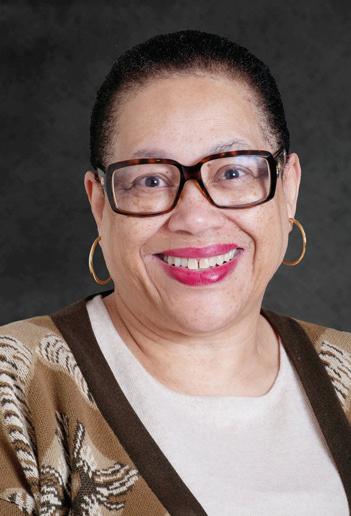
Though it provided $105 billion in aid for K-12 schools and postsecondary institutions, this earmark included monies for private schools and reserved funds for schools that re-open.
“This bill is an inadequate response to our current economic fallout and public health crisis, said Ashley Harrington, federal advocacy director and senior policy counsel with the Center for Responsible Lending.
“Congress needs to respond in a way that meets the nation’s very real and urgent needs,” added Senate Minority Leader, Sen. Charles Schumer, after the upper chamber’s roll call vote.
In the meantime, as the pandemic claims more lives every day, too many people can’t find work, especially Black and Brown workers who are bearing the brunt of this economic and public health crisis.
The Senate proposal known as the HEALS Act, emphasized cost breaks for businesses instead of consumer relief.
For instance, it would have shielded employers from liability lawsuits under federal accommodations law if related to COVID-19 risk and the lack of requested workplace accommodations. Another proposal would have temporarily doubled business deductions to 100% for business meals
“More than five months have passed since Congress approved a substantive, bipartisan bill to help families stay afloat during this pandemic. Low-income families, particularly families of color who have yet to recover from the Great Recession, have been hit the hardest by this pandemic and the economic fallout. Without a comprehensive response, renters will continue to live with anxiety under threat of eviction, student borrowers will suffocate under crushing debt, and small business owners will close their doors permanently, which will distress local economies.”
By contrast, the House version, known as the $3.4 trillion HEROES Act, passed the House with a 208-199 vote on May 15 and advocates broad and comprehensive support for consumers and small businesses to include $100 billion in new emergency rental assistance; $75 billion for



The House measure would also forbid negative credit reporting and debt collection. Another key provision would require the Federal Reserve to make low-cost, deferrable loans to small businesses, nonprofits, and public universities, as well as provide a broad assortment of new and renewed assistance targeted to essential workers, first responders, minorityowned and other small businesses, and the homeless. It also provides extended payment
“Inaction and subpar responses to this pandemic is dangerous, irresponsible, and unacceptable, Harrington said.
“Each day that passes without a comprehensive bill will cause irreparable harm to families who are living on the margins and struggling to get by.”
Charlene Crowell is a senior fellow with the Center for Responsible Lending. She can be reached at charlene.crowell@responsiblelending.org.


“TakingCareofYou”

labs and can take days to return results. By contrast, antigen tests offer results in minutes.
‘We will be blind to the pandemic’
By Rachana Pradhan, Lauren Weber and Hannah Recht Of Kaiser Health News
More than 20 states either don’t release or have incomplete data on the rapid antigen tests now considered key to containing the coronavirus, which has sickened more than 6 million Americans. The lapses leave officials and the public in the dark about the true scope of the pandemic as untold numbers of cases go uncounted.
The gap will only widen as tens of millions of antigen tests sweep the country. Federal
n “The absence of information is a very dangerous thing.”
– Janet Hamilton, executive director of the Council for State and Territorial Epidemiologists
officials are prioritizing the tests to quickly detect COVID-19’s spread over slower, but more accurate, PCR tests.
Relying on patchy data on COVID test-
ing carries enormous consequences as officials decide whether to reopen schools and businesses. Go back to normal too quickly and risk even greater outbreaks of disease. Keep people at home too long and risk an even greater economic crisis.
“The absence of information is a very dangerous thing,” said Janet Hamilton, executive director of the Council for State and Territorial Epidemiologists, which represents public health officials. “We will be blind to the pandemic. It will be happening around us
See ANTIGEN, A17
They face a ‘triple whammy’: high crime, racial tension and isolation from the pandemic
By Sylvester Brown Jr. Of The St. Louis American

There’s no certainty when COVID-19 will be contained. One thing is for certain, though – the legacy of the pandemic will have scarred a whole generation of young people. Their fragile lives have been upended. Familiar social structures – daycare, school, summer camp and outdoor activities – have ceased to exist. Kids who’ve seen their parents shed tears over the unexpected deaths of loved ones now fear their own mortality. For poor, Black kids, the dread is multiplied by pre-existing societal conditions. Not only do those in high-crime neighborhoods worry about the airborne virus, some also fear stray bullets piercing the air into their living rooms, back yards or the streets where they play. Older kids realize that some of those bullets come from police officers who seem to instinctively undervalue their Black lives. Because they’re isolated, many young people have nowhere to express their feelings, no place to vent or feel normal.
n “I get a lot of calls from high school as well as college girls expressing anxiety. They’re not able to connect with their peers and, unfortunately, there are issues in the home – domestic violence, sexual abuse that girls can’t communicate.”
Tracie BerryMcGhee, M.Ed., LPC
“Our kids are experiencing a trifecta of things,” said Miranda Jones, Interim COO, VP and head of Clinical Services at Better family Life, Inc. “It’s a triple whammy: high crime, COVID and all this racial tension that’s poisoning their communities.”
Before the pandemic, BFL, working with nearly 6,000 kids from several school districts, offered a variety of in-person programs. In early March, Jones said her organization made a “hard pivot” to virtual
Those in the city remain closed due to COVID-19
By Sandra Jordan
Of The St. Louis American
Good news for youngsters who’ve been wanting to play in the park all summer: As of Monday, September 21, St. Louis County reopened its playgrounds. They had been closed since early April.
The St. Louis County Parks Department developed procedures with approval from the St. Louis County Department of Public Health for cleaning and disinfecting park playground equipment.
The 55 playground sites of the County Parks system will be disinfected several times a week with CDC-approved cleaners. The frequency of cleaning may be increased or decreased in the future based on further guidance from county health department, the State of Missouri, or the Centers for Disease Control and Prevention.
Although the CDC recently updated its COVID-19 data to say airborne transmission
n To further help limit the risk of disease transmission, St. Louis County Parks will limit use of playground equipment to daylight hours only (8 a.m. to dusk, daily).
of the coronavirus that causes COVID-19 is possible (then backtracked and abruptly took it down on Sept. 21), Spring Schmidt, acting co-director of the St. Louis County Department of Public Health, told The American it does not change the County’s stance on youth outdoor activity.
“It’s not going to change our recommendations for playgrounds because it’s out-
See PLAYGROUNDS, A17


By Chris King Of The St. Louis American
It’s that time of year when public health officials all say the same thing: Get your flu shot. But it’s that time of year in 2020, which means get your flu shot but don’t get COVID19.
“As response efforts for COVID-19 continue it is critical to get a flu vaccine, not only to protect yourself and
Continued from A16 programming. The agency also calls some 300 youth per week to check on their well-being. Those calls, Jones said, indicated a disturbing trend.
“We found a lot of kids were home alone,” she said. According to a study from the Center for Economic and Policy Research, Black workers in the U.S. are much more likely to work front-line jobs considered essential during the new coronavirus pandemic. Many are the sole breadwinners for their families and can’t afford to take time off from work or provide childcare. This, Jones said, means that an overwhelming number of Black kids, with underdeveloped coping mechanisms, are isolated at home and left to deal with traumatic health and societal issues.
others but to help reduce the strain on hospital systems and healthcare workers responding to the pandemic, says Dr. Fredrick Echols, acting director of health for the City of St. Louis. The flu vaccine will not provide protection for COVID-19. No vaccine currently exists for COVID-19. Most individuals who become ill with the flu recover without serious complica-
tions, but some who contract the flu experience serious illnesses, hospitalization, and even die, Echols said. The best way to help protect yourself, your family, and the community from the flu is to get your annual flu vaccination.
Everyone, older than 6 months of age, with some limited exceptions, should receive an annual flu vaccine, Echols said. Your healthcare
provider can tell you if you fit into one of the limited exceptions and would be at risk for a serious adverse reaction from the flu vaccine.
Parents and guardians are reminded that children 6 months to 8 years of age who have not received two doses of flu vaccine before July 1 will require two doses of the vaccine (one dose given during two appointments at least four weeks apart).
Echols said it’s important that you consult your healthcare provider about getting the flu vaccine if you have an allergy to eggs or any of the other ingredients in the vaccine or if you have had Guillain-Barré Syndrome. He also advises individuals to make sure to inform the person administering their vaccination if they are not feeling well and let them know what symptoms are being experienced. The City of St. Louis Department of Health will partner with some Federally Qualified Health Centers to increase access points for City residents to get the flu vaccine. To learn more about this year’s vaccine and locations in the City of St. Louis to get a vaccine, visit https://tinyurl.com/ STL-flu.

and anxiety among the young people she serves.
Candace Cox – a licensed clinical social worker and founder of KHAOS, a nonprofit that helps young people address traumatic stress – said she’s also noticed a heightened sense of depression
“We’re not seeing, touching, or hearing these kids who are left to sort through their own feelings without really realizing the deep depression they’re in,” Jones said. The rate of suicides among Black youth over the age of 13 has increased faster than any other racial or ethnic group. This was the findings of “Ring the Alarm: The Crisis of Black Youth Suicide in America,” a report commissioned by the Black Congressional Congress. Although the report was released in late 2019, its findings show why an endangered demographic would be further harmed during this health crisis.
Continued from A16
and we will have no data.”
The states that don’t report antigen test results or don’t count antigen positives as COVID cases are California, Colorado, Georgia, Illinois, Maryland, Minnesota, Missouri, Montana, New Hampshire, New Jersey, North Carolina, North Dakota, Ohio, Pennsylvania, South Dakota, Tennessee, Texas, Vermont, Virginia, Washington, Wisconsin and Wyoming, as well as the District of Columbia.
So far, most of the COVID tests given in the U.S. have been PCR tests, which are processed in medical labs and can take days to return results. By contrast, antigen tests offer results in minutes outside of labs, appealing to everyone from medical clinics to sports teams and universities.
Each relies on swabs to test patients. But unlike using tests run through labs, many providers who would use antigen tests don’t have an easy way to send data electronically to public health authorities.
Since July, though, the federal government has pushed roughly 5 million antigen tests into nearly 14,000 nursing homes to contain outbreaks among staff members and residents.
The Department of Health and Human Services also awarded a $760 million contract to buy 150 million rapid antigen tests from Abbott, the Illinois-based diagnostics behemoth. It planned to send 750,000 of those to nursing homes starting the week of September 14, Brett Giroir, the HHS official heading the Trump administration’s testing efforts, told industry executives on September 8. Federal officials have not elaborated on how many tests will be sent elsewhere but have suggested many will go
n “We’re not seeing, touching, or hearing these kids who are left to sort through their own feelings without really realizing the deep depression they’re in.”
– Miranda Jones, Better family Life
to governors to distribute as schools reopen.
The rush of antigen tests, however, won’t be particularly useful to officials if the results are not publicly and uniformly reported.
KHN surveyed 50 states and the District of Columbia on their collection of antigen test results and what is reported publicly. Fortyeight responded between September 3 and 10, revealing significant variation over whether people who test positive for COVID-19 with an antigen test are counted as cases and whether states even publicly report antigen data in their testing numbers:
• 21 states and D.C. do not report all antigen test results.
• 15 states and D.C. do not count positive results from antigen tests as COVID cases.
• Two states do not require antigen test providers to report results, and five others require only positive results to be reported.
• Nearly half of states believe their antigen test results are underreported. Consequently, many state counts of infected people could be artificially low. For instance, the lack of reporting could imply infection rates are declining because the virus isn’t spreading as widely — when really more antigen tests are being used and not counted, public health officials and experts say.
“It’s going to look like your cases are coming down when they’re not,” said Jeffrey Morris, a biostatistics professor at the University of Pennsylvania.
HHS recognizes that antigen tests are underreported but maintained that officials are not missing the full scale of the pandemic, an agency spokesperson said.
“There is sufficient testing to achieve all objectives outlined in the testing strategy, including identifying newly emergent outbreaks, supporting public health isolation and contact tracing, protect-
“There’s a level of hopelessness, helplessness and lack of control,” Cox said. “In many cases, you have alcoholism and drug abuse raging with the adults within the household. Children are a product of those environments. Many don’t see a way out because there are no signs that this is going to get any better.”
Isolation at home doesn’t mean kids are insulated from the outside world. Through social media, many are overexposed to calamities that strike those who look like them disproportionately. Police brutality is one of those harsh realities.
“There are kids
ing the vulnerable, supporting safe reopening of schools and businesses, and enabling state testing plans,” spokesperson Mia Heck said.
Part of the problem on antigen test reporting stems from what counts as a COVID case. Guidance from the Centers for Disease Control and Prevention defines a “confirmed” COVID case as one that is determined from a PCR test. Positive results from antigen tests are considered “probable” cases because the tests can be less accurate.
Months after the first COVID antigen test received emergency authorization from the Food and Drug Administration, the CDC revised its COVID case definition in early August to allow a positive antigen test to count as a probable case without assessing whether a person had clinical symptoms or was in close contact with a confirmed infected person.
That prompted many states — including Arkansas, starting September 2 — to adjust how they report cases.
“It’s easy for people to think since we use the word ‘probable’ that maybe it’s a case, maybe it isn’t. But that’s not how we think of it,” said Dr. Jennifer Dillaha, state epidemiologist for the Arkansas Department of Health. “It is a real case in the same way that a PCR is a real case.”
Dr. Karen Landers, an assistant state health officer for the Alabama Department of Public Health, said her biggest concern was the potential undercounting of antigen test results as they continue to grow in popularity. While the state has been trying to work with each urgent care or other medical provider, some struggle to submit the results.
“We can’t afford to miss a case,” she said.
The CARES Act, which Congress passed in March, requires a broad range of health care providers to
I know who, when something happens, are scared to call the police,” Cox said. “They wonder if they or their Black siblings will be killed because they needed help and called the police. That’s definitely trauma.” Children are on autopilot, she said. “They’ve learned how to decompartmentalize their emotions, disconnect from the world around them,” Cox said. “They are trying to sex it away, drink it away, smoke it away, or they’re simply waking up and going back to sleep.”
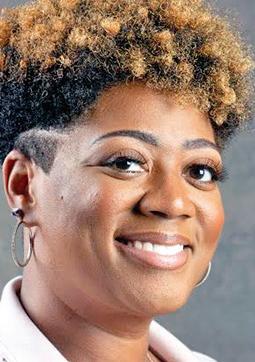
n “Many don’t see a way out because there are no signs that this going to get any better.”
– Candace Cox, licensed clinical social worker
Traci BerryMcGhee, a licensed therapist and founder of the Nia Group STL (ImaniTherapy/ SistaKeeper), a wellness center designed exclusively for women and teen girls, isn’t surprised that suicide rates are
report any COVID test result to state or local health departments. Nonetheless, two states — Montana and New Jersey — said they weren’t requiring antigen test providers to report results, positive or negative. Colorado, Maine, Mississippi, New Hampshire and Wyoming require only positive results to be reported, which can distort the positivity rate.
Sara Mendez, the support services manager for the Brazos County Health Department in Texas, said the department saw an increase of antigen tests being administered as Texas A&M University students returned. Even though the state health department was not including positive COVID cases from antigen tests in its public reports, the local health department felt obligated to do so.
“A lot of the college students will just go and get those done as opposed to the PCR tests,” Mendez said, “so we felt like we were missing out.”
Indiana University undertook a massive antigen testing operation for students living on campus in August, administering 14,870 antigen tests across four campuses through drive-throughs, according to Graham McKeen, an assistant university director for public health. The test results were delivered while students waited in cars for about 30 minutes, with 159 coming back positive. Each night, a university staff member would manually download the spreadsheet off each of the test machines and securely email it to the state health department.
But Indiana began reporting antigen testing only on August 24, adding over 16,000 antigen tests into its public dashboard that day and saying in a news release that it plans to retroactively add in earlier antigen testing figures. McKeen said that, even though the state is now reporting some antigen data,
rising among Black teens, especially girls.
“Girls are natural connectors. We like to touch, feel, and talk,” Berry-McGhee said. “I get a lot of calls from high school as well as college girls expressing anxiety. They’re not able to connect with their peers and, unfortunately, there are issues in the home – domestic violence, sexual abuse that girls can’t communicate. So, the tension is higher, and many are just shutting down.” Suicides are increasing she said, because young people, deluged with negative information, mostly from social media, don’t know how to process it.
“If you don’t know how to process, you just want it to go away,” Berry-McGhee said.
“So, the first thing (kids) say
tests are still missed under the cumbersome reporting system. The state said some of the data is being sent by fax.
“It doesn’t give the community a good handle on the infection in the community,” McKeen said.
Heck, the HHS spokesperson, said that federal agencies are working to improve the reporting of results and that problems were likely to be eased in the future, citing that Abbott’s antigen test includes an electronic reader for automated reporting. By October, 48 million of those tests will be in circulation each month, she said.
Still, to date, “what this is exposing is the antiquated systems that public health agencies have had for years,” said Scott Becker, executive director of the Association of Public Health Laboratories. “So much of the data we’ve gotten is incomplete.”
That data barrier is playing out in nursing homes as well.
Victoria Crenshaw is holding off on using antigen tests to screen residents and staff members at Westminster Canterbury on Chesapeake Bay nursing home in Virginia Beach, Virginia. As senior director, she sees one major holdup: No technology platform is in place to easily send results to health officials. Instead, she and colleagues would need to resort to taping pieces of paper together to deliver details of who was tested, and hope local officials would accept it. The Trump administration is pushing for nursing homes to use the tests for required screenings at least once a month and as often as twice a week. Under new federal regulations, nursing homes that don’t comply with regular testing and reporting requirements are subject to citations or fines.
“We have no technology today to submit this information,” Crenshaw said, “which leaves us in a vulnerable position.”
is ‘I don’t want to be here’ or they may act out.”
Jones, Cox and BerryMcGhee have all focused their programs on finding ways to help young people communicate their feelings privately or in group sessions. Their online classes include dance, meditation, yoga, “wellness circles,” journaling and other activities aimed at addressing young people’s physical and mental health needs.
It’s a documented fact that African Americans are hesitant to openly admit to experiencing mental health problems. It’s a paradox that continues with today’s Black youth. Therefore, Cox recommends that parents, schools, and organizations “normalize” mental health care for Black youth.
“We have to start feeding it to our kids continuously. Just as we tell them to wash their faces and brush their teeth, we have to teach them to prepare their minds for what they’re going through every day.” Sylvester Brown Jr. is The St. Louis American’s inaugural Deaconess Fellow.
Continued from A16
doors – there’s a good amount of ventilation,” Schmidt said. “We’ve been watching the science even before the CDC changed their recommendations.”
During contract tracing, Schmidt said they have been talking about the ventilation in the room, air flow; and thinking a little bit differently about what is happening outside, versus what is happening inside.
“And it was already why we’ve been more cautious on some of our indoor activities – in bars or restaurants or fitness centers or schools even, where we knew there were going to be lots of people in closed quarters and it might be poor ventilation,” Schmidt said. “ So, we’ve actually been using those for a while because we’ve been watching the studies. So, I’m glad the CDC updated. I wish they had done it sooner.”
Although the playgrounds have reopened, some COVID19 precautions remain. Signage will be placed at each playground site to remind visitors to stay home if sick, maintain 6 feet of distance from others and to wash or sanitize hands regularly. Masks are required, except on children while they are playing. Visitors are also encouraged to limit usage in order to ensure social distancing.
To further help limit the risk of disease transmission, St. Louis County Parks will limit use of playground equipment to daylight hours only (8 a.m. to dusk, daily).
At the St. Louis County COVID-19 dashboard, stlcorona.com, coronavirus cases are lowest in the age 0 to 9 age bracket. As of September 18, the County reports 22,556 positive cases of COVID-19, with the highest numbers among young adults ages 20 to 29 and oldest adults ages 80 to 99. For more information, visit stlcorona.com.
Planting the Seeds for Success!
Nutrition Challenge:
One way to make sure you’re getting the nutrition your body needs is to have a goal of (at least) 5 servings of fresh fruits and vegetables — every single day! Each serving is only about ½ cup, so it’s easier than you think! Here are a few tips.
Calories are a way to measure the amount of “energy” gained from eating something. So if you eat a medium apple (about 100 calories), that’ll provide the energy for you to do a simple physical task such as walk around the block. Calories aren’t the bad guys; extra weight happens

> Start off your day with a piece of fruit!
> Try new fruits and vegetables each week.
> Why not add fruits or vegetables to your fall baking? You can boil and puree many different kinds to add to cakes, breads, etc.
> What are some other ways to add fruits/ vegetables to your diet?
Learning Standards:
when we consume (eat) more of them than we need. That’s why it’s important to stay physical and burn those calories throughout the day. Here are some ideas, and the calories an average 125-pound person will burn in 30 minutes (depending on speed).
One of the best ways to protect yourself from getting sick is to wash your hands. Think about surfaces that are touched by many people: door handles, computer keys, telephones, stair railings and sports equipment. If the person using it before you is sick and then you touch it, you could catch their illness from the germs they leave behind. So practice washing your hands multiple times a day, especially before eating, to stay healthier!
Learning Standards: HPE 2, HPE 3, NH 1, NH 7
Ingredients:
> Walking = 120-150
> Running = 180-300
> Biking = 240-300
> Mowing = 135
> Watching TV = 23
Visit http://www.calorieking. com/foods for an excellent guide to the calories in the foods you eat.
Learning
Low-Fat or Air-Popped Popcorn
Flavorings: Taco Seasoning, Parmesan Cheese, Hot Pepper Flakes, Garlic Powder, Italian Seasoning, etc.
Directions: Prepare popcorn. Sprinkle your favorite flavoring on top and shake, shake, shake! Experiment with different combinations to create a delicious snack!
Chester L. Moore, Jr., CPhT
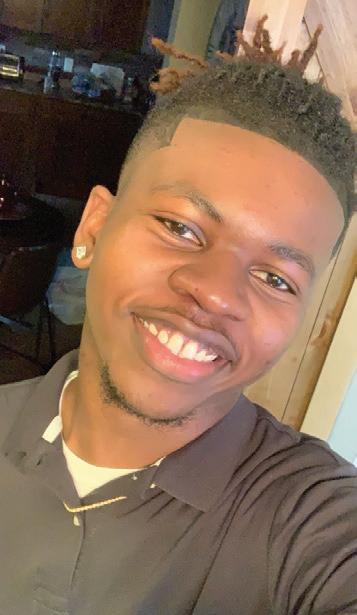
Where do you work? I am a senior pharmacy technician at Walgreens.
Where did you go to school? I graduated from Belleville West High School and I am currently in college working towards Pharmacy School.
What does a pharmacy technician do? I am one of the people in the pharmacy who counts the medicine. I make sure that the customer gets the correct medication. I call doctors’ offices to let them know that their patients are out of medicine, as well.
Why did you choose this career? I actually chose this career by chance. I work at Walgreens and I started off at the front of the store. One day I asked my boss if there were any openings in the pharmacy, and here we are today.

What is your favorite part of the job you
My favorite part of my job is interacting with the customers. It makes me happy that I play a part in keeping them healthy and
Learning Standards: HPE6, NH3
“Questions or comments? Contact Cathy Sewell csewell@stlamerican.com or 618-910-9551


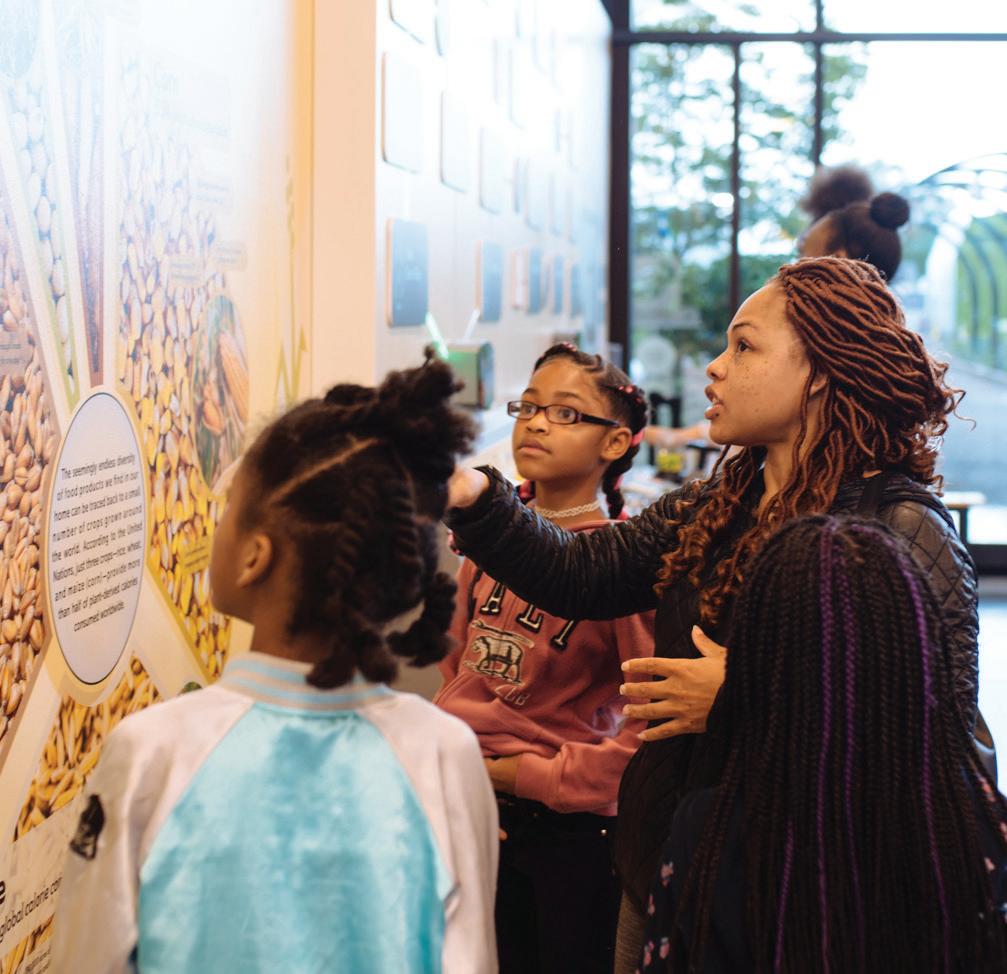






The St. Louis American’s award winning NIE program provides newspapers and resources to more than 8,000 teachers and students each week throughout the school year, at no charge.
Questions or comments? Contact Cathy Sewell csewell@stlamerican.com or 618-910-9551

Teacher Rhonda Stovall uses the e-edition STEM page while she works with magnets showing her fourth grade students lessons about balanced and unbalanced forces.
Photo by Kaya Wilson


Your brain is pretty small and it weighs approximately 3 pounds. Scientists compare the texture of the brain to the texture of tofu. Your brain has 5 main parts: cerebrum, cerebellum, brain stem, pituitary gland, and the hypothalamus. The cerebrum makes up 85% of the brain. It controls thinking, and the moving muscles. It is divided into two halves. The left of the brain controls the movements on the right side of your body and vice versa. The cerebellum makes up 1/8 of your brain. It controls balance, movement, and coordination. The brain stem is beneath the cerebrum and in front of the cerebellum. It connects to the spinal cord and controls all major life functions, such as breathing air, circulating blood,

and digesting food. The pituitary gland is about the size of a pea. It controls growth, regulates metabolism, and releases hormones. The hypothalamus controls temperature. It tells your body to shiver when you are cold to generate heat; it tells your body to sweat when you are hot to release heat.
For information on creating models of the brain, visit: http://faculty. washington.edu/chudler/chmodel.html.
Learning Standards: I can read nonfiction text for main idea and supporting details. I can make text-to-text and text-to-self connections.
Are you left handed or right handed? Did you know that your brain has a right or left side dominance, too? In this experiment, you will observe the brain dominance in your volunteers.
Materials Needed:
• 10 Volunteers • Paper • Pencil • Scissors
• Ball • Stairs • Coin • Tube • Shell
Process:
q In your science notebook, create the following chart: w Ask each volunteer to complete the tasks on the chart and record the results on the paper—did they use their right hand or left hand, their right foot or left foot, their right eye or left eye, their right ear or left ear?
e Analyze the results — Did your right hand participants use their right side for all the tasks? Did your left hand participants use their left side for all the tasks?

Keep your skills sharp and test your brain power with these math problems.
z Ariel’s father gave her $125. Ariel bought 5 books, each of which cost $12.50. How much money does Ariel have left? ______
x For breakfast, Eli bought a bagel for $2.60 and a glass of orange juice for $1.25. At lunch, Eli spent $6.15 on a sandwich with chips and $1.50 on a carton of milk. How much more money did

Learning Standards: I can follow a sequential process to complete an experiment. I can draw conclusions and analyze results.
Eli spend on lunch than on breakfast? ______ How much money did he spend in all? ______
c A group of 9 children and 5 adults are going to a movie. Child tickets cost $6 each, and adult tickets cost $9 each. How much will the movie tickets cost in all? ______ If each person spends $5 at the concession stand, how much money did they spend on food and drinks? ______
v Layla has 19 red beads, and she has 2 fewer yellow beads than red beads. Lyla also has 7 more green beads than red beads. How many beads does Layla have in all?
Learning Standards: I can add, subtract, multiply, and divide to solve a problem.

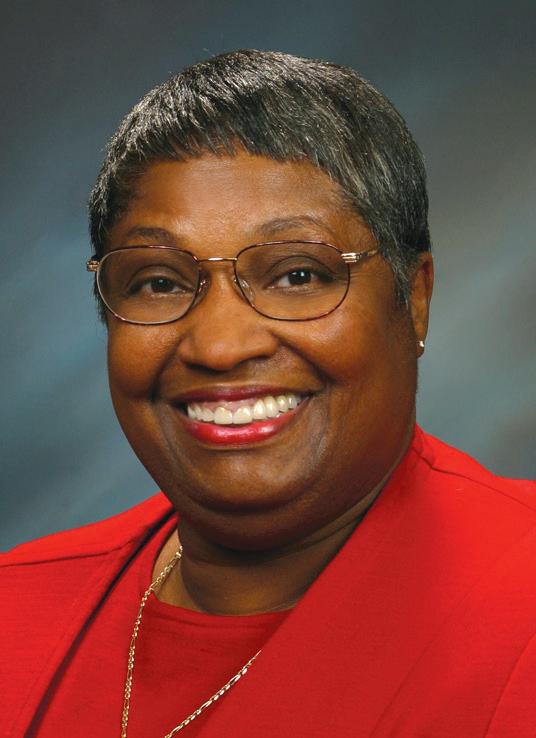
Alexa Canady was born on November 7, 1950, in Michigan. Her father was a dentist and her mother was a teacher. They encouraged her to work hard and to take risks. She graduated from high school with honors and went to the University of Michigan to earn her bachelor’s degree in zoology. However, while attending a summer program for minority students, Canady became interested in studying medicine. So, after she earned her zoology degree, she enrolled in the University of Michigan’s medical school. She specialized in neurosurgery, which is brain surgery. She was an intern at Yale-New Haven Hospital. In 1975, she graduated cum laude from medical school.
One year later, she transferred to the University of Minnesota, where she was the first female African American in the U.S. to become a neurosurgery resident. In 1981, she became the first female African American to become a neurosurgeon. She completed surgeries to treat both brain injuries and brain diseases. Canady completed training for pediatric neurosurgery at the Children’s Hospital of Philadelphia. Next, she worked in pediatric neurosurgery at the Henry Ford Hospital in Detroit. She ended her career at the Children’s Hospital of Michigan.
In 1984, she became the first female African American certified by the American Board of Neurological Surgery. Three years later, she became the director of neurosurgery at Children’s Hospital. Canady continued to conduct research and she was a professor of neurosurgery at Wayne State University. Canady retired in 2001 and moved to Florida. When she learned there was not a local pediatric neurosurgeon, she began working part time at the Pensacola Sacred Heart Hospital. Canady was inducted into the Michigan Women’s Hall of Fame in 1989 and she also received the American Medical Women’s Association President’s Award in 1993.
Learning Standards: I can read a biography about a person who has contributed to the fields of science, technology, engineering, and math.


Enjoy these activities that help you get to know your St. Louis American newspaper.
Activities — Perspective: Imagine that you are the main character in a news story. After reading the published story, give your version.
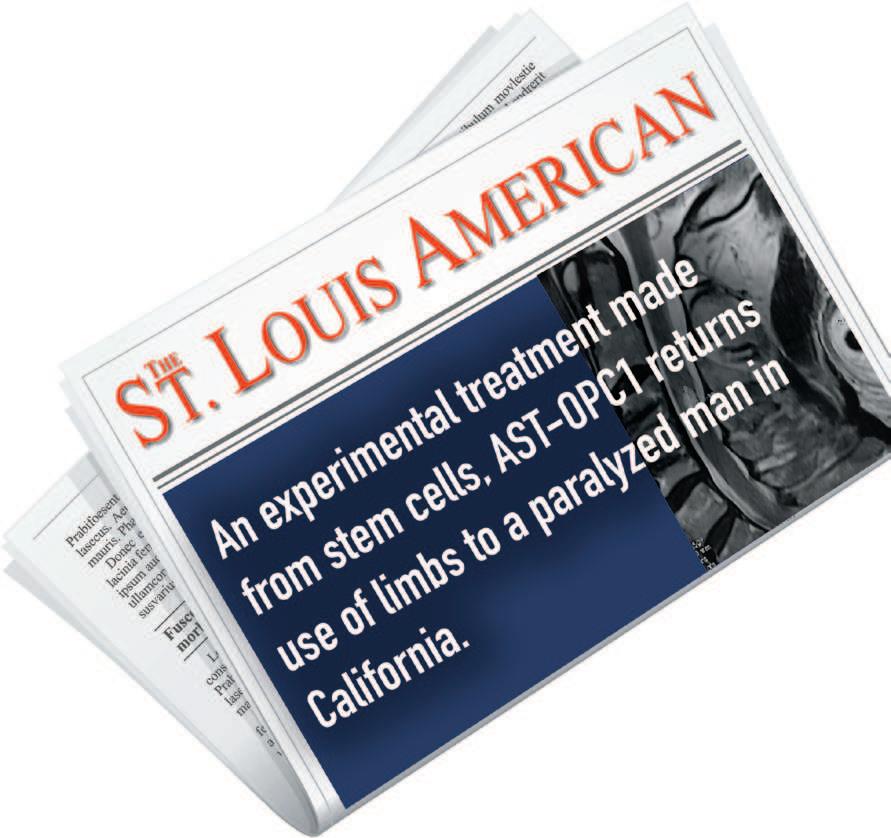
Creating an Advertisement: Look through the classified ads to identify the types of things that are sold. Read a few ads and list important facts included in an ad (item description, condition, price, etc.). Draw a picture of a toy that you have. Next, pretend you are going to sell it and write a classified ad below the picture.
Learning Standards: I can use the newspaper to locate information. I can write for a specific purpose and audience. I can make text-to-self connections.














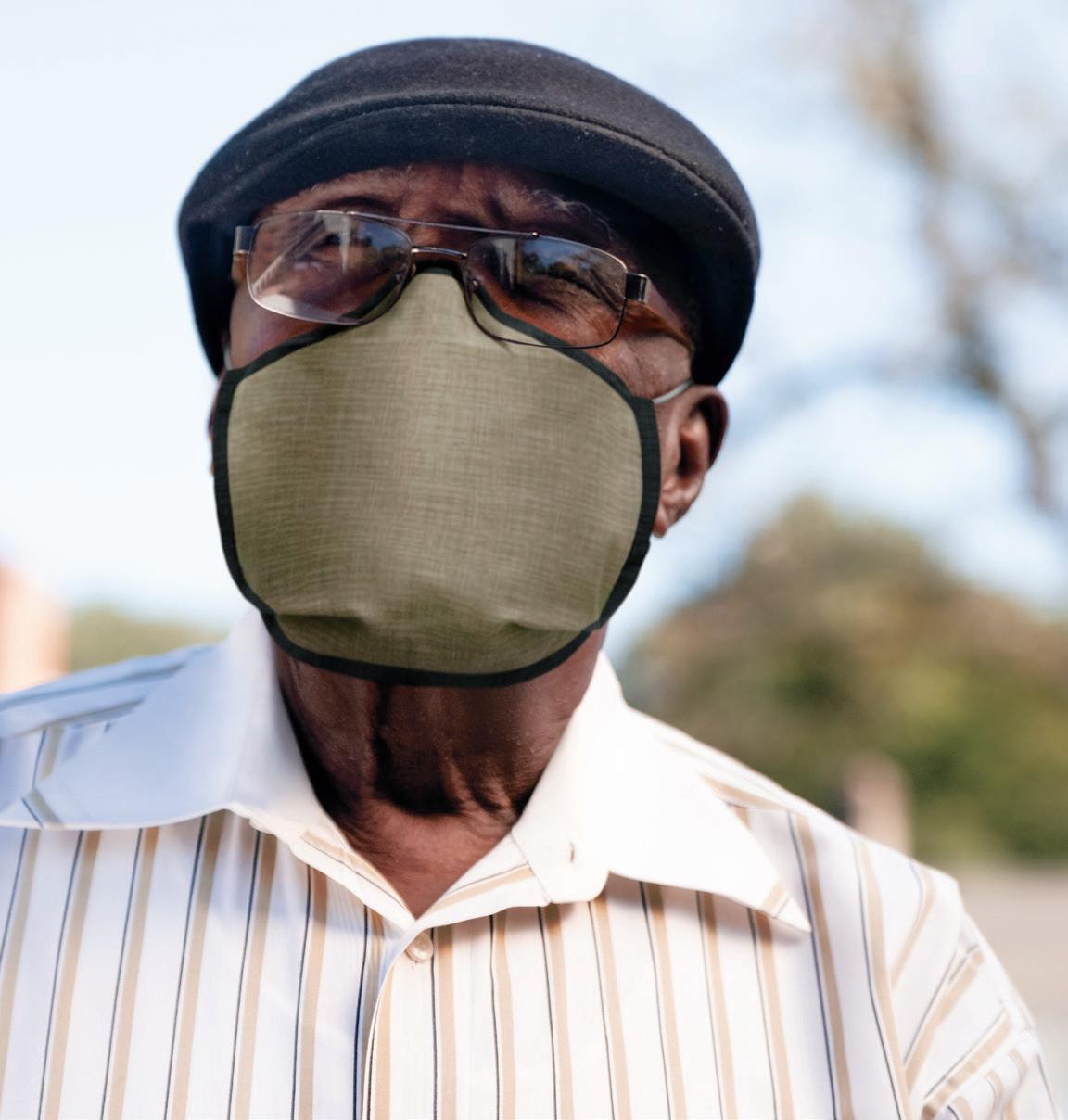






‘A
By Chris King Of The St. Louis American
Those who miss the voice of Barack Obama and wish they were hearing it all of the time rather than the voice of the president who succeeded him in the White House are about to get more – much more, 768 pages more – of his eloquent voice. But they will have to wait until after the November 3 election to hear or read that voice. On Tuesday, November 17, readers will be able to get their hands on A Promised Land, the first volume of Obama’s presidential memoirs.
“In A Promised Land, I’ve tried to provide an honest accounting of my presidential campaign
In “A Promised Lane,” Barack Obama is frank about the forces that opposed him at home and abroad, open about how living in the White House affected his wife and daughters, and unafraid to reveal self-doubt and disappointment.
and my time in office: the key events and people who shaped it; my take on what I got right and the mistakes I made; and the political, economic, and cultural forces that my team and I had to confront then—and that as a nation we are grappling with still,” Obama said in a release.
“In the book, I’ve also tried to give readers a sense of the personal journey that Michelle and I went through during those years, with all the incredible highs and lows. And finally, at a time when America is going through such enormous upheaval, the book offers some of my broader thoughts on how we can heal the divisions in our country going forward and make our democracy work for everybody—a task that won’t depend on any single president, but on all of us
Malik Ahmed publishes memoir, ‘From the Projects to the Pyramids’
By Sylvester Brown Jr.
Of The St. Louis American
Founded in 1983, Better Family Life is a community development organization initially focused on the promotion of art and cultural events such as the annual Kwanzaa expo, Black Family Week, Black Dance USA, and Unity Ball. Today, the multi-million-dollar Better Family Life Cultural, Educational and Business Center is headquartered in the refurbished Ralph Waldo Emerson Elementary School at 5415 Page Blvd. BFL now provides services that include crime prevention, neigh-
borhood beautification, workforce, affordable housing, employment, family health and asset development.

Later this year, the founder and CEO of BFL, Malik Ahmed, plans to retire. His parting gift to the world is his new book, From the Projects to the Pyramids: In Search of a Better Family Life. In the style of a griot, Ahmed shares a fascinating personal journey soulfully crafted to inspire anyone, especially young people, in search of a meaningful and purpose-driven life.
Like Claude Brown’s 1965 autobiographical novel Manchild in the Promised , Ahmed delivers a colorful depiction of life in New York’s Harlem neighborhood. Born in 1951, Ahmed’s story picks up where Brown’s novel after the 1940s and 1950s
See Life, B2
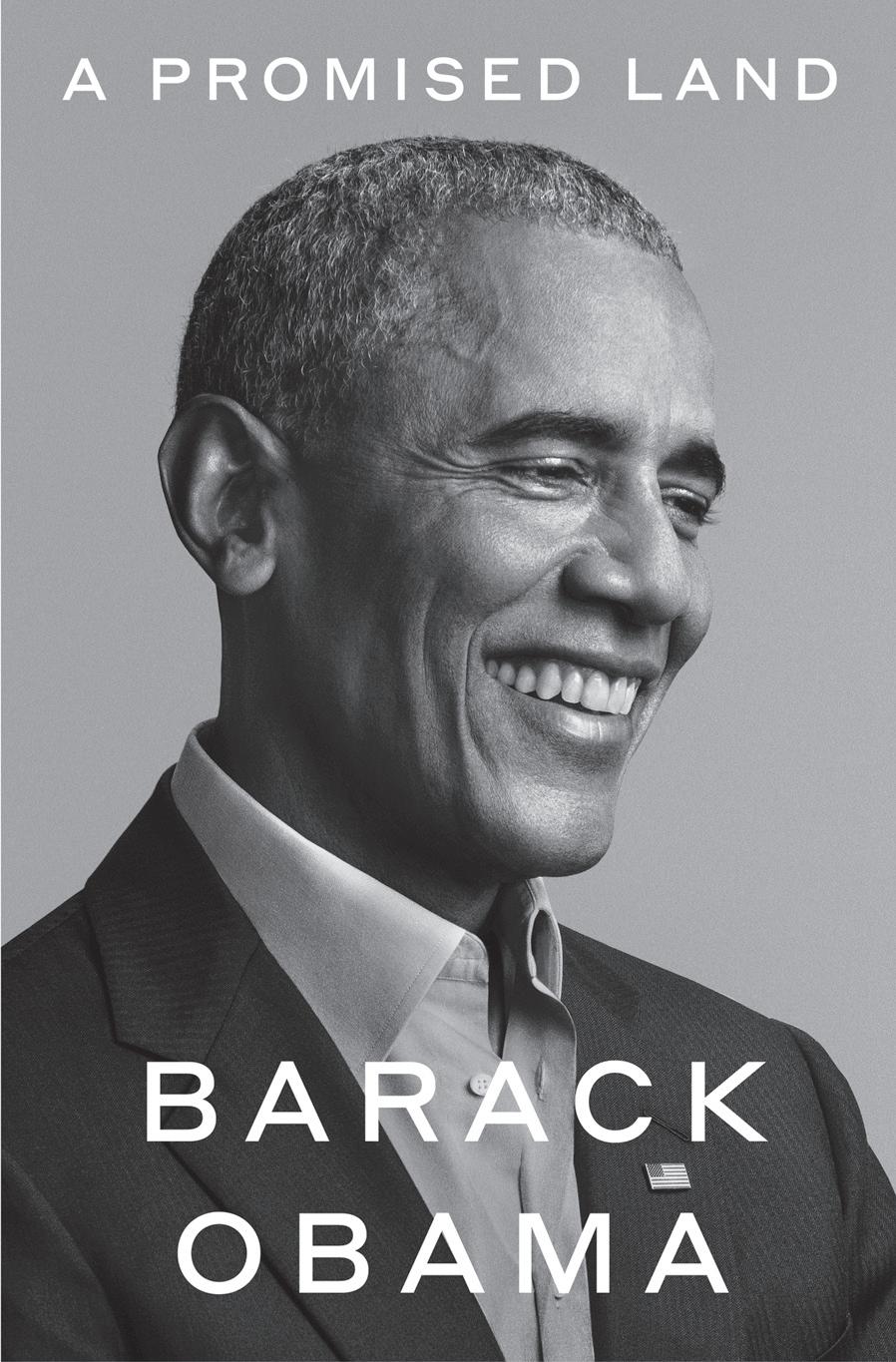
as engaged citizens.”
The American is waiting for its review copy of the book. In a release, the publisher noted that Obama “offers a unique and thoughtful exploration of both the awesome reach and the limits of presidential power, as well as singular insights into the dynamics of U.S. partisan politics and international diplomacy. Obama brings readers inside the Oval Office and the White House Situation Room, and to Moscow, Cairo, Beijing, and points beyond.
“We are privy to his thoughts as he assembles his Cabinet, wrestles with a global financial crisis, takes the measure of Vladimir Putin, over-


‘Monty The Turtle’ survives act of vandalism on ESL Higher Education Campus
By Patricia Merritt
For The St. Louis American
Southern Illinois University Edwardsville 2009 Alumni Hall of Famer and celebrated artist Edna Patterson-Petty re-introduced her “baby” after completing restoration work on “Monty, The Turtle.”
Patterson-Petty unveiled her work of art at the East St. Louis Higher Education Campus on September 4. For two months, the artist loving-
‘I did something in my time, on my stage’
Gwen Berry was punished for raising her fist on the Olympic podium
By Evie Hemphill Of St. Louis Public Radio | LISTEN
As many athletes have returned to fields, courts and arenas during the coronavirus pandemic, so have sports protests. More and more professional athletes are kneeling during the national anthem, wearing Black Lives Matter messages on their game-time attire and speaking out publicly about police brutality and systemic racism. And a majority of Americans now consider those actions to be appropriate.

“But there’s at least one place where protesting is still not allowed,” an op-ed piece in the New York Times by St. Louis-area native Gwen Berry noted earlier this month: an Olympic podium. Berry, who was born in East St. Louis and grew up in Ferguson, knows the truth of that on a level that only a few people in Olympic history do. After throwing 74 meters to clinch the gold medal at last summer’s Pan American Games, a split-second decision she made while standing on the podium had a dramatic effect on her future.
“I remember the medal was so heavy and so real,” Berry recalled in the Times video. “I was excited. I was nervous. In that moment when the national anthem was playing, I knew that that national anthem did not speak for people like me in America. The freedom, liberty and justice
See Berry, B3


Obama’s memoirs include his narrative of his thrilling, transformative growth as a politician, including his time as an Illinois state senator, as he was here when he was interviewed by James Ingram, St. Louis American columnist, in East St. Louis on September 3, 2004, a little over a month after his speech at the Democratic National Convention in Boston put him on the national political map and radar.
Continued from B1
ended. The “search” for a better family that Ahmed suggests in his subtitle is more like noted observations of his natural surroundings. In Harlem, for example, there were a plethora of adults like Ahmed’s parents, Tony and Clara Thomas, who taught their kids what he describes in the book as the “three essentials in life”: love of family, search for meaning and the desire to positively impact the lives of Black people.
Sociologists tend to define concentrated areas of Black and poor by levels of crime, poverty or unemployment. By homing in on one common denominator in Central Harlem’s neighborhoods, Ahmed offers a different perspective. Be it the working-class residents of the Abraham Lincoln Housing Projects (where the Thomas family lived) or the middle-class tenants of the Lennox Terrace or Riverton Apartments, strong Black families made life bearable, enjoyable and adventurous.
social and spiritual worldview.
As a member of the Nation of Islam and friend of Malcolm X, Omar exposed the Thomas family to vistas of self-discovery, self-love, the Civil Rights Movement and traditional African culture and heritage.
In the tradition of The Autobiography of Malcolm X, Ahmed uses his unique observations to take the reader back to a time when Black love and Black pride exploded within the renaissance that was Harlem circa 1950s and ‘60s. It was a time and place where icons like Rev. Adam Clayton Powell, Jr., Ella Baker, Ruth Brown,
n “I was lucky to be born in the midst of political, social and, most important, cultural agitation.”
– Malik Ahmed
Ahmed’s title, “From the Projects to the Pyramids,” was a story of personal evolution and enlightenment. Ahmed corrected me, explaining the title’s philosophical and spiritual relevance.
“The pyramid is the highest point of any civilization, just the fact that it has the unique history that it does. It’s the oldest monument in the world, and it’s still standing. It’s buried with treasures on top of treasures,” Ahmed said.
“It’s the same thing every Black child has within their capacity. How did we go from being enslaved to creating a Frederick Douglas, a Malcolm X, a Barack Obama or a Jay-Z, who was slinging drugs and now is almost a billionaire because of his creative genius? That’s the range Black people have. We have the capacity to go to the very top of any endeavor that we choose and put our time, energy and focus into.”
comes seemingly insurmountable odds to secure passage of the Affordable Care Act, clashes with generals about U.S. strategy in Afghanistan, tackles Wall Street reform, responds to the devastating Deepwater Horizon blowout, and authorizes Operation Neptune’s Spear, which leads to the death of Osama bin Laden.
“Obama is candid about the balancing act of running for office as a Black American, bearing the expectations of a generation buoyed by messages of ‘hope and change,’ and
meeting the moral challenges of high-stakes decision-making. He is frank about the forces that opposed him at home and abroad, open about how living in the White House affected his wife and daughters, and unafraid to reveal self-doubt and disappointment. Yet he never wavers from his belief that inside the great, ongoing American experiment, progress is always possible.”’
Obama is the author of two previous New York Times bestselling books, Dreams from My Father and The Audacity of Hope, and the recipient of the 2009 Nobel Peace Prize.
“Along with being a fun and informative read,” Obama said in the release, “I hope more than anything that the book

inspires young people across the country—and around the globe—to take up the baton, lift up their voices, and play their part in remaking the world for the better.”
A Promised Land will be published by Crown (an imprint of the Random House Publishing Group, a division of Penguin Random House). It will be issued simultaneously in 25 languages. In the United States and Canada, it will be published in hardcover and digital formats by. An unabridged audio edition of the book – read by the author – will be simultaneously released in digital and physical formats by Penguin Random House Audio. For more information, visit obamabook.com.
This is the ideal job for a passionate advocate for sexual and reproductive health care and rights who is deeply motivated to help donors reach their philanthropic goals while advancing the mission and vision of PPSLRSWMO.
Planned Parenthood of the St. Louis Region and Southwest Missouri (PPSLRSWMO) is the area’s leading provider of sexual and reproductive health services, providing high-quality care in the St. Louis area since 1932.
Planned Parenthood also has several positions available in its Patient Services department, including: Health Center Assistant Medical Assistant Medical Appointment Scheduler
These positions work together with other clinical staff to provide highquality health services and ensure patients have a positive experience at Planned Parenthood. To apply for any of these positions, visit https://jobs.lever.co/ppslrswmo or visit www.plannedparenthood.org/stlouis and click Get Involved
The author wrote of a blessing of sorts for kids like him who wallowed “in delusions of beloved inner-city neighborhoods” without knowing how the larger society diagnosed, despised or oppressed them. Not knowing gave the Thomas Family the ability to create their own dynamics.
One powerful example was when Ahmed’s oldest brother, Omar, returned from the United States Air Force in 1958. Omar was stationed in Morocco, in North Africa. Armed with that experience and his acceptance of Islam, Omar impacted the family’s political,
Langston Hughes, James Baldwin, Cab Calloway, Lionel Hampton and Duke Ellington casually strode Harlem streets while engaging neighborhood adults and youth in conversations.
“I was lucky to be born in the midst of political, social and, most important, cultural agitation,” Ahmed told me.
“What made Harlem so unique was this new alternative thinking in the late ‘50s and ‘60s, where there was this burst of Black power, love and energy. We saw Black people dismantling years of segregation, years of overt racism, self-hatred, and challenging the police to treat us like human beings.”
At first glance, I thought
Ahmed’s book provides the skeleton, flesh, and DNA of the Better Family Life we know today. From the author’s accidental entrée into activism as a pre-teenager in 1962 to his three-year stint in the West African country of Mali as a Peace Corps volunteer, to his journey to the Egyptian pyramids, readers will come to clearly identify the multitudinous layers that led to today’s multi-million-dollar nonprofit corporation that serves more than 50,000 people annually.
“The whole thing about Better Family Life is that it’s universal,” Ahmed said. “It’s about our humanity and articulating a new vision of that. My thinking is that the whole world needs a better family life.”
Sylvester Brown Jr. is The St. Louis American’s inaugural Deaconess Fellow.
Continued from B1
ly and tediously worked to repair “Monty” after he was vandalized. The turtle’s head was damaged, and it sustained a large gash on his right side, with much of the inside materials spilling out.
attack, I didn’t know if I could do it again,” said PattersonPetty. “It was like an assault on me. When I did start working on it, I was nervous and wondered if I could restore it.”
Patterson-Petty’s restoration work was done under a tent, and when it came time for “Monty” to be presented, the artist was anxious.
“It’s like giving birth and presenting your ‘baby’ to the world.”
“I won’t say it is a new turtle,” shared Patterson-Petty. “It’s like going to rehabilitation. I hope ‘Monty’ has many, many years left.” Art
“When I first saw it after the


Patterson-Petty created a new head and fixed “Monty’s” side. On the turtle’s side, she added BLM for Black Lives Matter, a crescent moon, a unicorn and word “smile.”
“Now that the tent is gone and ‘Monty’ is exposed, I’m nervous,” said Patterson-Petty.



By John Ervin Of Explore St. Louis
Last month, the AC Next Gen Project, which will update and expand the America’s Center Convention Complex in downtown St. Louis, received financing approval from the City of St. Louis. This expansion will not only allow St. Louis tourism to compete on a national level but will help secure its place as an economic and employment driver for the entire region. It will be the convention center of the future.
The advancements and developments to the America’s Center Convention Complex will support thousands of jobs in skilled trades, construction, and the hospital industry. This in turn will bring much-needed economic stability to our region.
The total cost of building the AC Next Gen Project is estimated at approximately $175 million and currently includes the following elements, as well as several other improvements.
• Addition of 92,000 square feet of highly usable exhibit space, which changes the exhibit hall layout of the Complex allowing the facility to host larger events.

• A 60,000 square feet signature multi-purpose ballroom and meeting area with 20,000 square feet pre-function event space for clients, positioning St. Louis dominantly in its competitive set.
• 22,000 square feet of new support space to improve service access to current and new exhibit halls and ballrooms.
• The construction of 26 new loading docks and renovation of existing 12 docks that will all be enclosed to enhance access and aesthetics of the building and surrounding areas.
• An outdoor pavilion to serve the needs of convention attendees and improve the convention center district ambiance for residents and area workers as well.
• Refurbishment of the central Washington Avenue entrance, which serves as St. Louis’ front door for the hundreds of thousands of event attendees who visit the Complex.
• The Dome will remain a flexible multi-purpose venue for meeting planners and other clients hosting large-scale events and activities.
• A video detailing the preliminary AC Next Gen project is available at explorestlouis.com.
The St. Louis-area hospitality industry has been devasted by the COVID-19 pandemic. We still face challenges but amid our current situation, we are taking this time to rebuild and redesign around the pandemic for the AC Next Gen Project.
The improvements that will take place will make St. Louis competitive as tourism capitals across the country make large investments in their convention centers.
Once final design work is completed, businesses and residents in our region who work in the construction trades and hospitality industry will have a lot of work to do. Let’s get started!
John Ervin is Audio Visual and Production manager for Explore St. Louis.

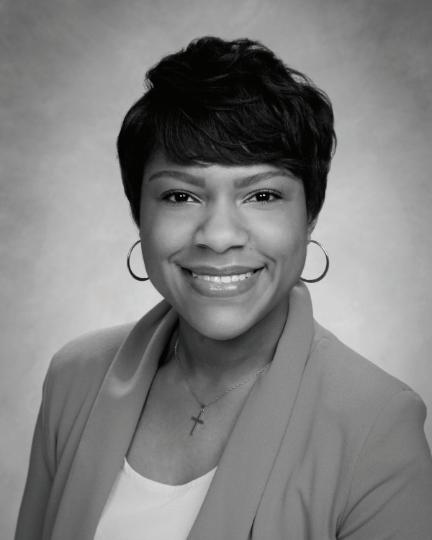


Continued from B1
for all, it is not for Black people. Something came over me. I raised my fist. I felt like I was not at peace with myself if I had not said something or did something in that moment.”
The result? Berry was reprimanded and punished with a 12-month probation. Rule 50 in the Olympic charter states, “No kind of demonstration or political, religious or racial propaganda is permitted in any Olympic sites, venues or other areas.”
“I had a lot of people threatening me, a lot of people of course telling me to go back to Africa and leave the country, and telling me I didn’t deserve to wear the uniform,” Berry said. “But the death threats were the scariest things. I never knew people could wish bad on you because you just didn’t agree with a song or a flag.”
After receiving death threats, Berry got off social media, deleting her apps.
“I just didn’t have time for the negativity,” she said. Berry was required to meet with the IOC and acknowledge that she had broken its Rule 50, even though she doesn’t think the Olympic rule prohibiting racial, religious or political “propaganda” describes what she did with her fist.
“I did not entice anyone, I did not do anything demeaning to anybody, and so I don’t feel like my protest was harmful,” Berry said. “I don’t think it was as big of a deal as they tried to make it seem. I did something in my time, on my stage … I was harming no one.”
Being on probation meant that she could not speak out about issues she believes in for a full year. It also had major financial ramifications — enough that without help from her mentor, family and friends, she would have left the sport.
“I lost about 80% of my income,” said Berry, adding that she lost sponsorships and “was kind of blackballed.”
While athletes who speak out have begun to garner more widespread support in recent months, Berry’s experience in 2019 was quite different.
“People love for athletes to entertain them, they love to capitalize off their grievances and off their past life and off their struggles,” she said. “But

“I did not entice anyone, I did not do anything demeaning to anybody, and so I don’t feel like my protest was harmful.”
– Gwen Berry
as soon as that athlete turns around and does something for a good cause and it’s kind of controversial, no one wants to hear it.”
One source of support for Berry through this saga has been John Carlos, one of the American track and field athletes who famously raised his fist at the 1968 Olympic Games. Growing up, the image of Carlos and Tommie Smith on the podium in Mexico City resonated with her.
Since Berry raised her own fist last year, she said, Carlos reached out to her. He has become a key mentor.
“I was so ecstatic and so happy that I’ve gotten to know him on a personal level,” Berry said, “For him to come to my defense and for him to have my back was so incredible.
Because they pretty much started this movement — it’s because of them that we’re here now and athletes are doing the same things, because we know that times still have not changed.”
Along with pushing for societal change and increased investment in Black communities, Berry is busy these days training for the Tokyo Olympics that are now set for the summer of 2021, as well as 2022 international competitions. When she does eventually retire from the sport, she hopes to stay involved one way or another.
“I want to work closely with kids,” Berry said, “and I want to work in those neighborhoods that America has abandoned.”
Reprinted with permission from news.stlpublicradio.org.

Vote now for Album of Year, Song of Year, Large Group of The Year and Artist of the Year
American staff
In light of all the things going on in the world, Senior Pastor Willie E. Kilpatrick and The Prince of Peace Church have great news to share with our community.
The Prince of Peace Church Choir received nominations to put St. Louis on the map in four categories with the Kingdom Image Awards. These nominations include Album of Year, Song of Year, Large Group of The Year and Artist of the Year.
There is a strong platform of gifts within the gospel arena
that comes right from the St. Louis area. This CD displays a wide range of this tremendous talent with the Minister of Music/Songwriter Joseph Price, Executive Producer Kevin Kelley, Songwriters Chris and Kyle, Michelle Lattier and featured soloists Sunday’s Best Finalist Pastor Michael Lampkin, Stellar-nominated Jewel Taylor of Jewel & Converted – and this is only to name a few.
of

for
The Message
There is one sure way to get the devil’s attention I’m told and have experienced. Just begin to turn one’s life and attention to Christ.
Some of you have a pastor or two refer to a person’s lifestyle as an open invitation for him to gain access to his or her world. Supposedly, as long as you
engage in the things and happenings of this world, Lucifer has no need to exert any time or energy dealing with the struggle for your eternal soul. Life’s trials and individualized temptations alone are enough to sentence any one of us to an afterlife void of the Lord; which if you didn’t know is the
quintessential definition of hell itself.
A life without spiritual purpose, a life without spiritual guidance, a life without faith is a life doomed to wandering aimlessly with all roads aimed directly to one’s personal hell. The devil does not need to work to gain access to this life. It is a conformed life. He can merely wait at the toll booth gate and collect unsuspecting souls who meander by.

Satan comes and takes away the Word sown in them.” Mark 4:15. If you know this, and we should, then what are we doing to arm ourselves against the inevitable onslaught of the evil one? “And now wonder, for Satan himself masquerades as an angel of light.”
Columnist James Washington
Remember: “Some people are like seed along the path where the Word has been sown. As soon as they hear it,
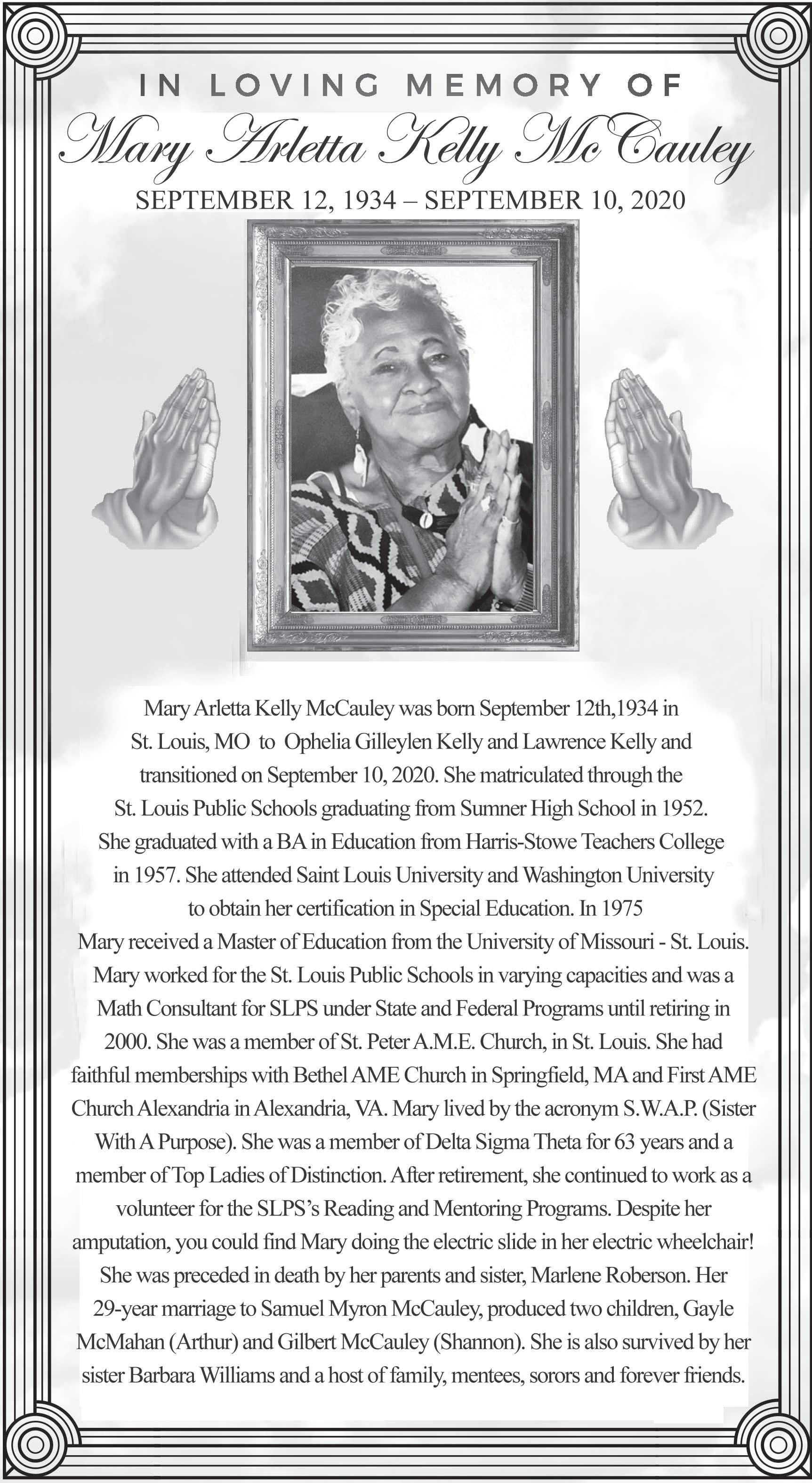
Corinthians 11:14. My point is to let you know that as a professed believer, you have a neon sign that shines brightly in all kingdoms of this world and the next. It identifies you and alerts everyone in your ecosystem about your mission to honor God. And for the record, Satan cannot stand the
thought that your love for God supersedes his ability to wreck your world. I’m told that at one time he also loved the Lord dearly. We now know that he came to love himself more.
Now if he has his way, he wants us to love ourselves and our things, our desires and our addictions more than we love God. In doing so, his hope is that we shine the light on ourselves instead of God. He sets this diabolical trap. Just know, if and when that happens, hell’s toll booth awaits.
“For as I have often told you before and now ay again even with tears, many live as enemies of the cross of Christ. Their destiny is destruction, their God is their stomach and
Prince of Peace is a historical church that has served as a beacon of light in the St. Louis metropolitan area for over 95 years. Willie E. Kilpatrick is senior pastor.
their glory is their shame. But our citizenship is in heaven.” Philippians 3:18-20. I sincerely hope that you recognize the next trial or temptation headed your way is but a hiccup, a hitch your getalong on your way to securing your place in eternity with the Almighty. Any other consideration, distraction or misstep should be viewed by us all as an opportunity to get back on God’s highway. It’s free. It doesn’t cost us anything. Change direction, refocus, recognize. That light within us was put there for a divine purpose. We are who the Lord made and not what the world would have us believe.

For a guy that has never won a NASCAR race, Bubba Wallace has become a racing star.
He’s improving and, with a better car and team around him, NASCAR’s lone black driver might be on the verge of busting loose. His future is bright enough to have caught the eye of North Carolina native Michael Jordan. The majority owner of the NBA’s Carolina Bobcats has teamed with NASCAR veteran Denny Hamlin to form a racing team featuring Wallace as its top driver.
“This is a unique, oncein-a-lifetime opportunity that I believe is a great fit for me at this point in my career,” Wallace said.
“I’m grateful and humbled that Michael and Denny believe in me and I’m super pumped to begin this adventure with them.”
The adventure would begin in February 2021 at the season’s opening race, the Daytona 500 –pandemic pending.
and there have been few Black owners. The timing seemed perfect as NASCAR is evolving and embracing social change more and more.”
Hamlin said many details are yet to be ironed out with the new team, but “deciding on a driver was easy — it had to be Bubba Wallace.”
“He deserves the opportunity to compete for race wins and our team will make sure he has the resources to do just that. Off the track, Bubba has been a loud voice for change in our sport and our country. MJ and I support him fully in those efforts and stand beside him.”
“Both Michael and Denny are great competitors and are focused on building the best team they possibly can to go out and compete for race wins,” Wallace said.
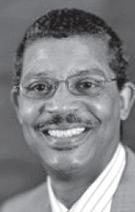
The connection between Jordan and Hamlin is professional and personal. Hamlin endorses Jordan’s signature “Jordan Brand” clothing and accessories and they have been friends for years.
Jordan said in a press release that his parents took him and his siblings to NASCAR races and he has remained a fan of the motor sport.
“The opportunity to own my own racing team in partnership with my friend, Denny Hamlin, and to have Bubba Wallace driving for us, is very exciting for me,” he said. Jordan has said more about racism and equality since the killing of unarmed George Floyd on Memorial Day than he had in his entire career.
Adding Wallace to his racing team was an opportunity to again voice his newfound willingness to speak out.
“In addition to the recent commitment and donations I have made to combat systemic racism, I see this as a chance to educate a new audience and open more opportunities for Black people in racing,” Jordan, who becomes the first Black NASCAR team owner in more than 50 years, said.
“Historically, NASCAR has struggled with diversity
In 105 NASCAR races, which were all with Richard Petty Motorsports, Wallace’s best finish was second place in the 2018 Daytona 500. He secured five top-10 finishes this year, making this his best year statistically.
The odd part of the JordanHamlin owned team is that Hamlin will remain the top driver for Joe Gibbs Racing, has won six times in 2020 and is a favorite to win the NASCAR driver’s championship.
He will go into every race next year hoping that Wallace finishes second to him and Gibbs racing. Hmmm.
Another concern I have for Wallace is that Jordan has been one of the most mediocre NBA team owners since he acquired majority interest of the franchise.
Once close friends, Jordan and former NBA great and current NBA analyst Charles Barkley are estranged. Jordan remains bitter because of Barkley’s critical assessment of Jordan’s choices for managerial positions when he was Carolina’s general manager.
In May, Barkley recounted what he said – and it is pertinent to Jordan’s foray into NASCAR.
“I’m pretty sure I said, ‘As much as I love Michael, until he stops hiring them kiss-asses, and his best friends, he’s never going to be successful as a general manager,’ Barkley

10 finishes
explained.
“Very few of your friends are going to be honest with you. And that’s very hard for any celebrity, but especially somebody of his stature.”
So, who is Jordan’s partner? Hamlin, a close friend.
We’ll learn beginning next year how the partnership works out for upcoming driver Wallace and for NASCAR.
Sanders heads South
The last thing I wanted was to get in a fight in Jackson, Mississippi on a Saturday night – “Uneasy Rider,” by Charlie Daniels (1973)
This lyric came to my mind when I read that NFL Hall of Famer Deion Sanders is the new head coach of the Jackson State University Tigers.
Sanders wanted to be a head coach, it’s not a secret. His dream was to be named head where he starred in college –Florida State University. With no college or NFL coaching experiences, that was not going to happen.
He should be commended for finding a head coaching position, especially with an HBCU program.
But I just can’t see “Primetime” Sanders enjoying his time in Jackson. The Confederate Flag is everywhere, and it is not going anywhere. Yes, the legislature recently voted to change the state flag because the “Stars and Bars” was on it. But more than 70 percent of the state’s residents did not want it to happen.
Jackson isn’t Dallas, where
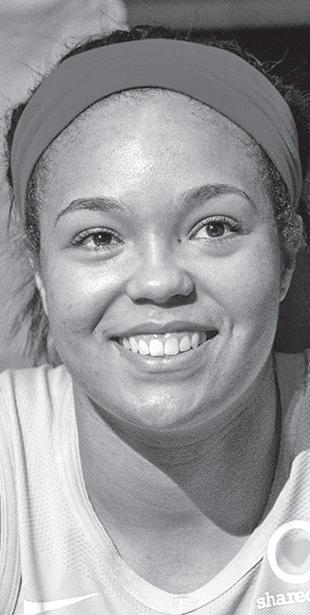
Sanders said.
“We’re going to look good while we win. ... And we’re going to win professionally.”
He asked the audience, “Do we believe?”
“We believe!” many said in response.
“Start calling me ‘Coach Prime’ from now on because I’m not going to answer to anything else,” Sander said on the podcast.
Sanders will have to answer to Thomas Hudson, Jackson State’s interim president and the board of trustees.
Hudson is in the position because former president William B. Bynum resigned in February after being nabbed in a prostitution sting by law authorities.
His predecessor as head coach, John Hendrick, was fired in August. Jackson’s State’s website lists several assistant coaching and athletic department vacancies. Like other HBCU schools, the football program is on hold in 2020.
Sanders is not inheriting a model program. He was a great player. He now has to be a great leader.
The Reid Roundup
With Earl Austin Jr. Napheesa Collier follows up Rookie of the Year season with an even better one In 105 NASCAR races, which were all with Richard Petty Motorsports, Bubba Wallace’s best finish was second place in the 2018 Daytona
St. Louisan Napheesa Collier broke into the professional basketball ranks in a big way last season by being named the Rookie of the Year in the WNBA. The former prep AllAmerican from Incarnate Word Academy followed up her brilliant rookie campaign with an even better second season. She has established herself as one of the league’s top young stars after leading
Sanders resides. It isn’t Los Angeles. Heck, it isn’t Kansas City or St. Louis.
But if Sanders is willing to give it a shot, I have to support him.
If Sanders believes he can convince a bevy of five-star football players to join him at Jackson State, he’s in for a rude awakening. He might get one or two. Of course, that might be enough to make significant progress.
On his “21st and Prime” Barstool podcast, Sanders said, “God called me to Jackson State.”
He was greeted with a police escort upon his arrival in Jackson on Monday, and the Tigers’ marching band led the way into his introductory press conference.
“We’re going to win,”
the Minnesota Lynx to the playoffs. In her second year, the 6’1” Collier averaged 16.0 points and 9.0 rebounds, which was fourth in the WNBA. She also averaged 3.3 assists, 1.8 steals and 1.3 blocks while shooting 52 percent from the field, 40 percent from 3-point range and 83 percent from the free throw line. The Lynx are currently playing the Seattle Storm in the WNBA semifinals.
Recruiting Notes
Class of 2022 football standout Luther Burden of Cardinal
Ritter has narrowed his list of schools to five finalists. The talented wide receiver’s final list includes Missouri, Ohio State, Alabama, Georgia and Oklahoma.
Standout Metro East lineman Alvin Gulley Jr. of Belleville West has given a commitment to Napes Yale of the Ivy League. The 6’2 290-pound Gulley is one of the top lineman prospects in the state of Illinois.

Christian Academy has narrowed his large list of recruiting suitors to three finalists. The 6’6 Nesbitt will choose from either Saint Louis University, Illinois and Memphis.
Senior basketball standout Jordan Nesbitt of St Louis
On the girls basketball front, senior guard Marshaun Bostic of Gateway STEM has received offers from Tennessee State and Belmont. Standout junior guard Saniah Tyler of Incarnate Word Academy has received offers from Kentucky and Georgia.
Football in St. Charles
High school football has been going on in the St. Charles area for the past three weeks. Here are some of the top performers from last weekend’s action. Senior Chris Futrell of Fort Zumwalt North rushed for 160 yards on 15 carries and three touchdowns in the Panthers 42-7 victory over Washington. Junior Arlen Harris, Jr of Lutheran-St. Charles rushed for 156 yards on 17 carries and two touchdowns in a 30-0 victory over Hermann. Wide receiver Elijah Edmonds of Fort
The first top-flite football player that Deion Sanders must convince to play at Jackson State is his son, Shedeur Sanders, a highly recruited dual-threat quarterback at Trinity Christian School in the Dallas suburb of Cedar Hill. He had committed to Florida Atlantic in July… Former Detroit Lions AfricanAmerican head coach Jim Caldwell took the troubled franchise to the playoffs in 2016 and narrowly missed the postseason with nine wins in 2017. His replacement, Matt Patricia, has a record of 9-25…As much as I want Black quarterbacks to succeed in the NFL, Anthony Lynn, the Black head coach of the San Diego Charges, needs to play rookie Justin Herbert over black QB Tyrod Taylor after Herbert played well in an emergency start last Sunday against the Kansas City Chiefs.
Alvin A. Reid was honored as the 2017 NNPA “Best Sports Columnist – Weeklies. His Twitter handle is @aareid1.
South had 13 receptions for 141 yards and one touchdown in the Bulldogs 28-25 victory over Wentzville Liberty. Junior Jackson Smith of Wentzville Holt had five receptions for 125 yards and two touchdowns in a 48-17 victory over Timberland. Top Games this Week

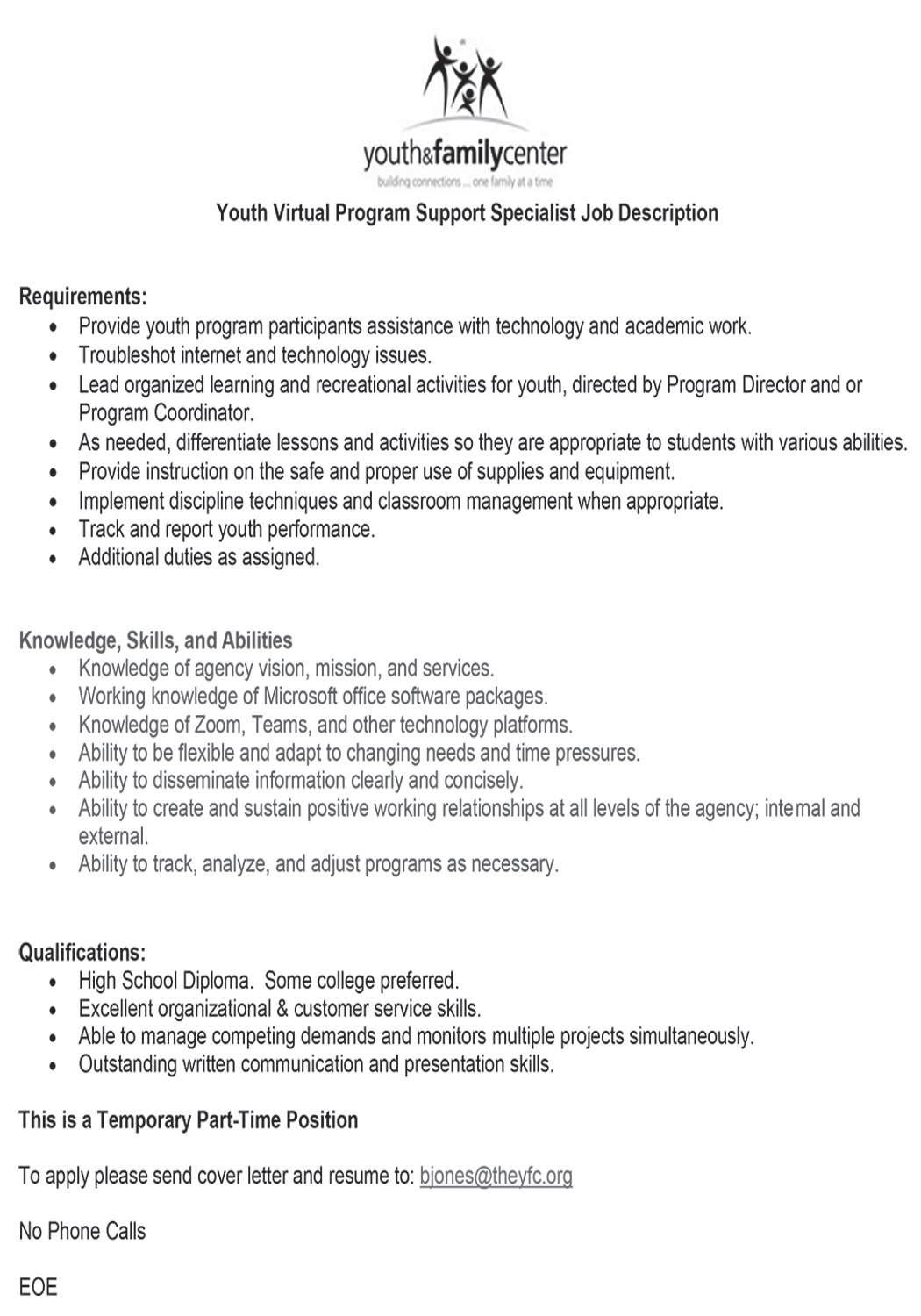
Normandy Police Department hiring police officers-must be Class A POST certified or within 60 days of graduation of the police academy.
“Applications can be picked up in person at Normandy City Hall 7700 Natural Bridge or downloaded from the Police>Careers section of www.cityofnormandy.gov.
“Deadline is September 30th, 2020. Starting wage is $46,000.00 Equal Opportunity Employer. Minorities strongly encouraged to apply.”
CIVIC ENGAGEMENT MANAGER & PROJECT MANAGER
Great Rivers Greenway seeks a Civic Engagement Manager and a Project Manager who like a team environment and making the St. Louis Region a better place for all. Full descriptions of the jobs can be found online at www.greatriversgreenway.org/ jobs-bids/
FULL-TIME MECHANIC
The City of Clayton is hiring for a full-time Mechanic. Apply by 10/16/20: https://claytonmo. applicantpro.com/jobs/ EOE
The City of Clayton is now hiring for the fulltime position of Police Officer or Police Officer in Academy. Apply here: https://claytonmo. applicantpro.com/jobs/ EOE
Southern District of Illinois Experience required See: www.uscourts.gov/careers
SECURITY OFFICERS NEEDED 1 year experience, starting salary $11/hour 314-367-6343
The Supreme Court of Missouri’s Commission on Racial and Ethnic Fairness (“CREF”) is seeking an independent contractor to serve as an Executive Director. CREF is responsible for promoting racial and ethnic fairness in the Missouri judicial and legal systems. The Executive Director will coordinate, plan, implement, and lead the successful completion of activities in accordance with the charge of CREF. The Executive Director also will exercise considerable judgment and discretion in the development of policies, programs, and materials. Eligible persons will have considerable knowledge regarding judicial and legal practices, community involvement, and experience managing projects to successful completion. The work of the Executive Director will be guided by the charge of CREF in conjunction with its tri-chairs.
The Executive Director will dedicate necessary time to serve the needs of CREF. Successful performance will be evaluated through personal consultations, observation, and results obtained. Interested parties shall submit a proposal including a statement of work and documentation relating to applicable education, experience and skills to email: crefdirector@courts.mo.gov
Proposals received by August 31, 2020 will receive preference but proposals may be considered until contract is awarded. Additional information on this opportunity may be found at: https://www.courts.mo.gov/ page.jsp?id=120233
The Supreme Court of Missouri is an Equal Opportunity Employer, which extends to the selection and treatment of independent contractors and any other persons or organizations doing business with the Court.

McKendree University seeks candidates for the position of Provost. The Provost will report to and work closely with the President to provide academic direction for the University. As the chief academic officer of the institution, the Provost has administrative responsibilities for all academic affairs. The successful candidate will have served as a tenured faculty member and as an academic administrator at a regionally accredited four-year institution of higher education. The candidate will have demonstrated leadership experience creating a team environment and fostering cooperation and respect among diverse constituents. An earned doctoral degree is required. McKendree University is a private, comprehensive, regional university in Lebanon, Illinois, with a strong tradition in the liberal arts and a focus on excellent teaching. With a total enrollment of over 2,500 students, McKendree offers undergraduate and graduate programs on campus, online, and at off-site locations in Southern Illinois and Kentucky. The beautiful campus is located in the historic city of Lebanon, Illinois, 25 minutes from downtown St. Louis. Annual compensation will be competitive and commensurate with experience. The University provides a comprehensive benefits package.
Application Process:
The Search Committee will begin reviewing applications immediately and continue until the position is filled. Applicants must submit: a curriculum vitae, cover letter describing relevant experience and interest in the position, and contact information for three professional references to Shirley Baugh, Director of Human Resources at hr@mckendree.edu. EEO/AA/ADA Employer
Full job advertisement is listed at https://www.mckendree.edu/about/ resources/index.php
Interventional Cardiologists (F/T) needed to work in medically underserved areas for St. Louis Heart and Vascular, P.C. in Bridgeton & St. Louis, MO. Freq. eve & weekend call. Office & hospital duties. Must have M.D. deg or foreign deg equiv.; BC in Internal Medicine; Cardiology & Interventional Cardiology; & full & unrestricted Missouri medical license. If interested, reply by mail with resume & letter of interest to Lisa Shin, HR, 3550 Mckelvey Rd, Bridgeton, MO 63044
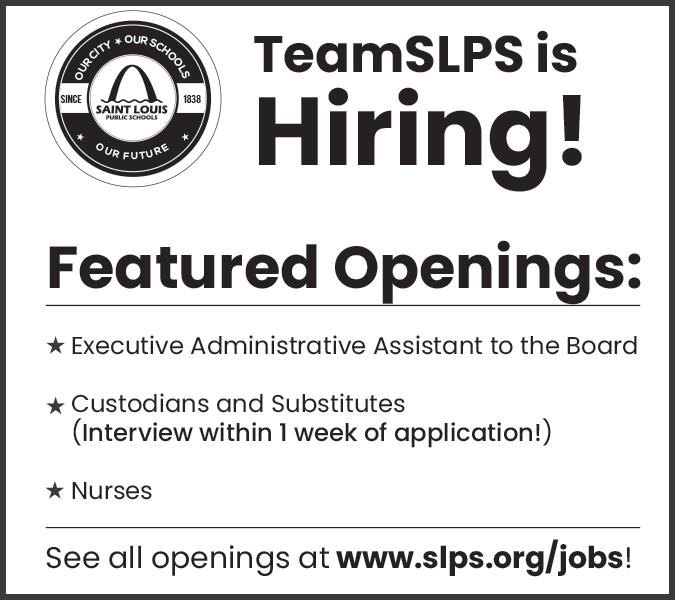

Rainbow Village Properties, Inc. is seeking an Executive Director who can strengthen and strategically grow the organization to meet the increasing need for accessible and affordable housing for individuals with intellectual and development disabilities.
Responsibilities include: Providing effective, inspiring leadership that energizes the organization; Expand, develop, and support a strong board of directors; serve as ex-officio of each committee, seek and build board involvement with strategic direction. Expand revenue generating and fundraising activities to support existing program operations and future expansion; Actively participate in donor cultivation, solicitation and stewardship in a way that delivers results; Maintain and grow organizational reserves and investments to steward the organization into the future; Develop and execute the strategic business plan for new home expansion.
Qualifications: A bachelor’s in business, social services or non-profit management required with an MBA, other master’s or advanced degree preferred; A minimum of 5 years of senior management experience; Past success working with a board of directors with the ability to cultivate existing board member relationships.
Rainbow Village is an Equal Opportunity Employer. If you believe you are the next leader of this great organization, please send your cover letter and resume that highlights your applicable qualifications and experiences to careers@rbvstl.org.
St. Louis Development Corporation has an opening for a Property Maintenance Worker. Qualified candidates must have a H.S. Diploma or G.E.D, two + years exp. in general grounds maintenance, and the ability to operate maintenance vehicles, equipment, and power tools. Must have or be able to obtain a Class E Drivers License and knowledge of City of St. Louis streets. Position requires the ability to lift 50 lbs frequently and 100 lbs occasionally throughout the day. Maintains LRA-owned property: by cutting grass, trimming trees, clearing trash, boarding up windows and changing locks, and other duties as necessary. Assists in the maintenance and protection of equipment/tools.
SLDC offers a full range of benefits including deferred comp, 401(a), and medical insurance. SLDC is an equal opportunity employer. Successful candidate must be a St. Louis city resident or establish residency within 180 days of completing a probationary period. Employees in this position are subject to drug testing.
Apply online at www.stlouis-mo.gov/sldc click on Careers or apply in person at 1520 Market Street, LRA Reception 2nd Floor, St. Louis. Deadline for submission: October 1, 2020


CONTINUING SERVICES AGREEMENT
The Saint Louis Zoo seeks qualifications from consulting firms to provide continuing service agreements for engineering and architectural services. Bid documents are available as of 9/23/2020 on the Saint Louis Zoo website: stlzoo.org/vendor
SINGLE FEASIBLE SOURCE PROCUREMENT FOR ADMISSIONPROS
SOFTWARE MANAGEMENT SYSTEMS FOR HIGHER EDUCATION FROM ADMISSIONPROS, LLC
Harris-Stowe State University
(HSSU) anticipates awarding a single feasible source contract with an estimated amount of $98,000.00 over a four (4) year period, to AdmissionPros, LLC. on or about September 29, 2020. AdmissionPros, LLC is the sole developer and offeror of the system.
The contact for the University is Barbara A. Morrow, Director of Business Services, telephone #: (314) 340-5763, fax #: (314) 340-3322, email address: morrowb@hssu.edu.
Sealed Proposals for B21-1192
HPLC-AFS will be received at Lincoln University Purchasing Dept 1002 Chestnut St, RM 101 Shipping & Receiving Bldg, JCMO 65101 until 2PM CT on 07OCT2020. Download Proposal Request at http://www.lincolnu.edu/web/ purchasing/bids Civil
SINGLE FEASIBLE SOURCE PROCUREMENT FOR SUBSCRIPTION-BASED RESEARCH SERVICES FROM HANOVER RESEARCH
Harris-Stowe State University (HSSU) anticipates awarding a single feasible source contract with an estimated amount of $90,000.00 to Hanover Research on or about September 24, 2020. Hanover Research is the sole source provider for the deliverables in its subscription-based research service (copyrighted materials).
The contact for the University is Barbara A. Morrow, Director of Business Services, telephone #: (314) 340-5763, fax #: (314) 340-3322, email address: morrowb@hssu.edu.

Sealed bids for the Laclede Station Road Retaining Wall, St. Louis County Project No. AR- 1685, will be received electronically thru the County’s Vendor Self Service portal at https:// self-service.stlouisco.com/ MSS/Vendors, until 11:00 a.m. on October 21, 2020
Plans and specifications will be available on September 21, 2020 from the St. Louis County Web Site (www.stlouiscountymo.gov) or by contacting Cross Rhodes Print & Technologies, 2731 South Jefferson Avenue, St. Louis, MO 63118 (314) 678-0087.
St. Louis Community College will receive separate sealed bids for Contract No. F 21 601, Baseball/ Softball Fields Backstop Improvements, St. Louis Community College at Meramec, until 2:00 p.m. local time, Thursday, October 1, 2020 Bids can be dropped in a mail slot at the front door of Engineering and Design, 5464 Highland Park Drive. Bids will be opened and read by the Manager of Engineering and Design (Ken Kempf), 5464 Highland Park Drive (Plan Room). Specifications and bid forms may be obtained by emailing Angie James at ajames84@stlcc.edu.
Pre-bid Meeting: September 23, 2020 at 10:00 am at Meramec Community College Baseball Field 11333 Big Bend Road, St. Louis, MO 63122
An Equal Opportunity and Affirmative Action Employer
CITY OF O’FALLON, MISSOURI #20-061 EMERGENCY HOMELESS PREVENTION PROGRAM
Notice is hereby given that the City of O’Fallon will receive Statements of Qualifications clearly marked “Emergency Homeless Prevention Program” on or before 10:00 AM CDT, October 8, 2020 to City of O’Fallon Attn: Julie Moellering, Purchasing Agent 100 North Main Street, O’Fallon, MO 63366. There will be no public opening of the statements of qualifications. Documents are available at http://www.ofallon.mo.us/bidopportunities
The City reserves the right to reject any and all submittals, or to advertise for new submittals if deemed necessary.
METROPOLITAN ST. LOUIS SEWER DISTRICT
Notice is hereby given that the Metropolitan St. Louis Sewer District Requests for Quotes, Bids and Proposals are posted online for public download. Please navigate to www.msdprojectclear.org > Doing Business With Us > View Non-Capital Bids (commodities and services) or >Visit
Donald Maggi Inc. is accepting bids from Disadvantaged Business Enterprises for subcontracting opportunities on the City of Rolla. Jack Carney Puck & Plaza # RC000197 University of Missouri Science and Technology
Bid Date and Time: October 2, 2020 at 2:00 pm Plans/Specification is available via dropbox or may be obtained from www.adsplanroom,net.
Contact Donald Maggi Inc. at 573-364-7733 or email maggiconst@gmail.com
Donald Maggi Inc.
Advertisement for:
The City of St Louis Department of Health is seeking separate proposals for Call Diversion and Co-Responder Crisis Response System.
Requests for Proposals may be obtained beginning September 22, 2020, from the City of St. Louis Department of Health, ATTN: Harold Bailey, 1520 Market Street-Suite 4051, St. Louis MO 63103, baileyh@stlouis-mo.gov, (314) 657-1568. Proposals may also be downloaded from the City of St. Louis website at http://www.stlouis-mo.gov/.
The deadline for submitting proposals is October 6, 2020, by 4:00 P.M. at the address listed above. The Department of Health reserves the right to reject any or all responses with or without cause.
The Metropolitan Zoological Park and Museum District Board has authorized its management to secure proposals for banking services. The deadline for response is October 28, 2020 at 4:30 p.m. For more information or to secure a detailed proposal package, please contact: J. Patrick Dougherty, Executive Director Metropolitan Zoological Park and Museum District 314 862 4222 pdougherty@zmdstl.org



“I think about all the careers he had,” Johnny Furr Jr., who succeeded Wayman F. Smith III in corporate leadership at AnheuserBusch, said of Wayman. “He was a lawyer, he was an alderman, he was a judge, he was a corporate executive.” He was an activist and a philanthropist. He was a leader of Black universities. His impact on Black communities spanned from street outreach registering voters to transformative C-suite philanthropy as one of the first homegrown Black corporate executives in St. Louis – and every point in between.
And, he was a father – a single father of a girl when that was a rarity. “A friend of mine once told me, ‘Your father always wanted more for people than from people,’” said his only child, Kymberly Smith Jackson. “You know he went through so much stuff – segregation, being the first Black person to do so many things; think of the way he would have been treated. But he never let any of that get to him. He never complained. At the very end, when he started to complain about the pain, I said, ‘This is a big deal. He never complains.’” Wayman F. Smith III passed on September 15, 2020 at age 80.
– Chris King
